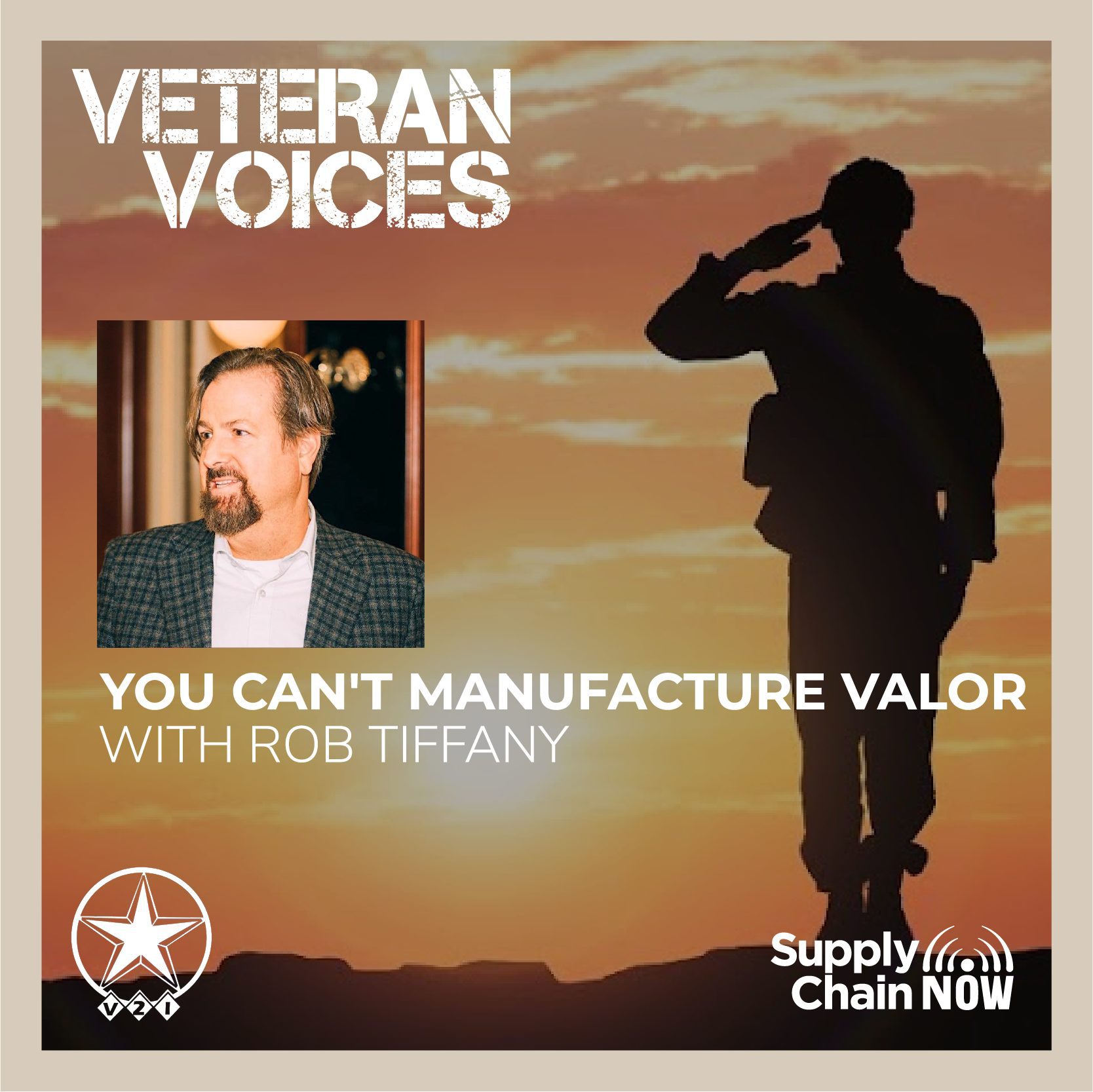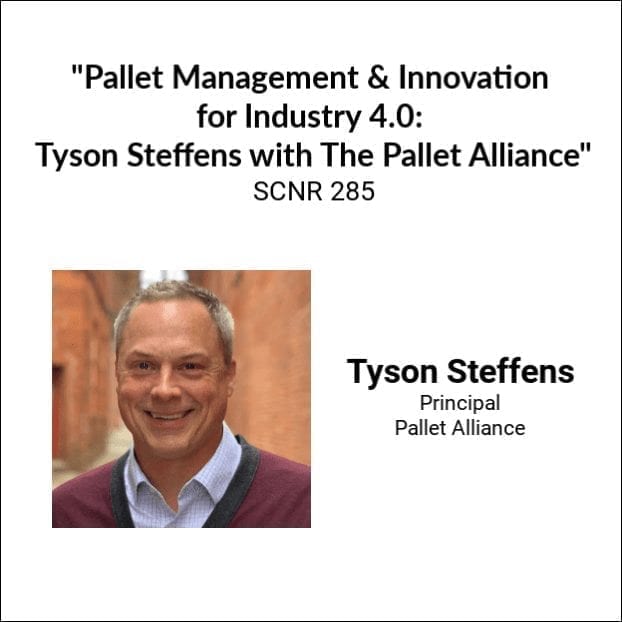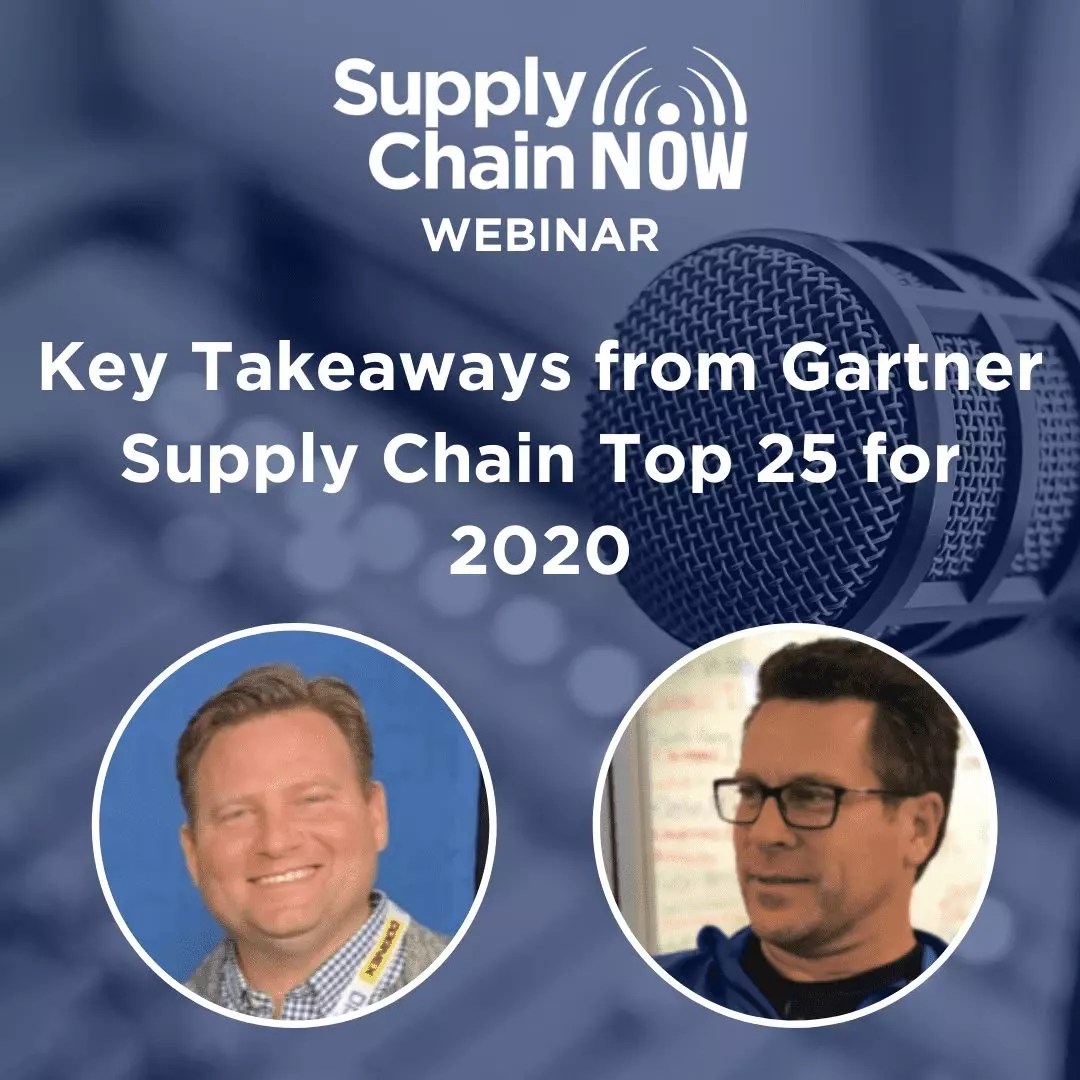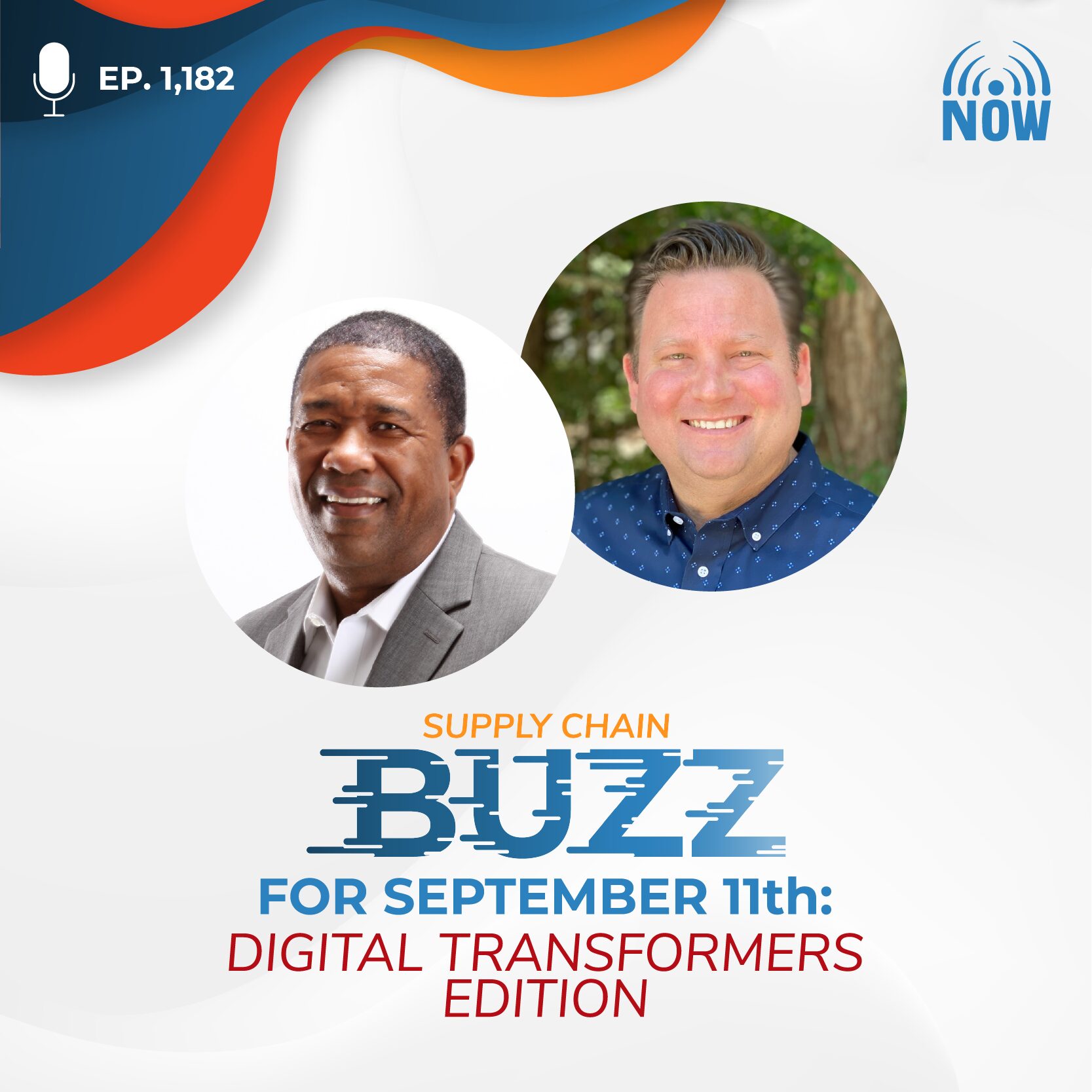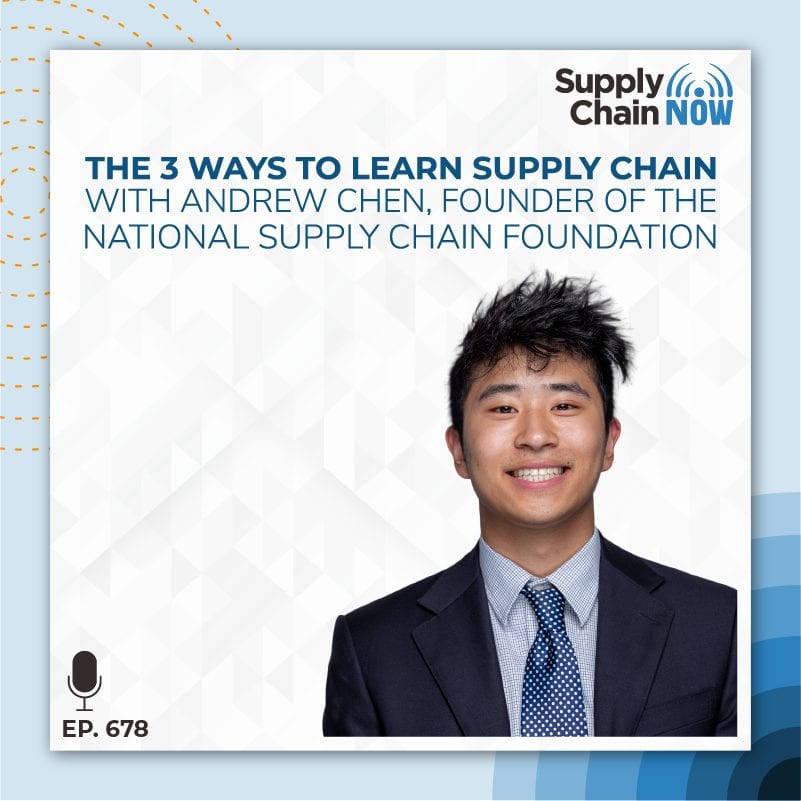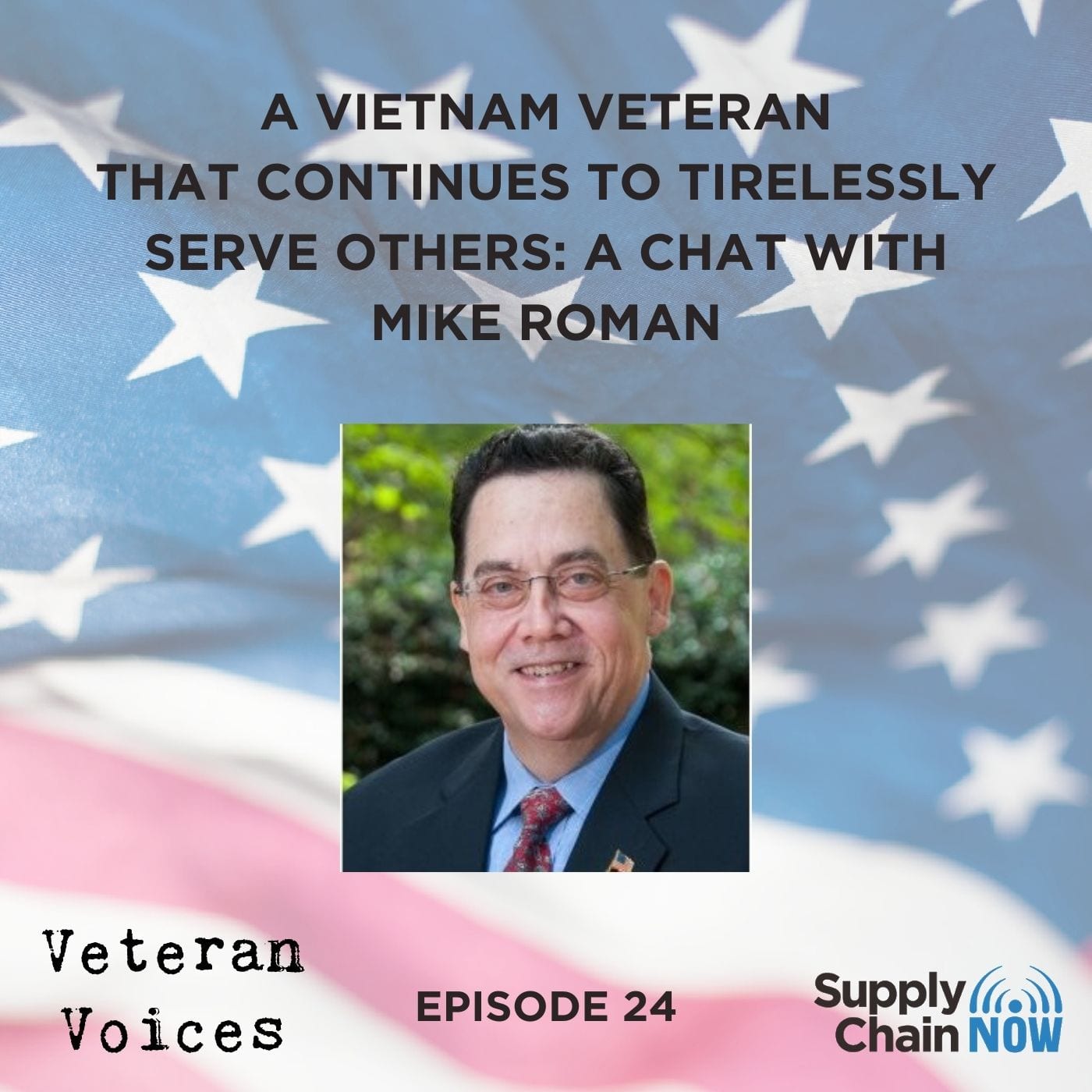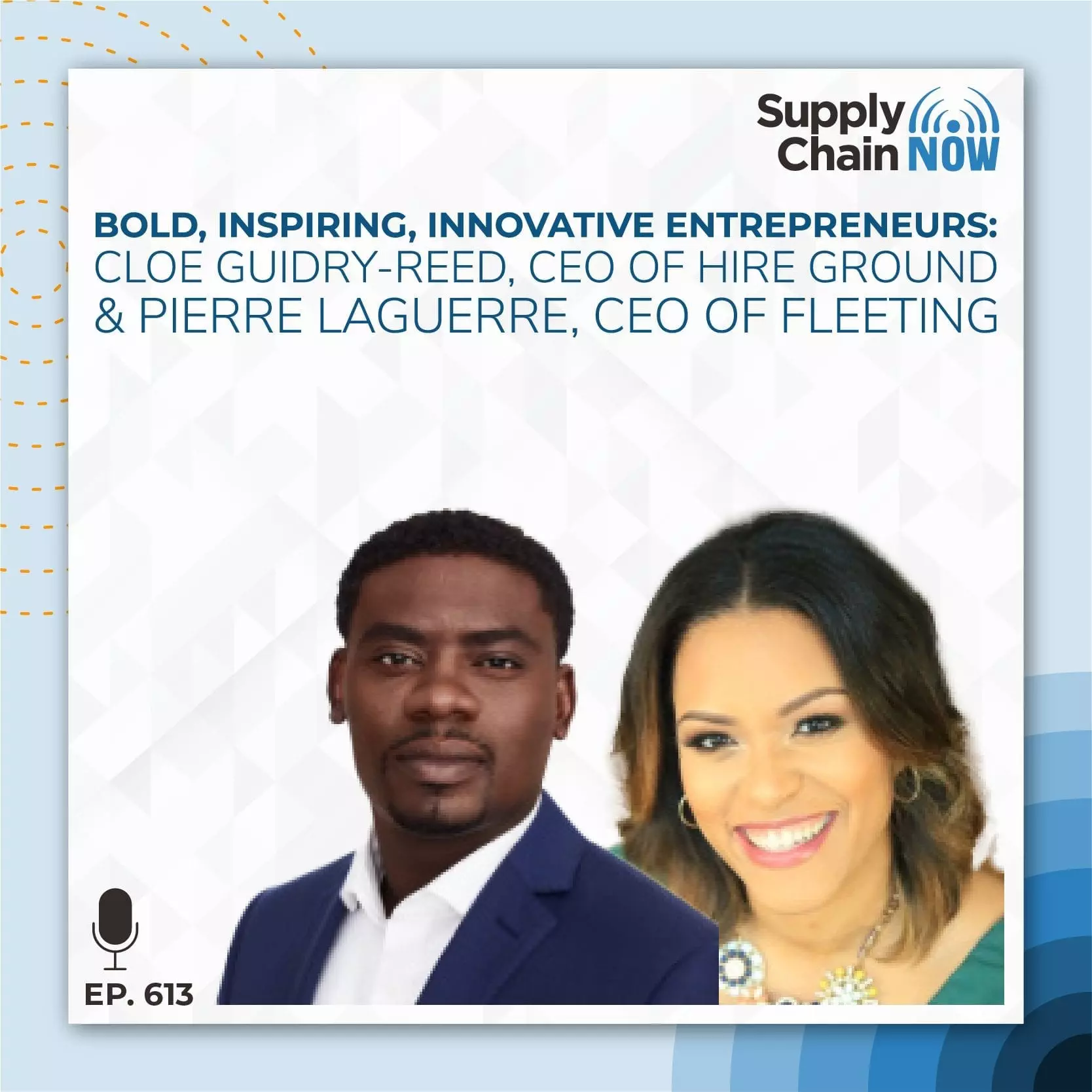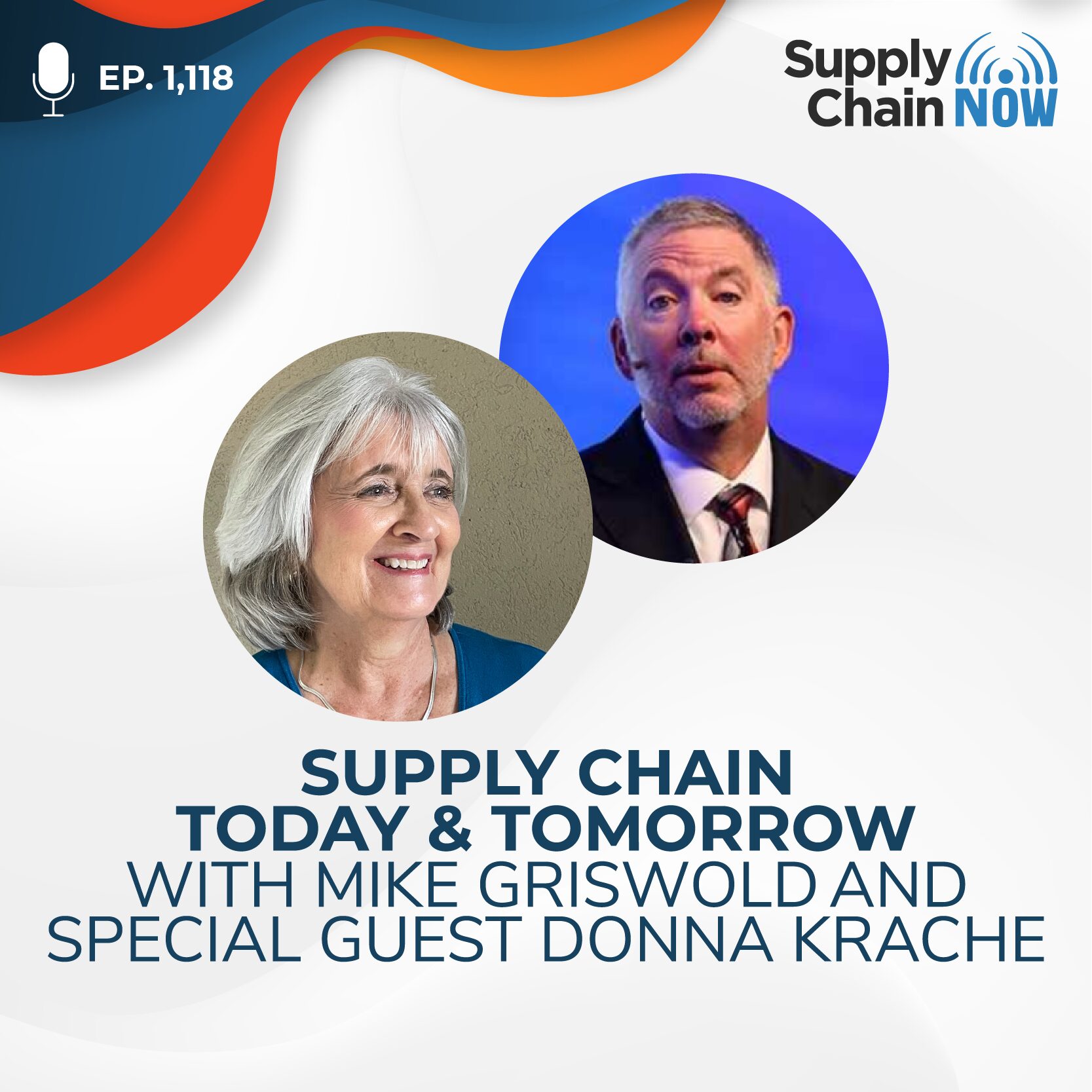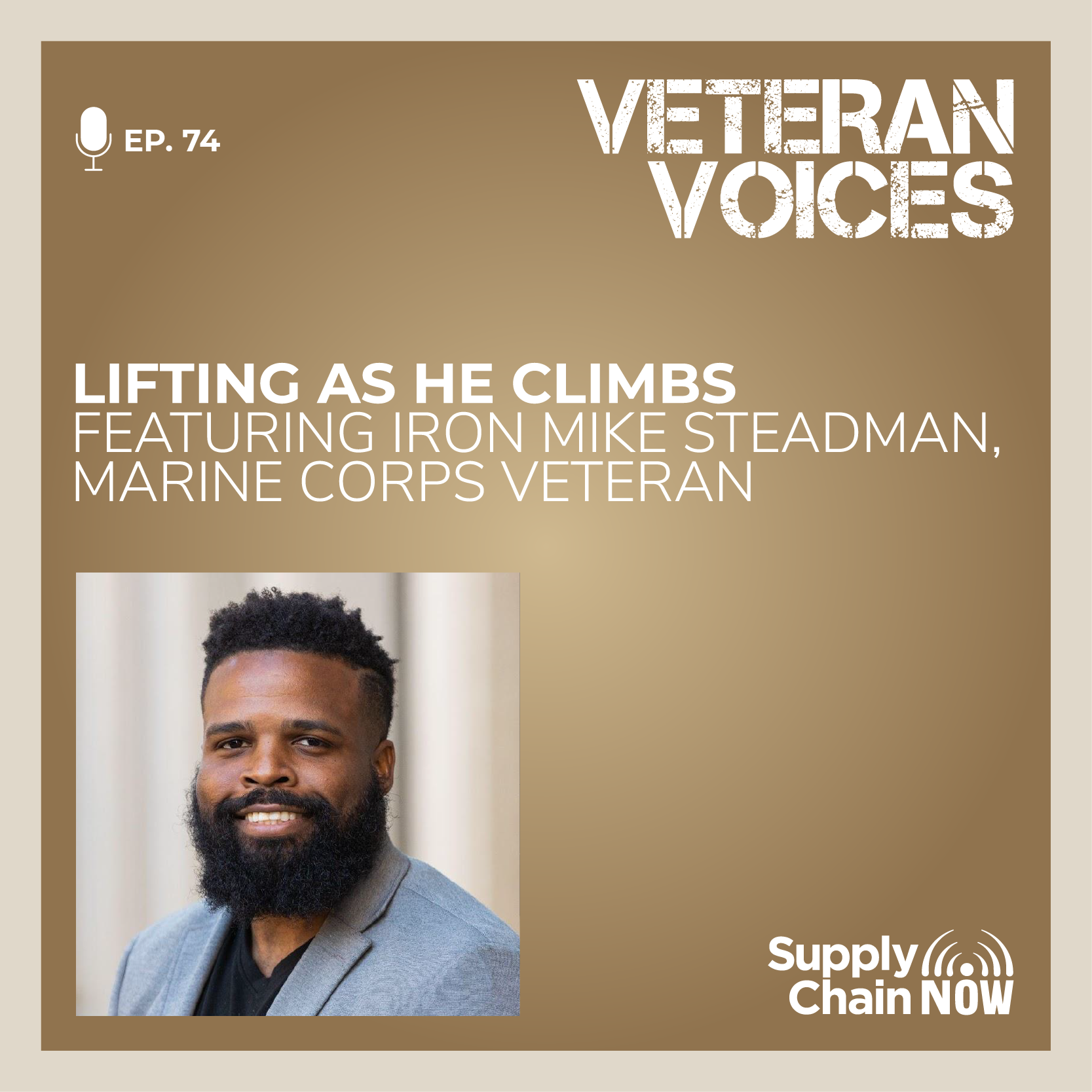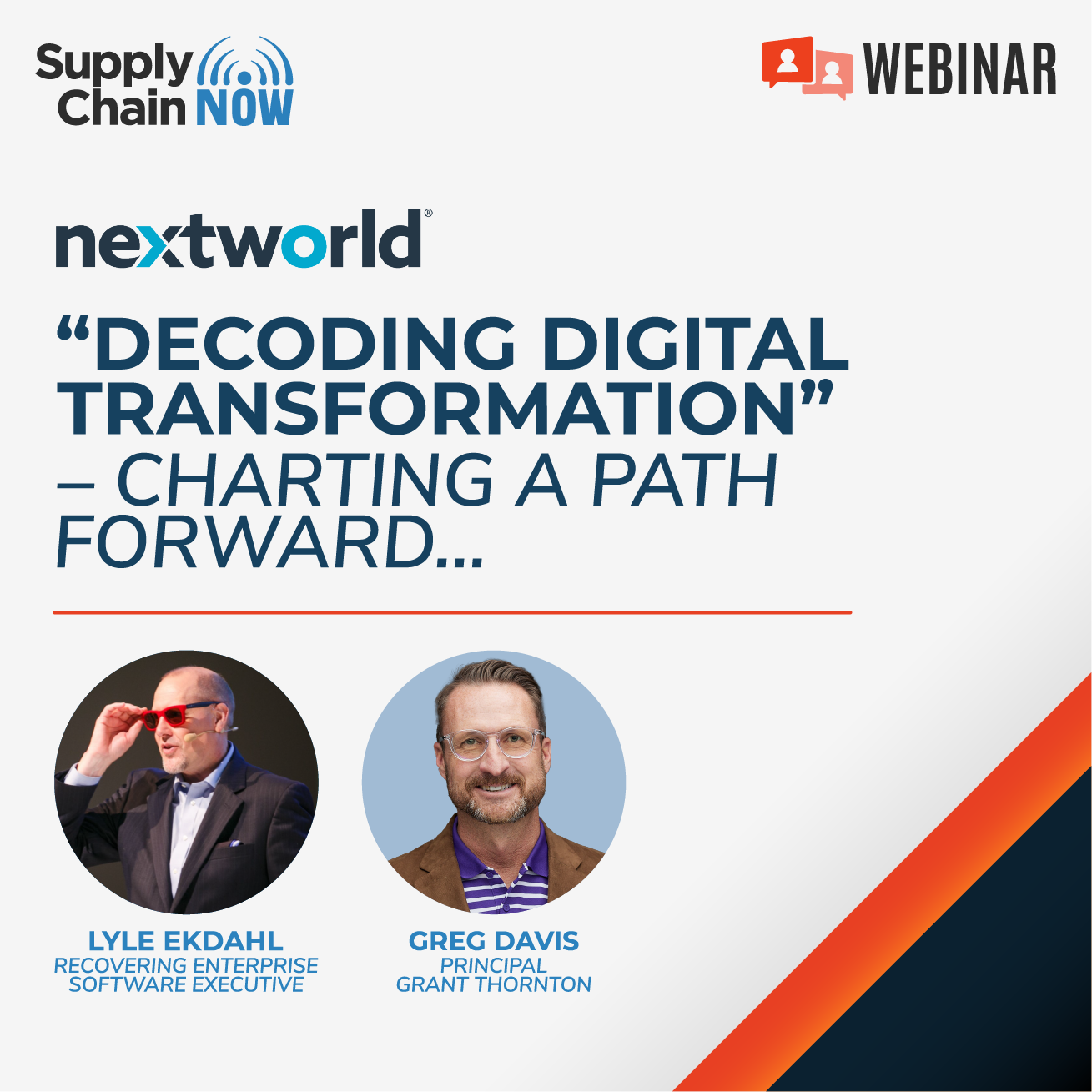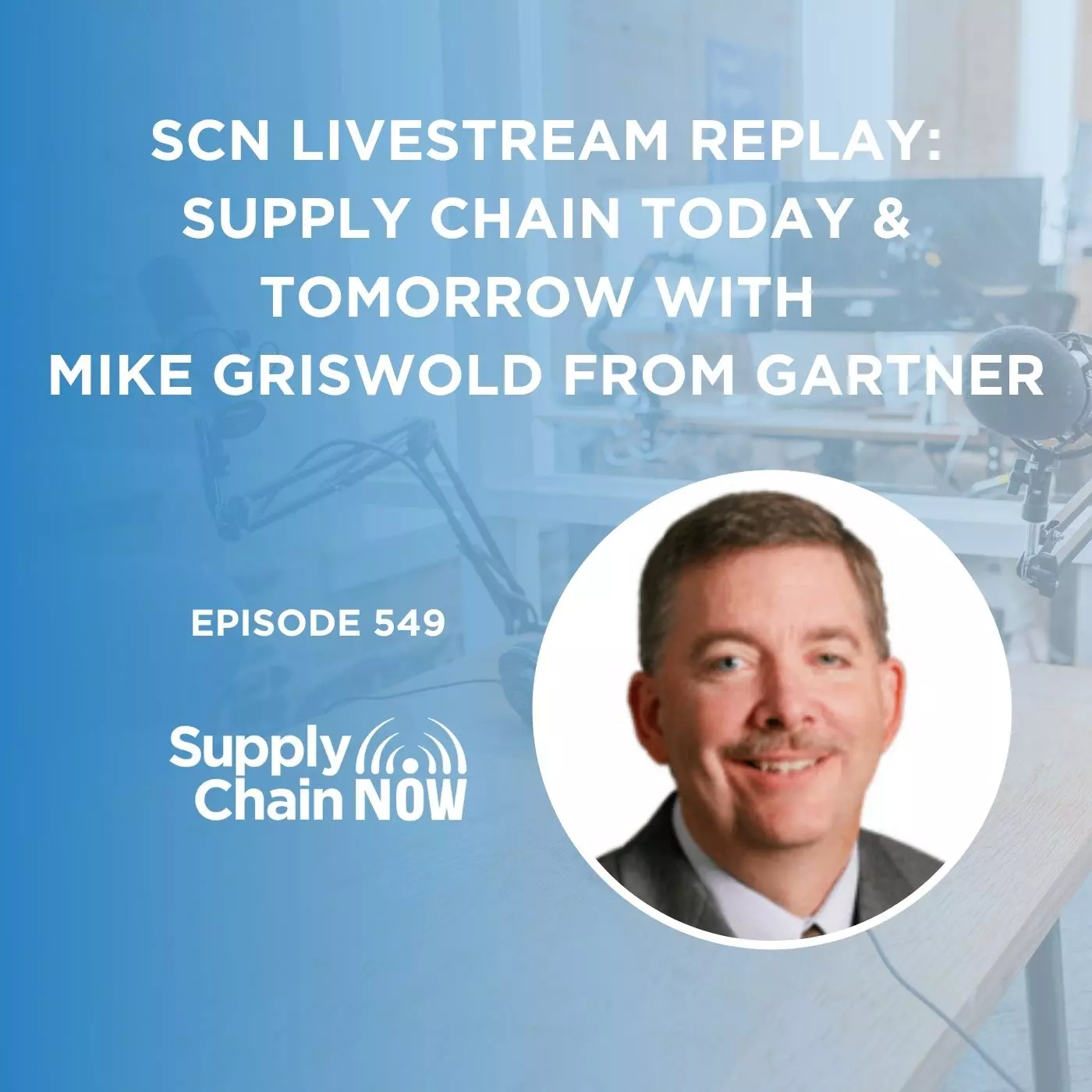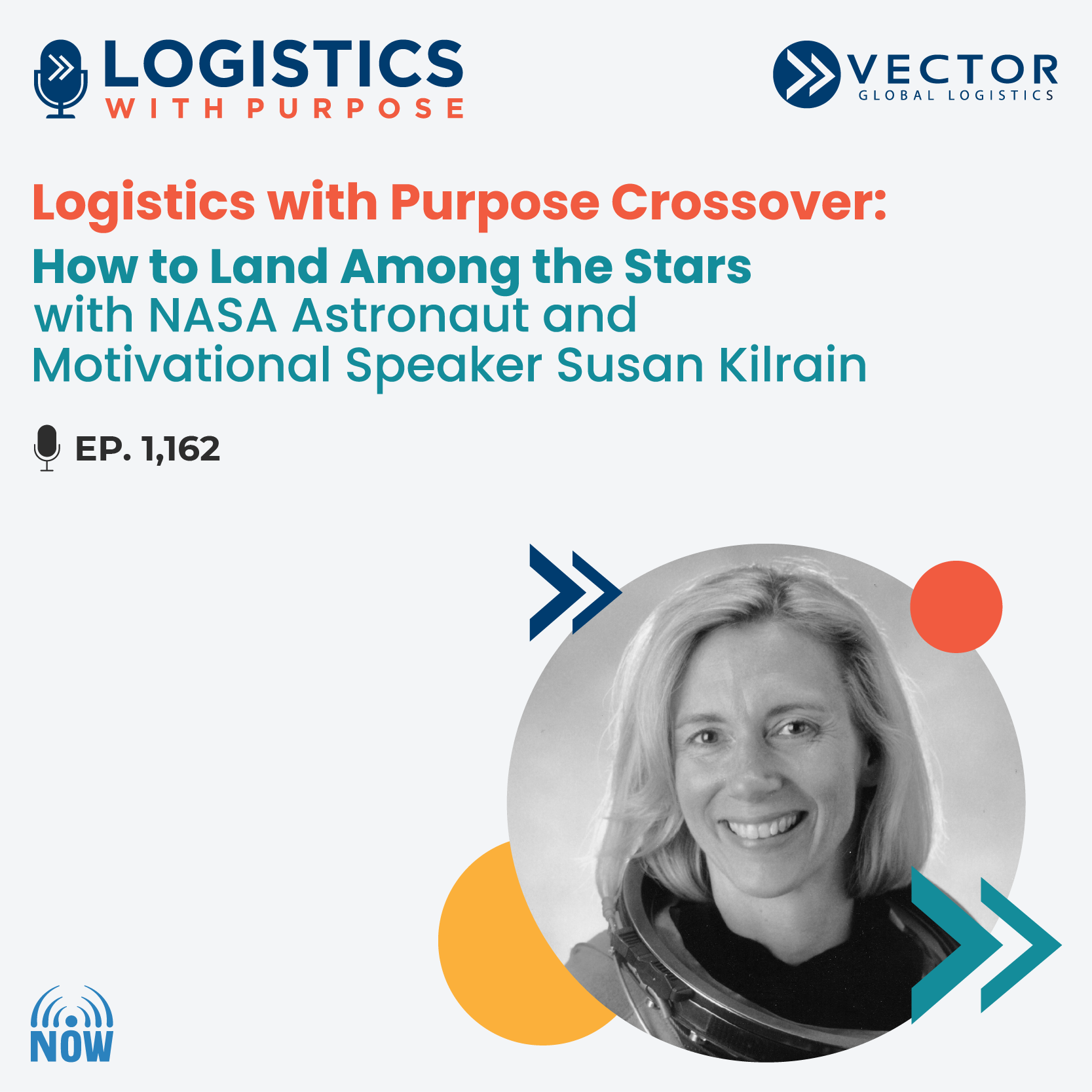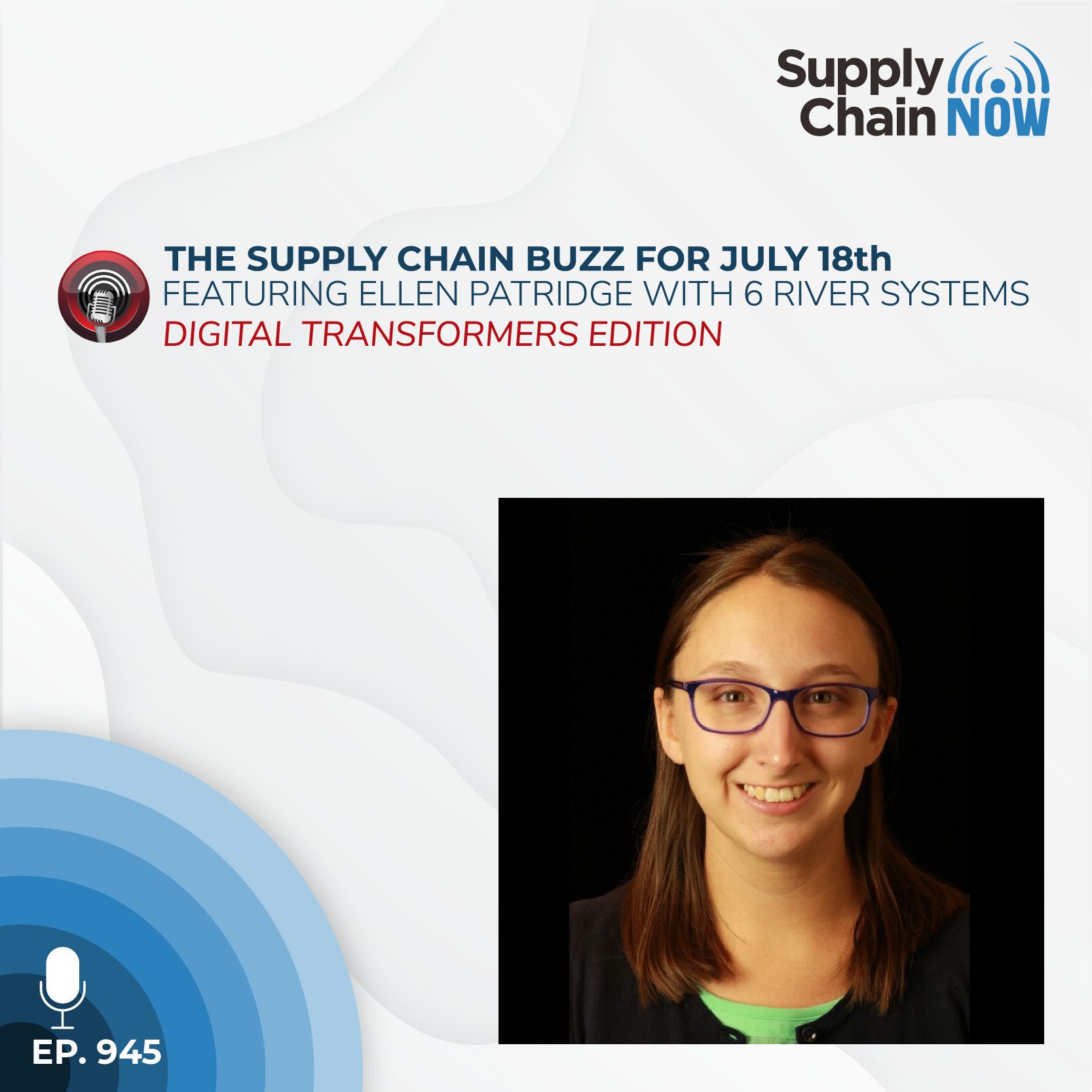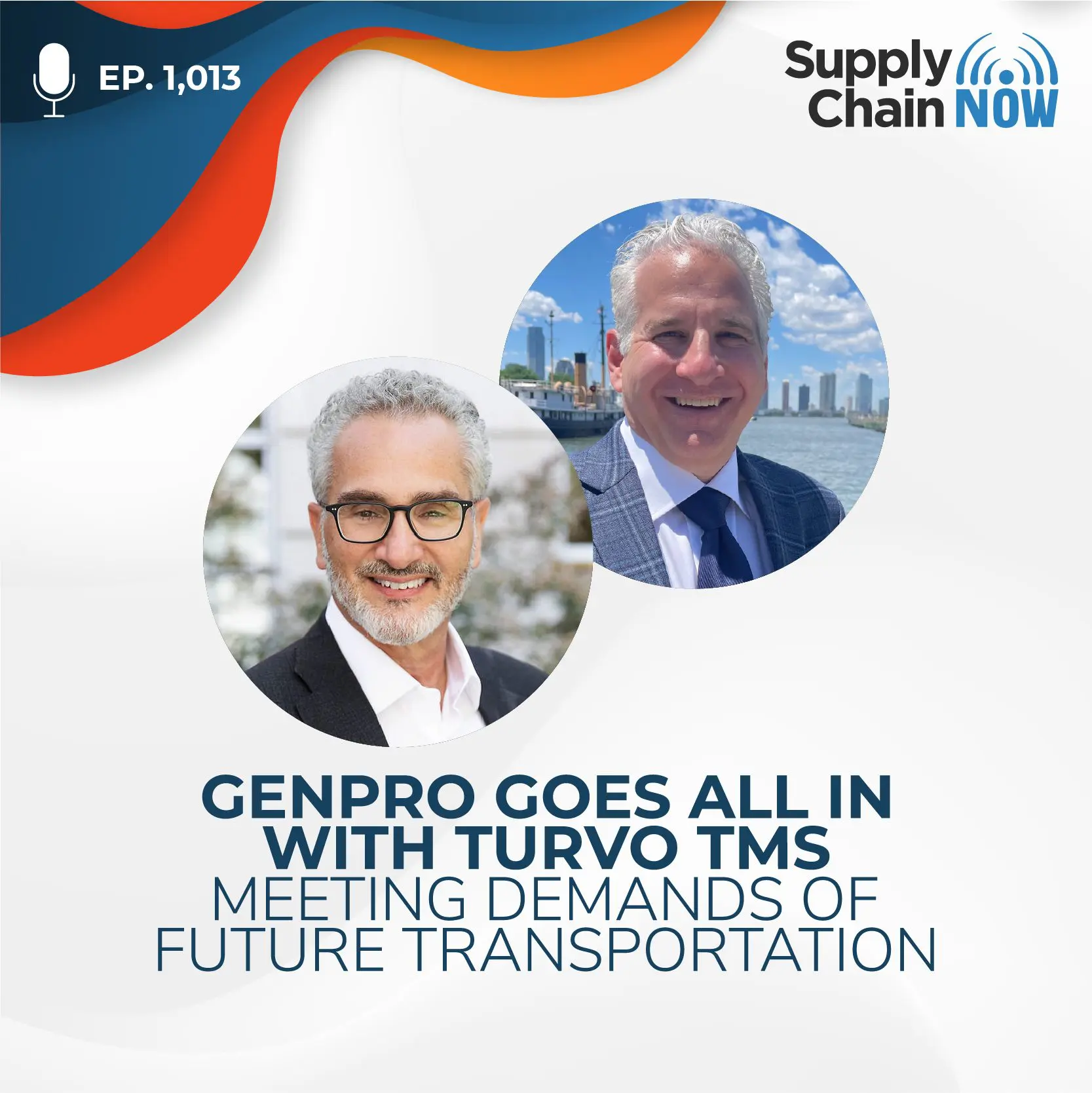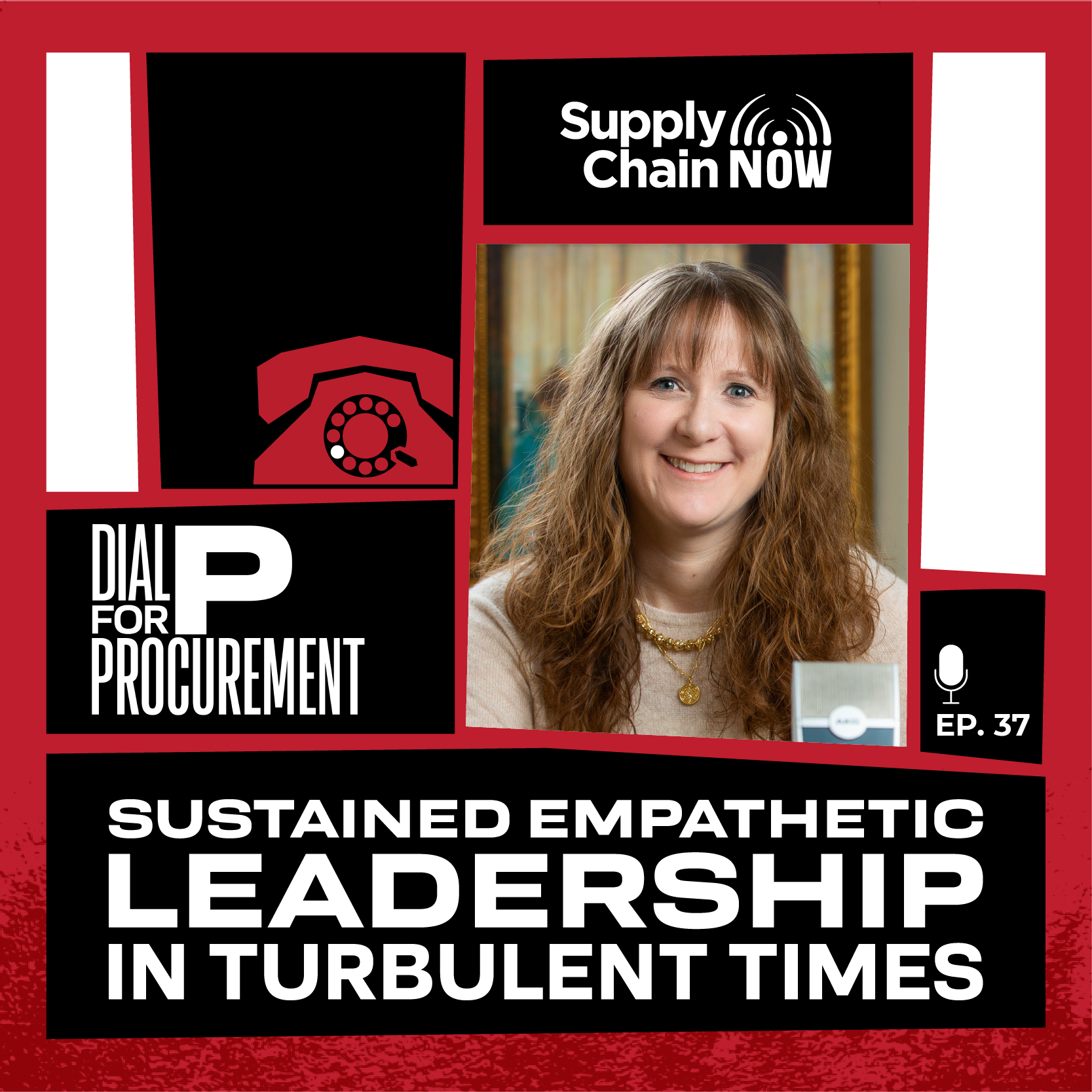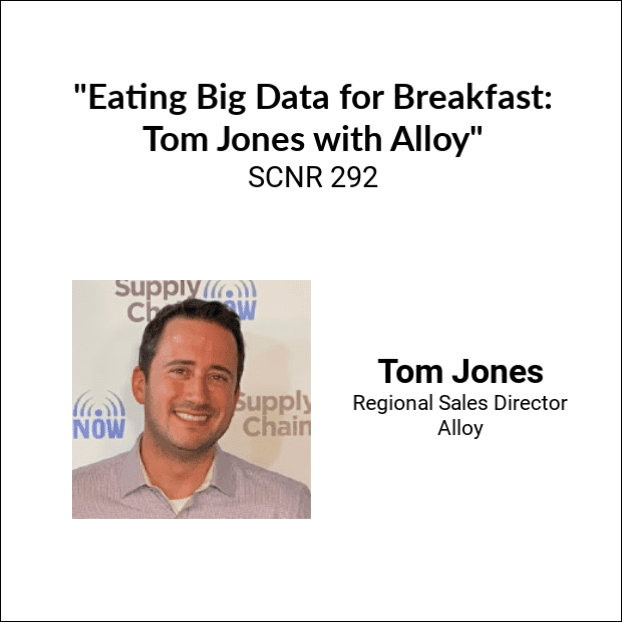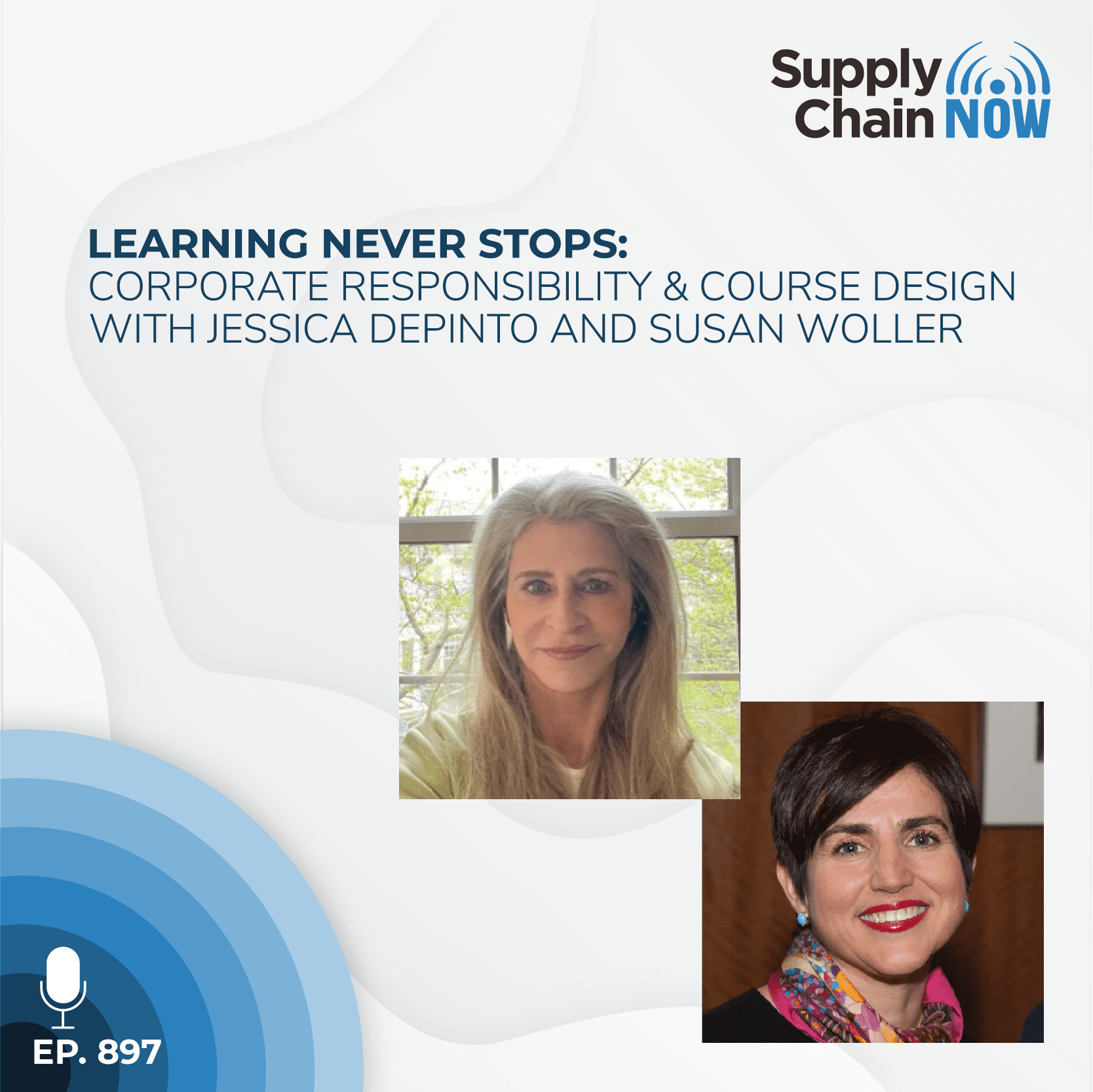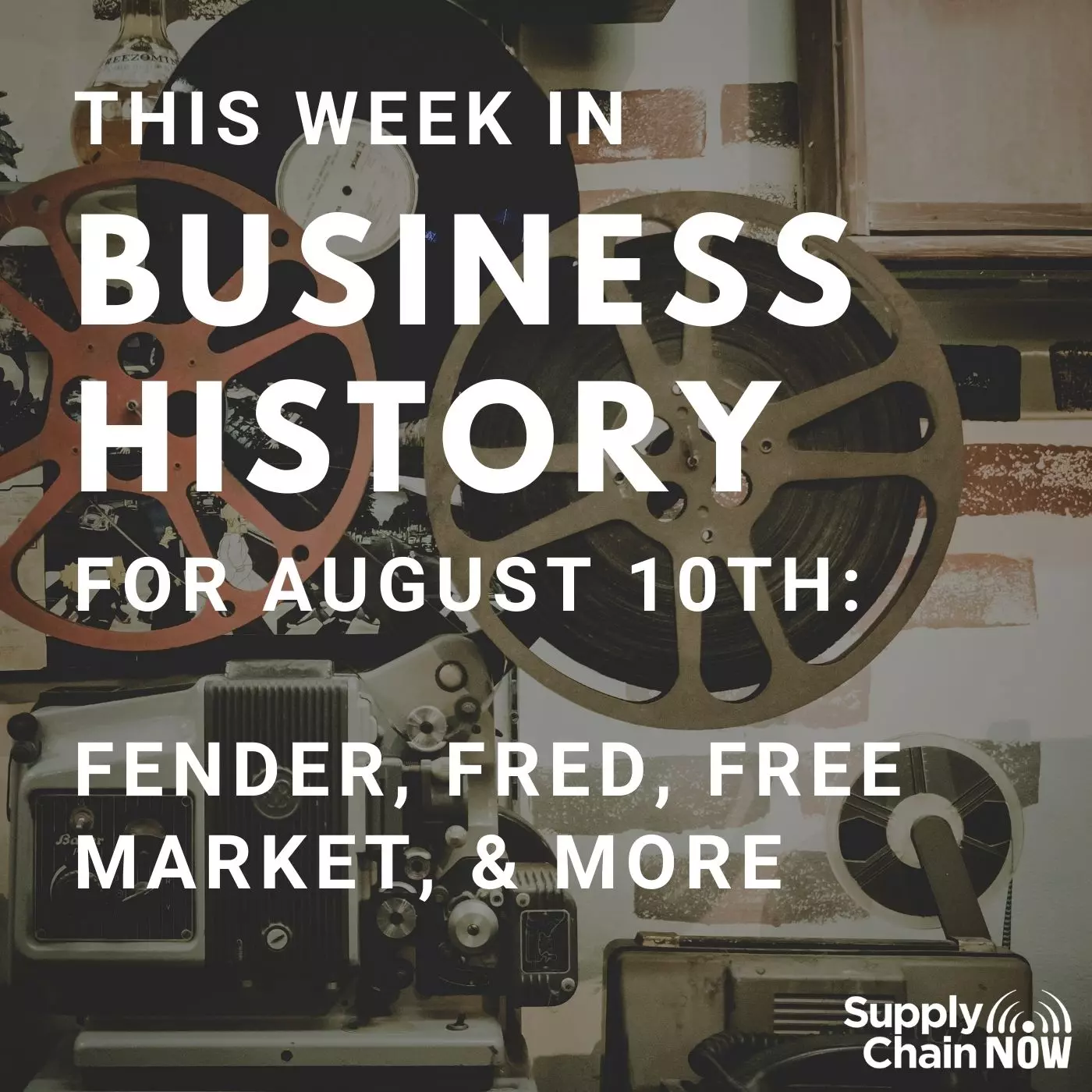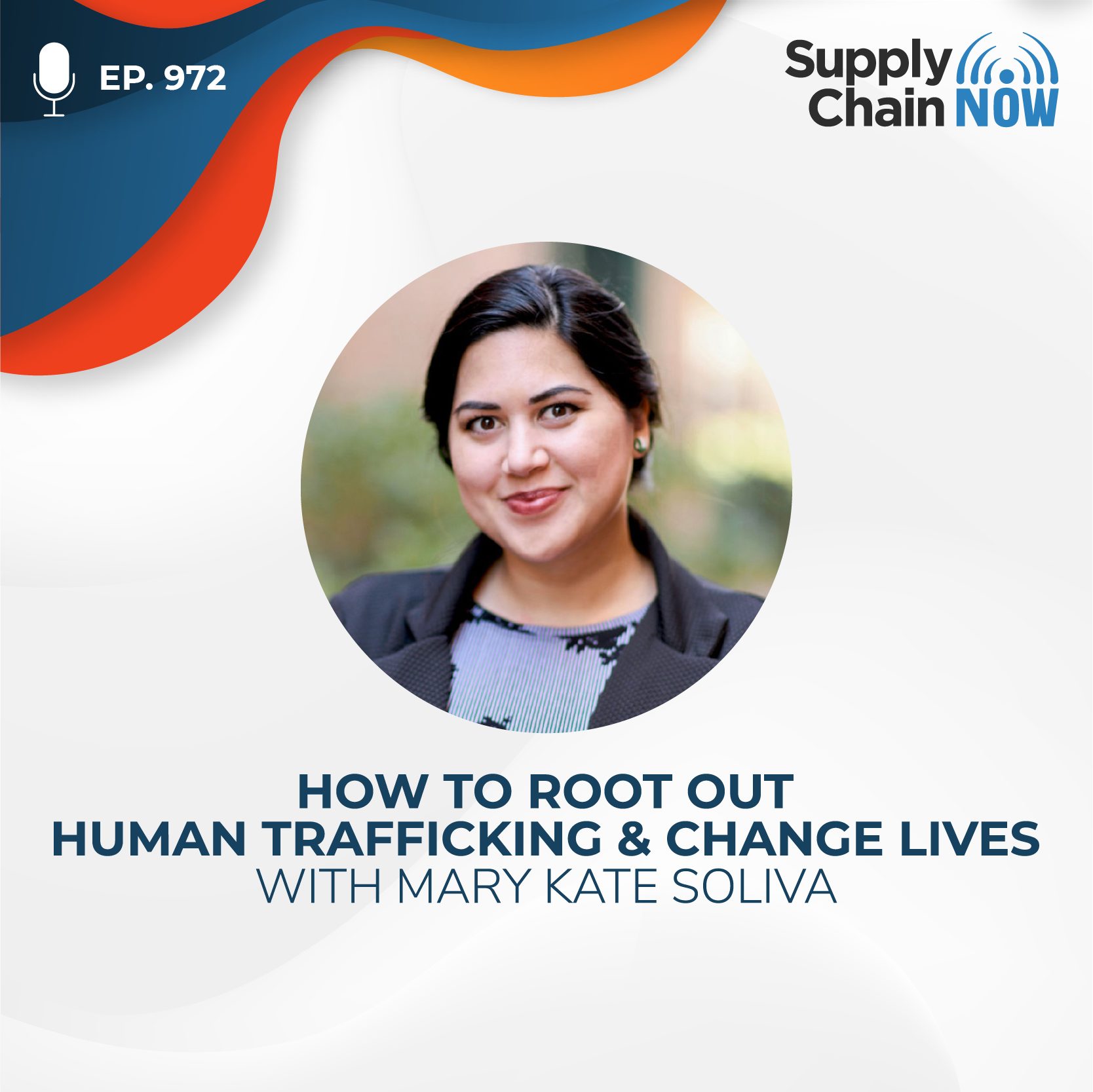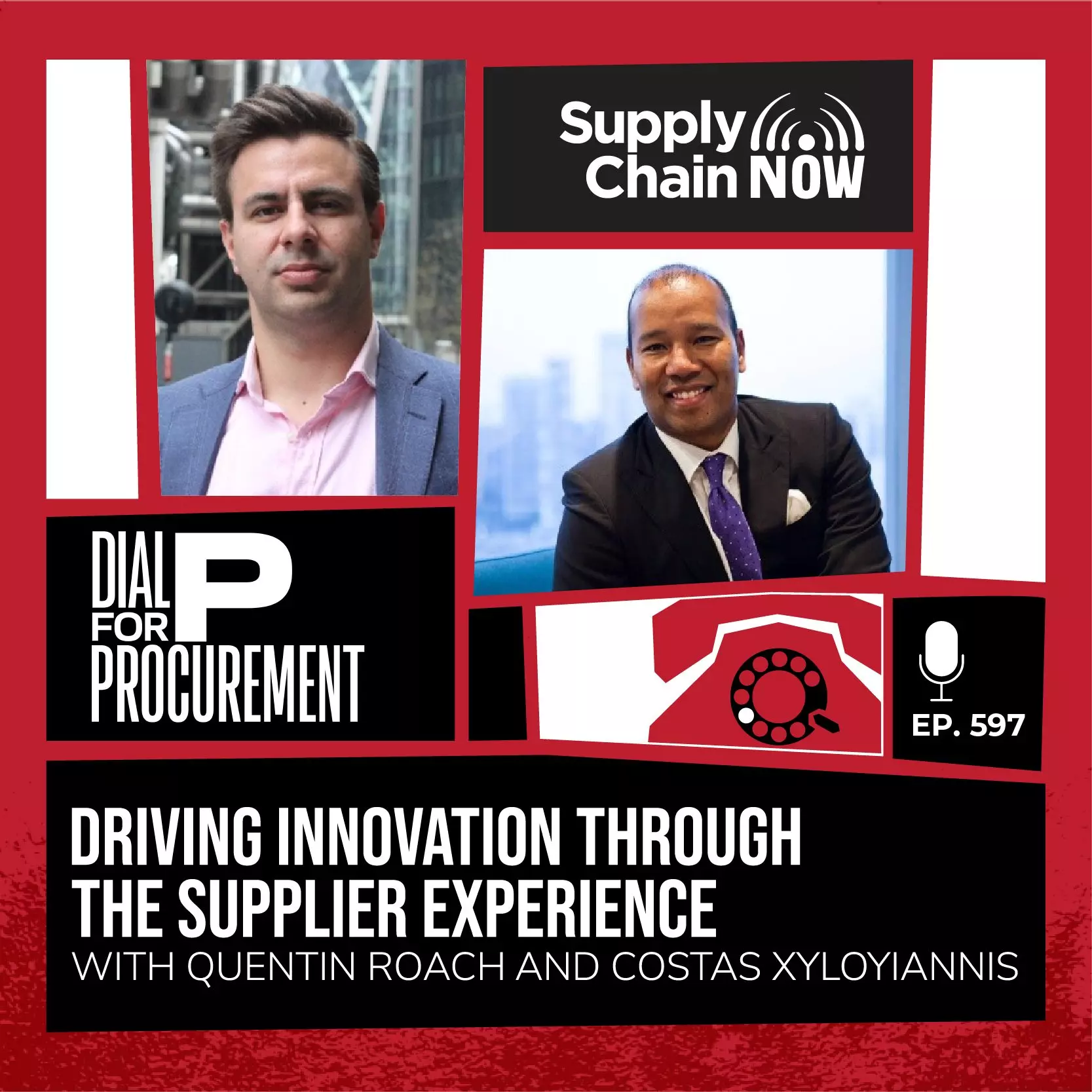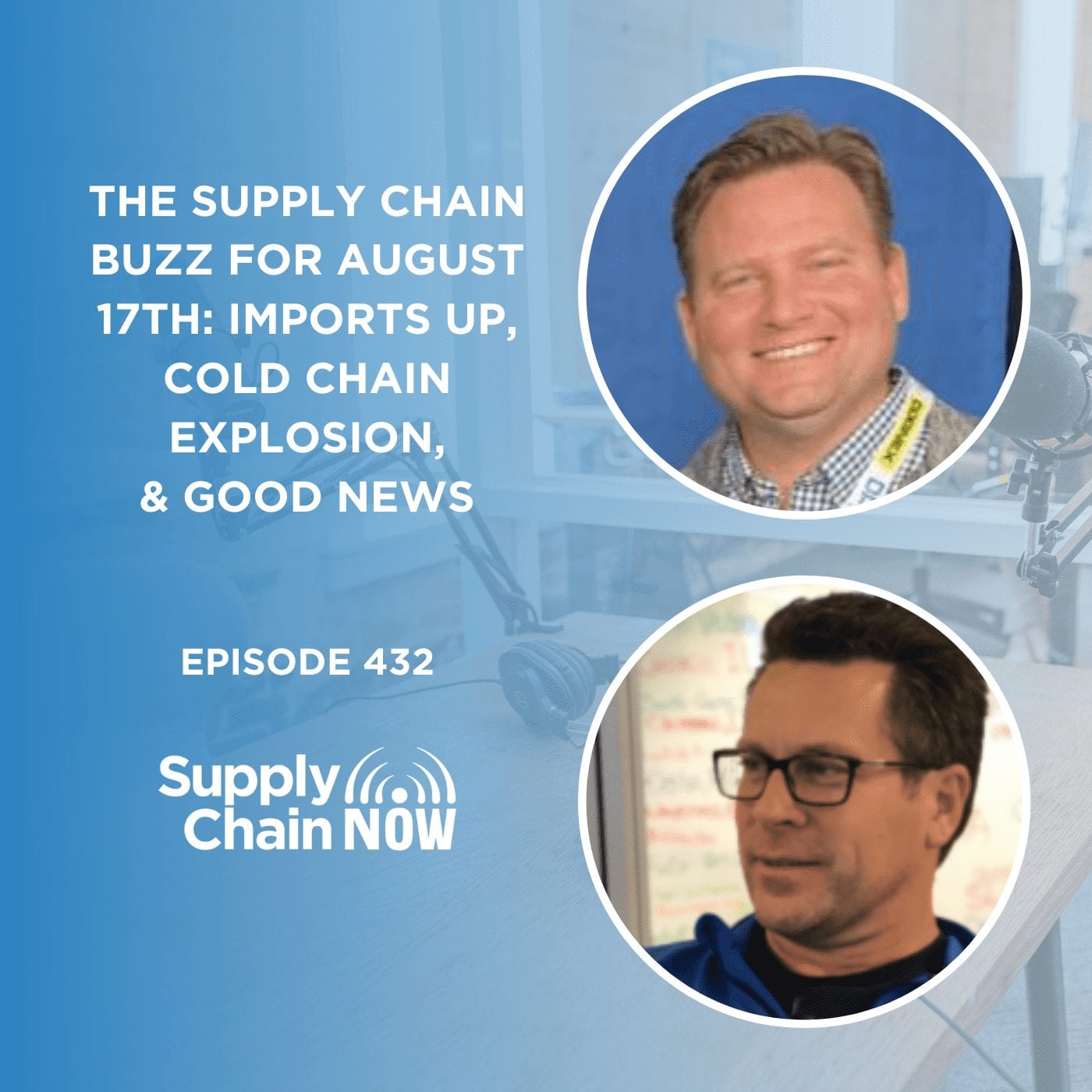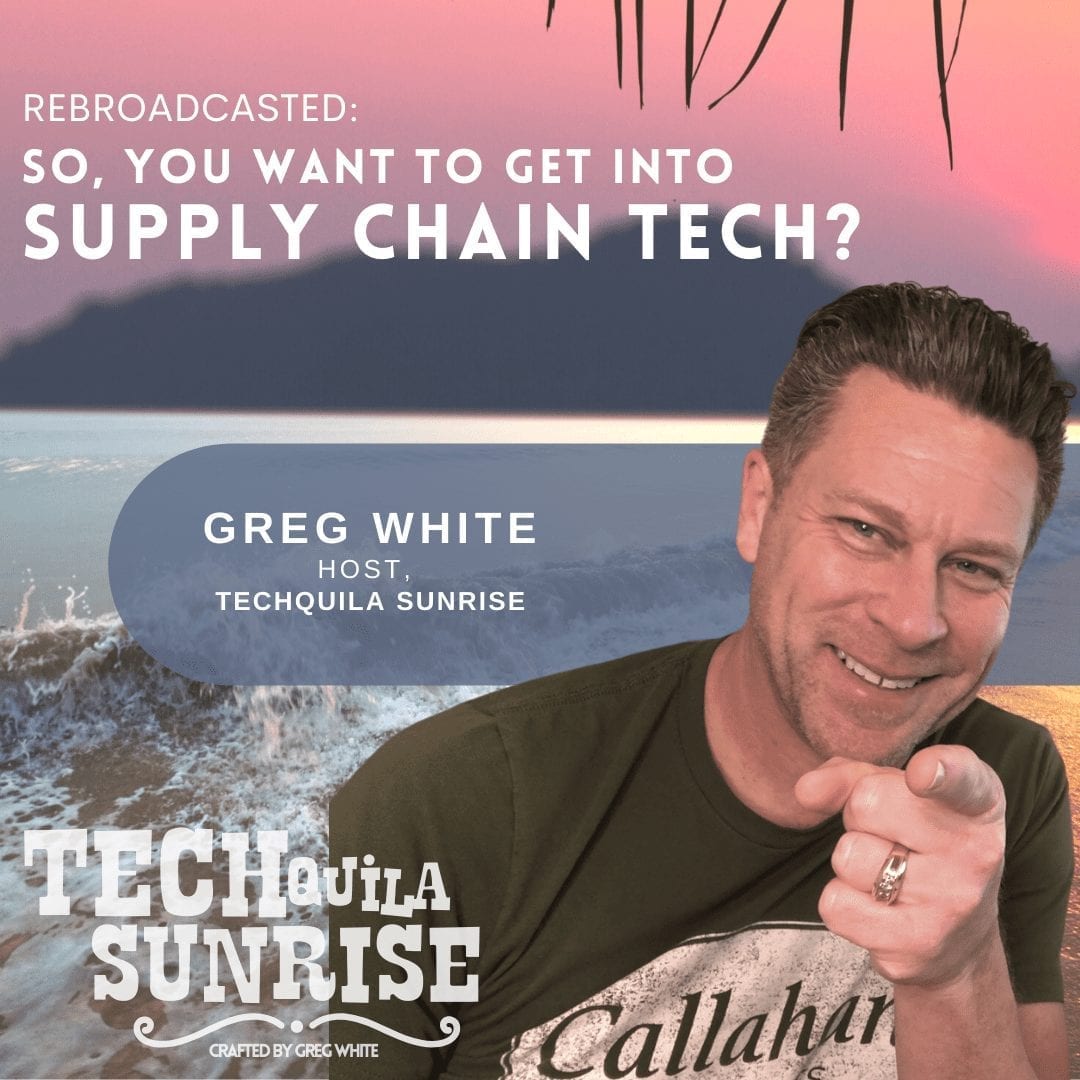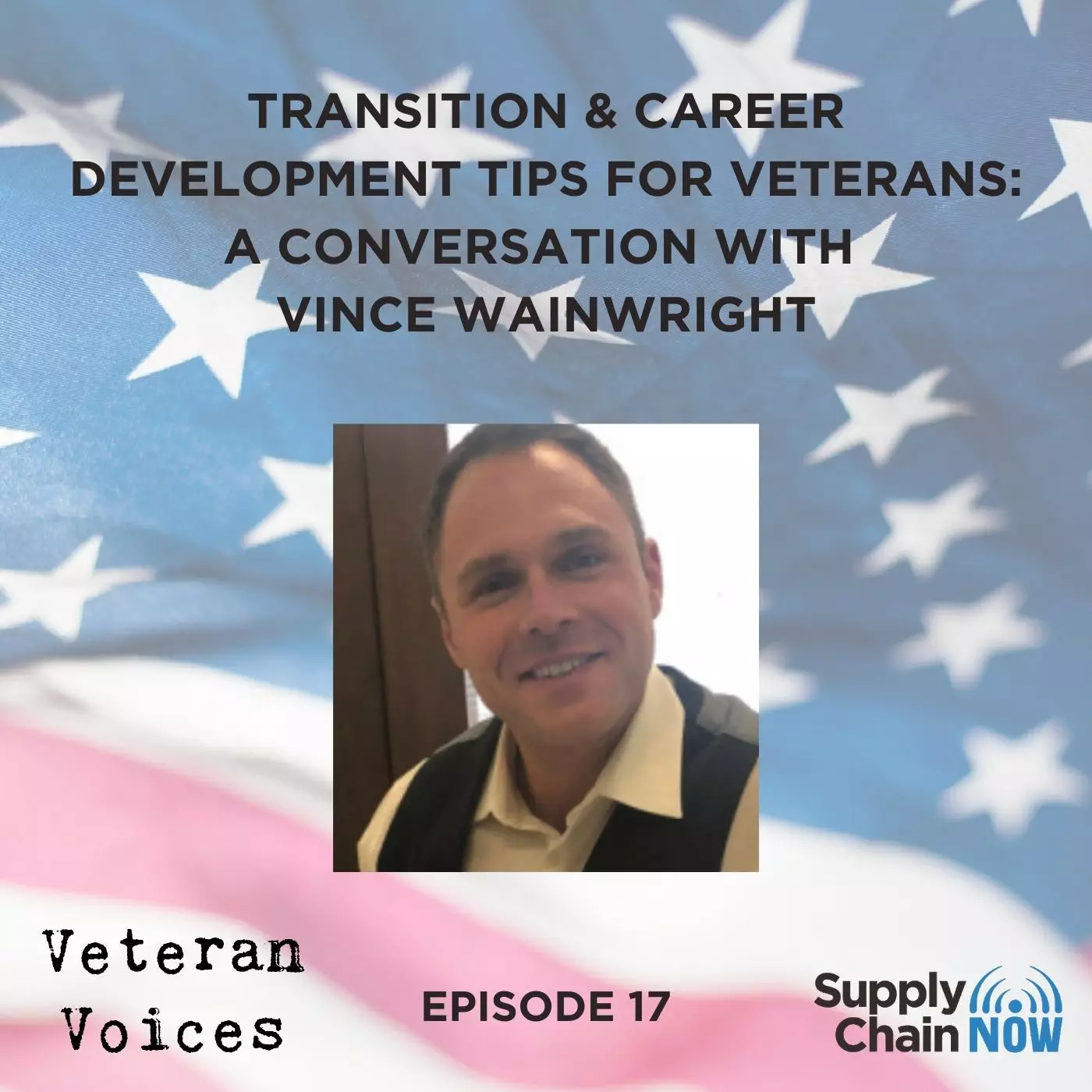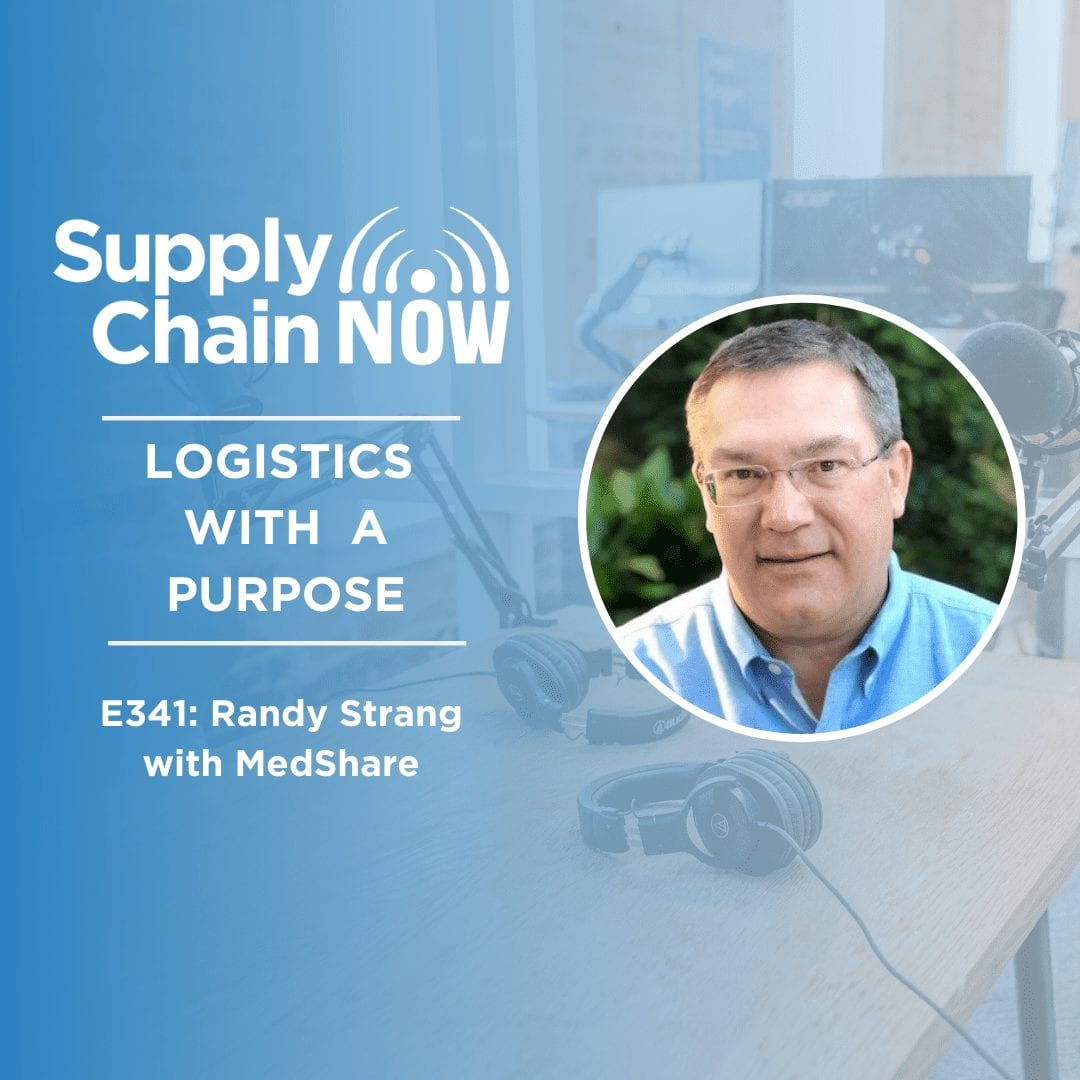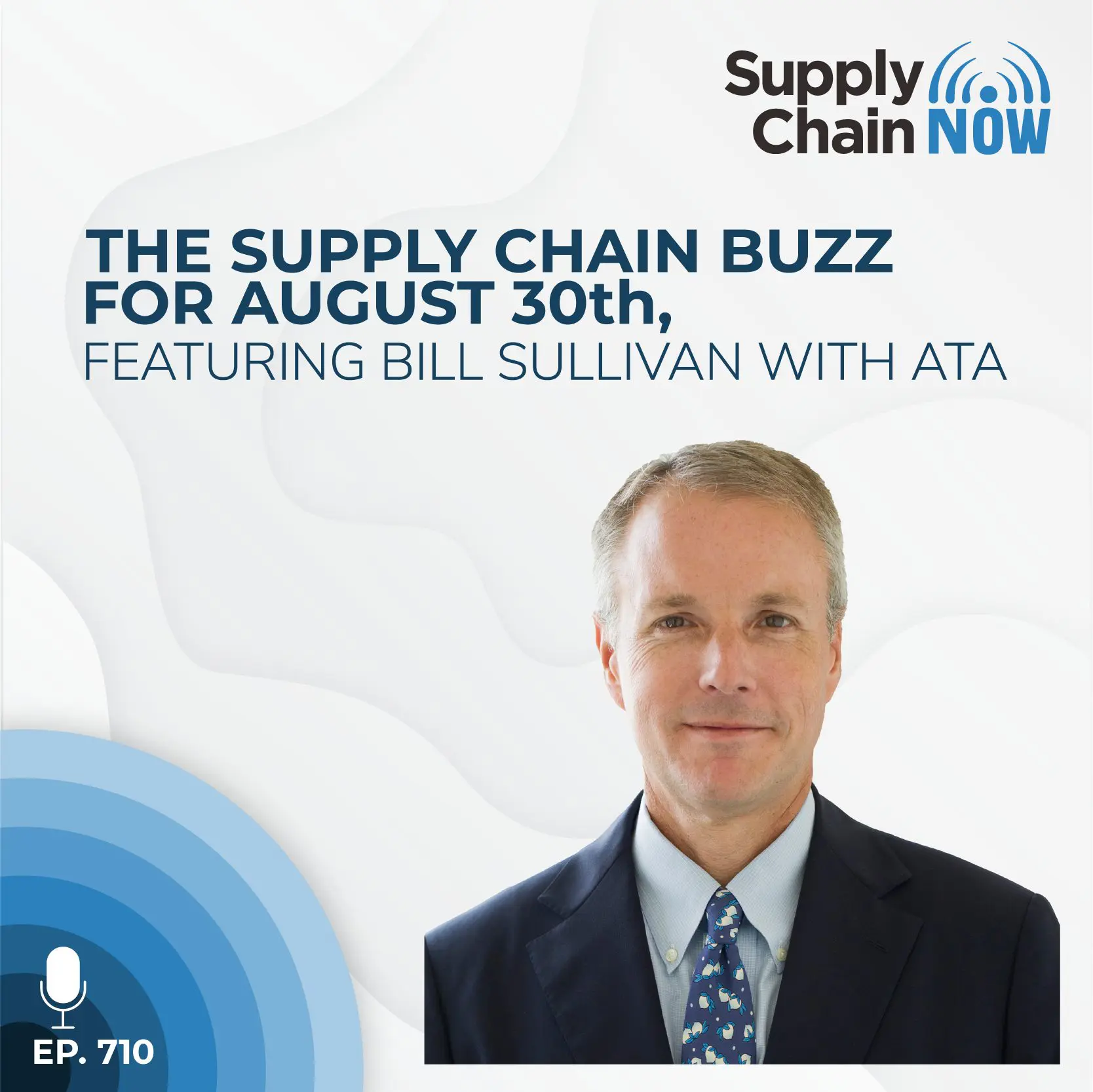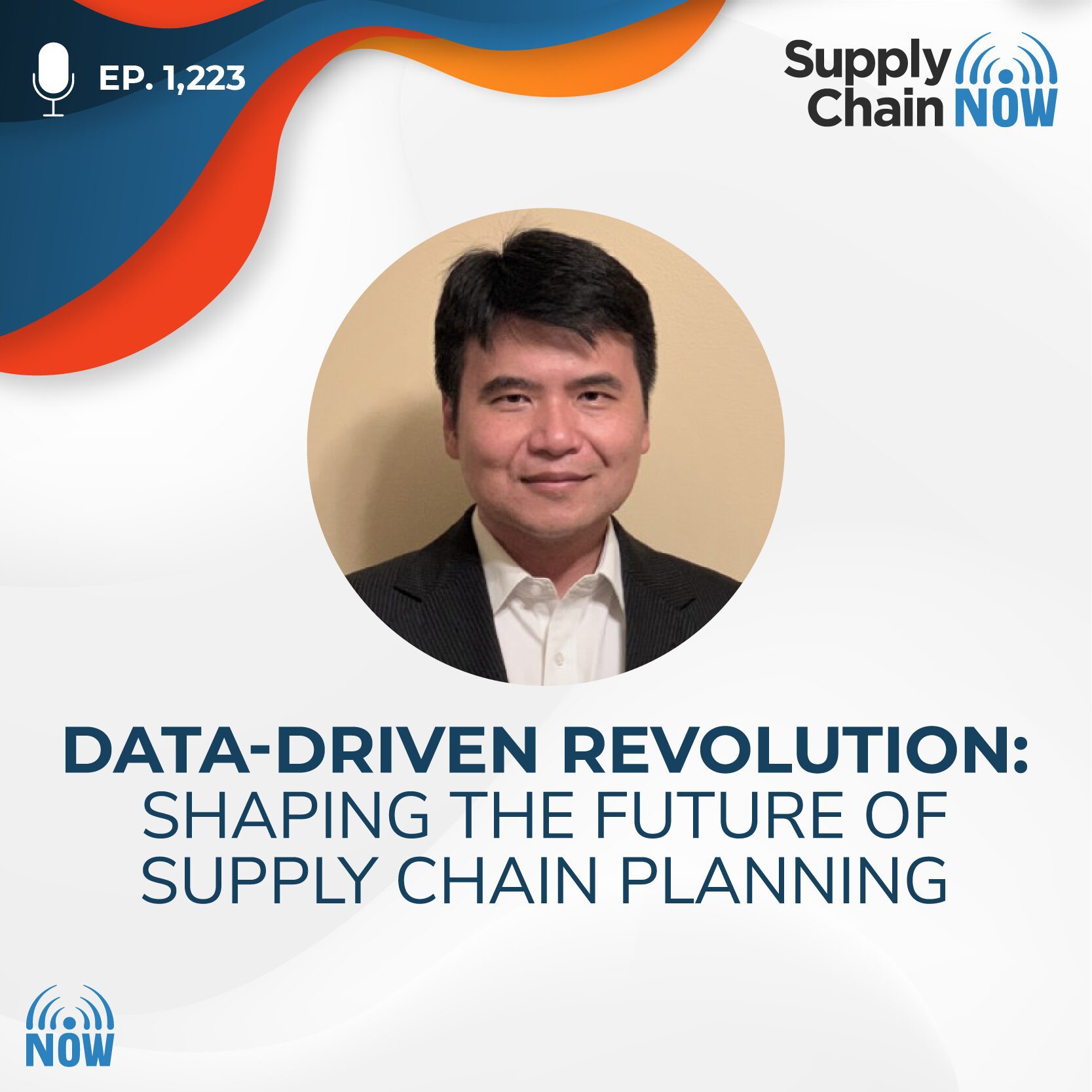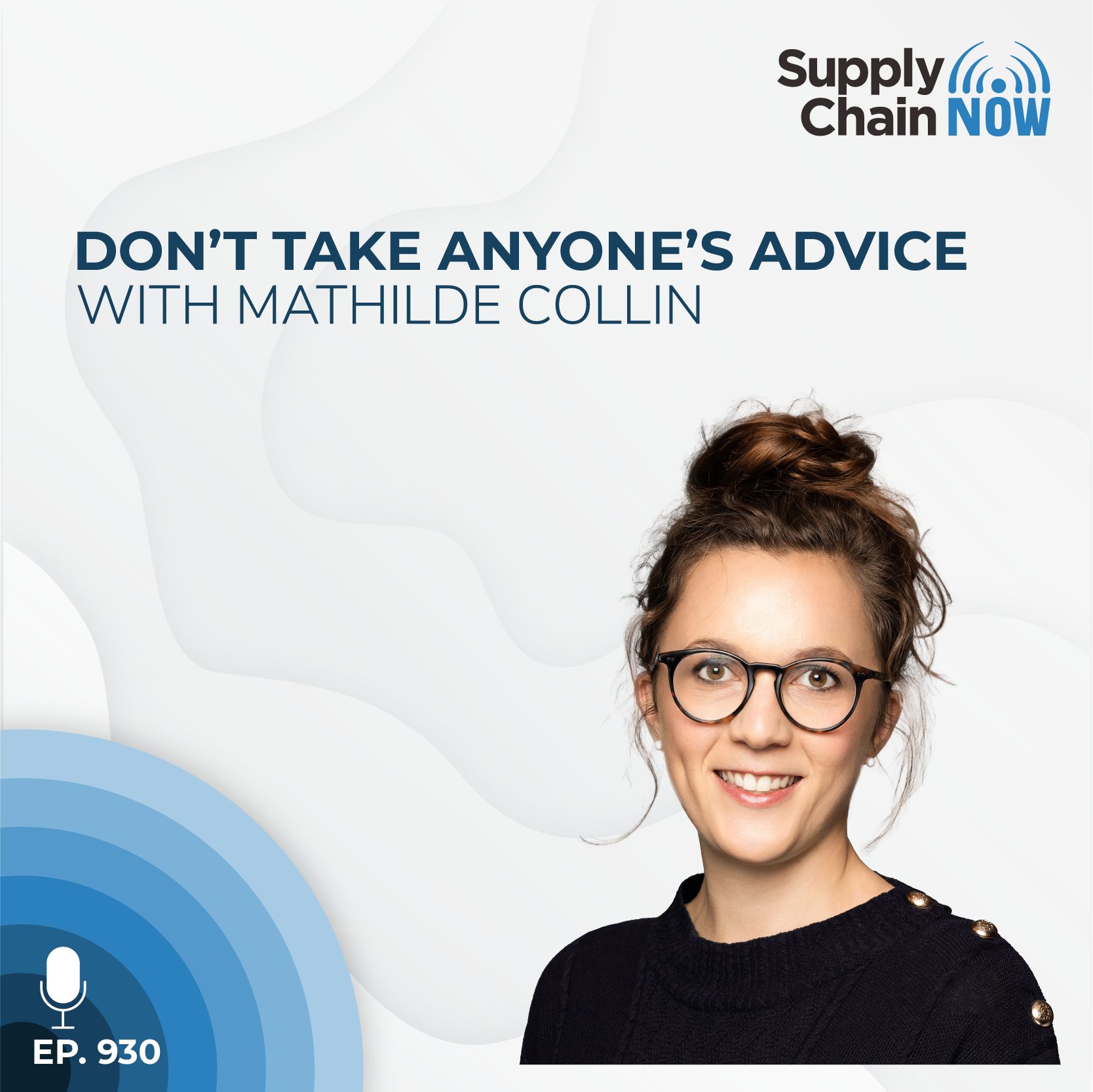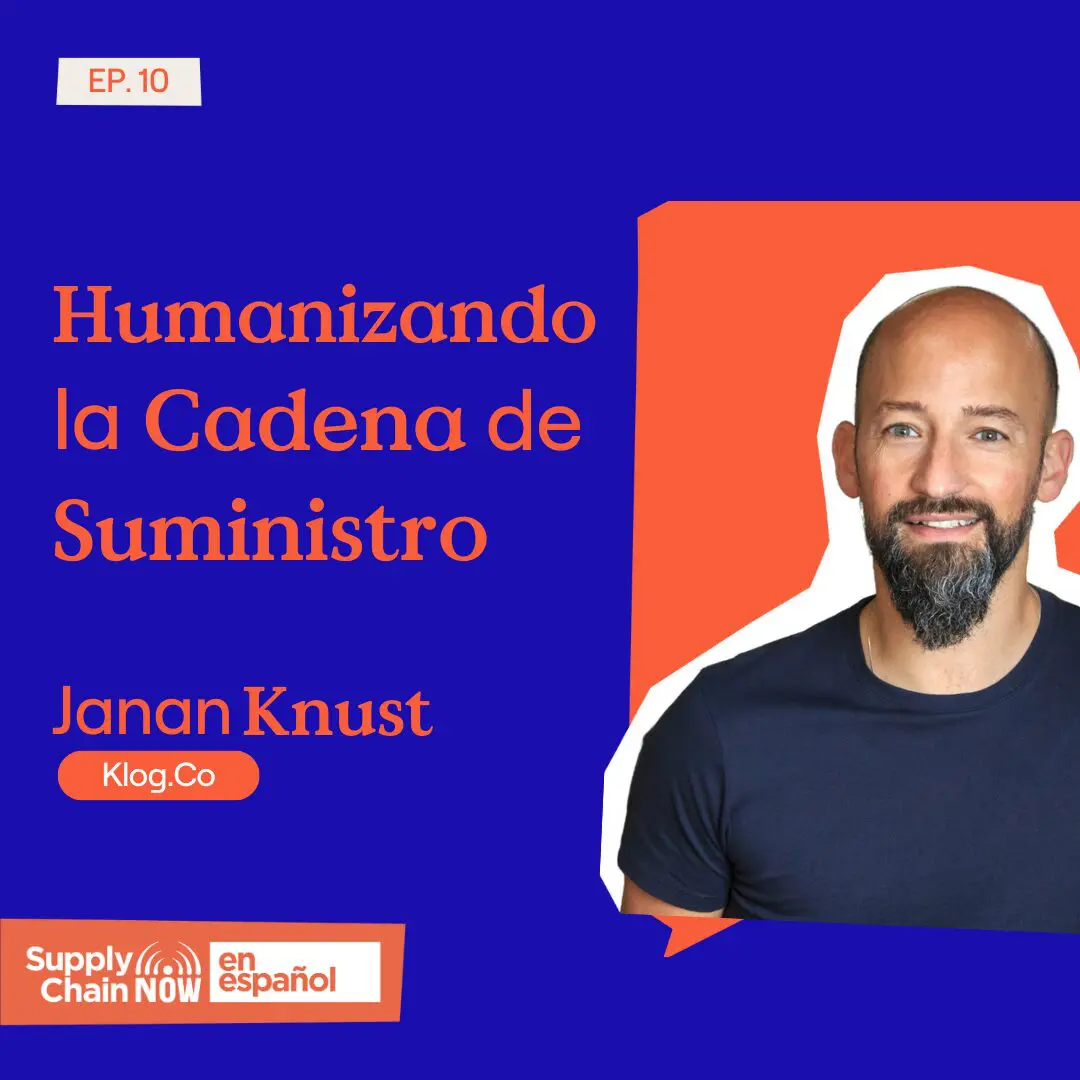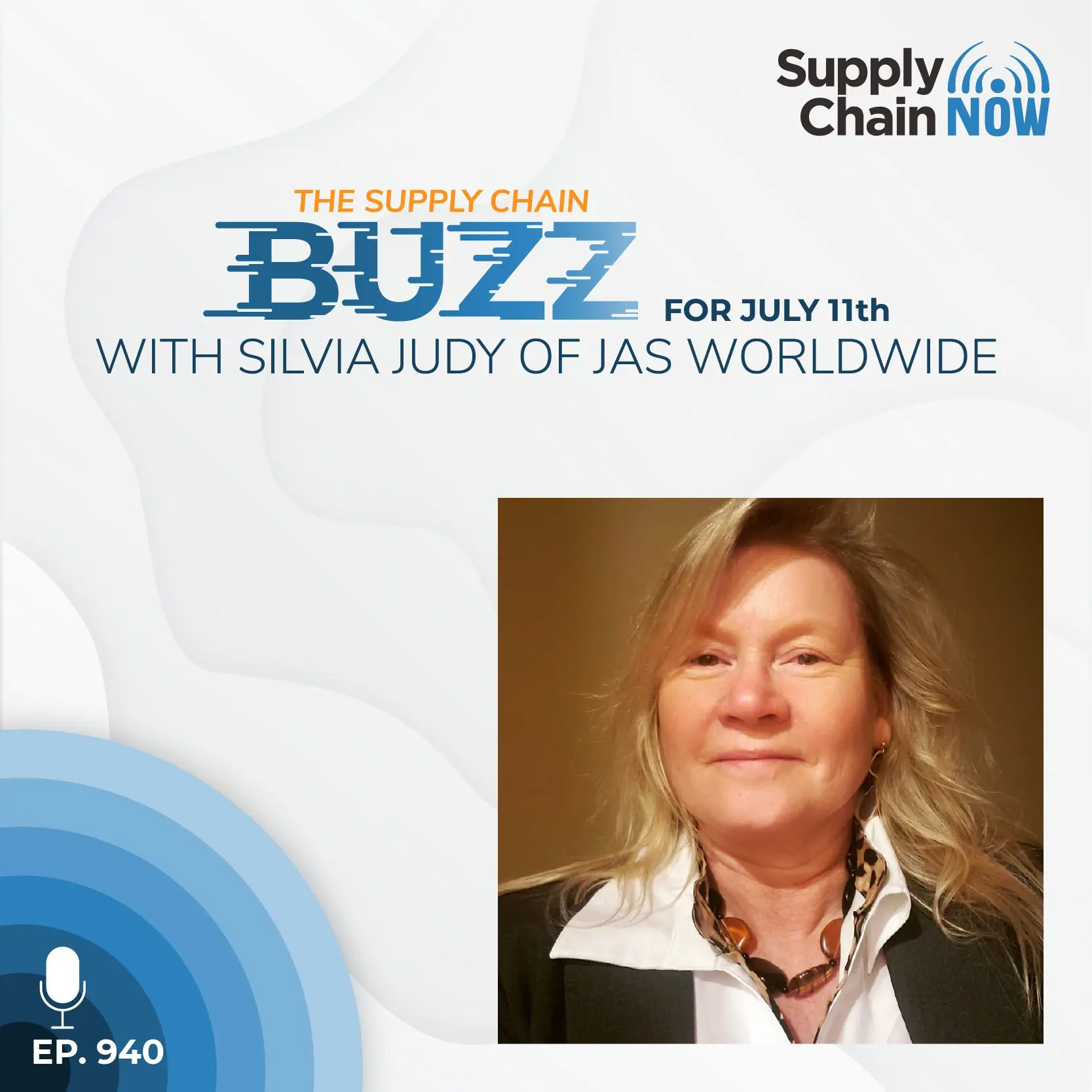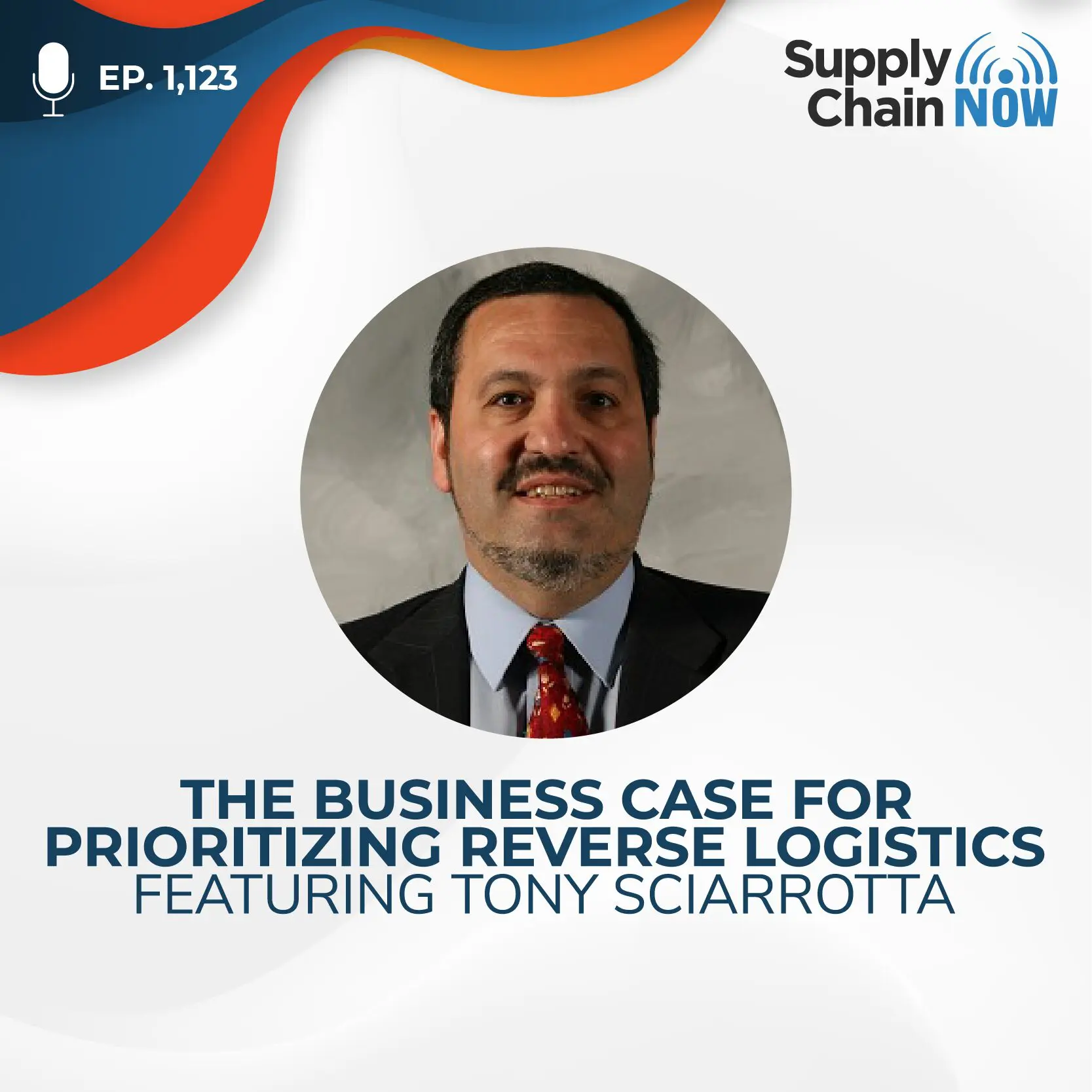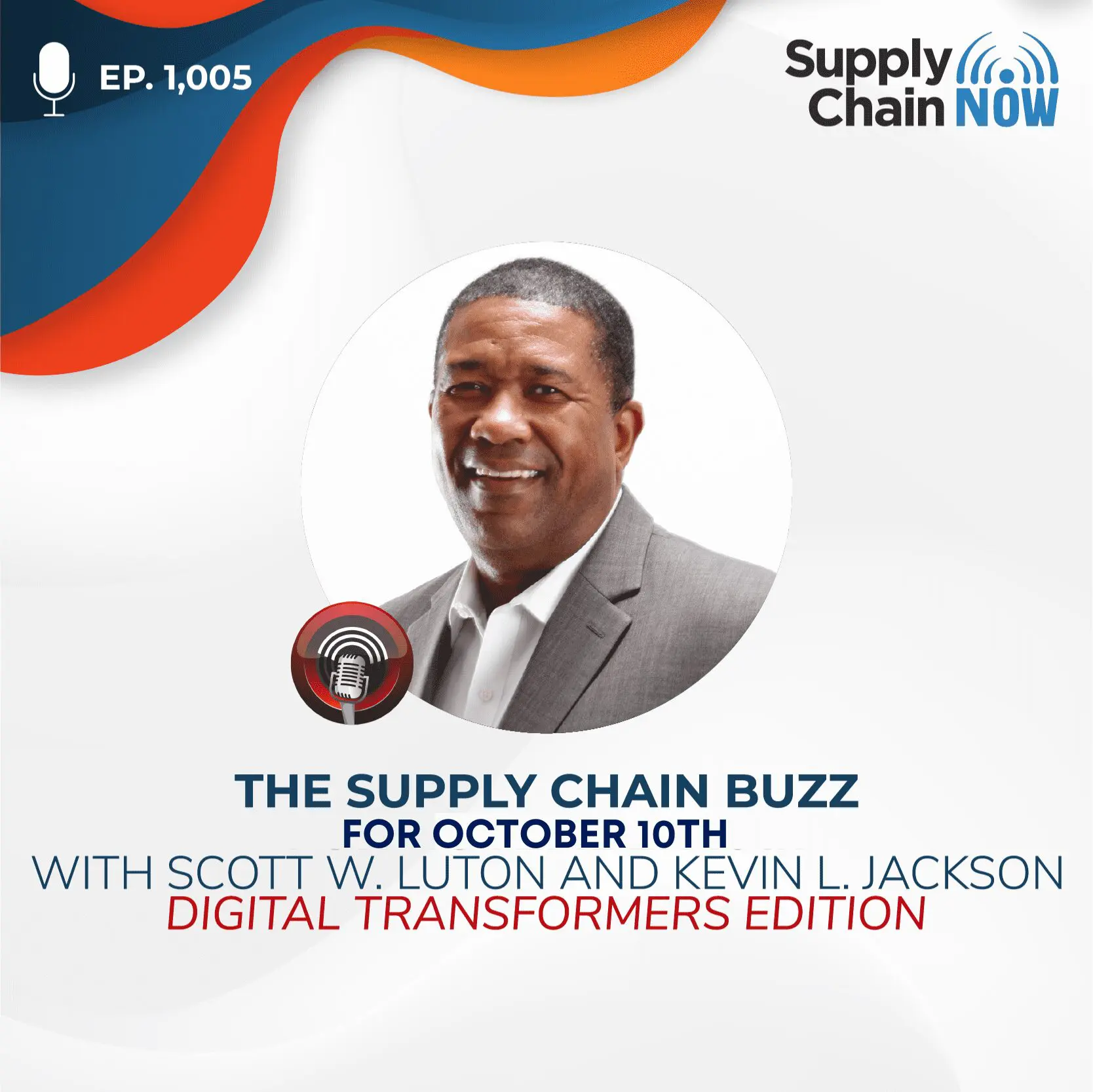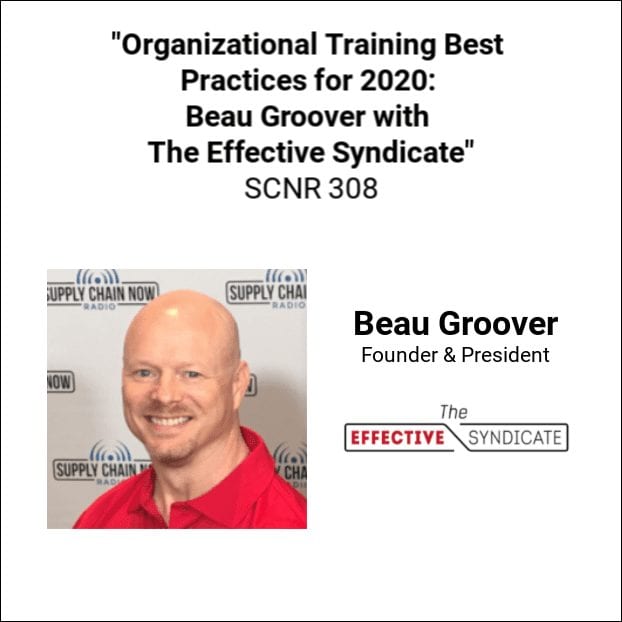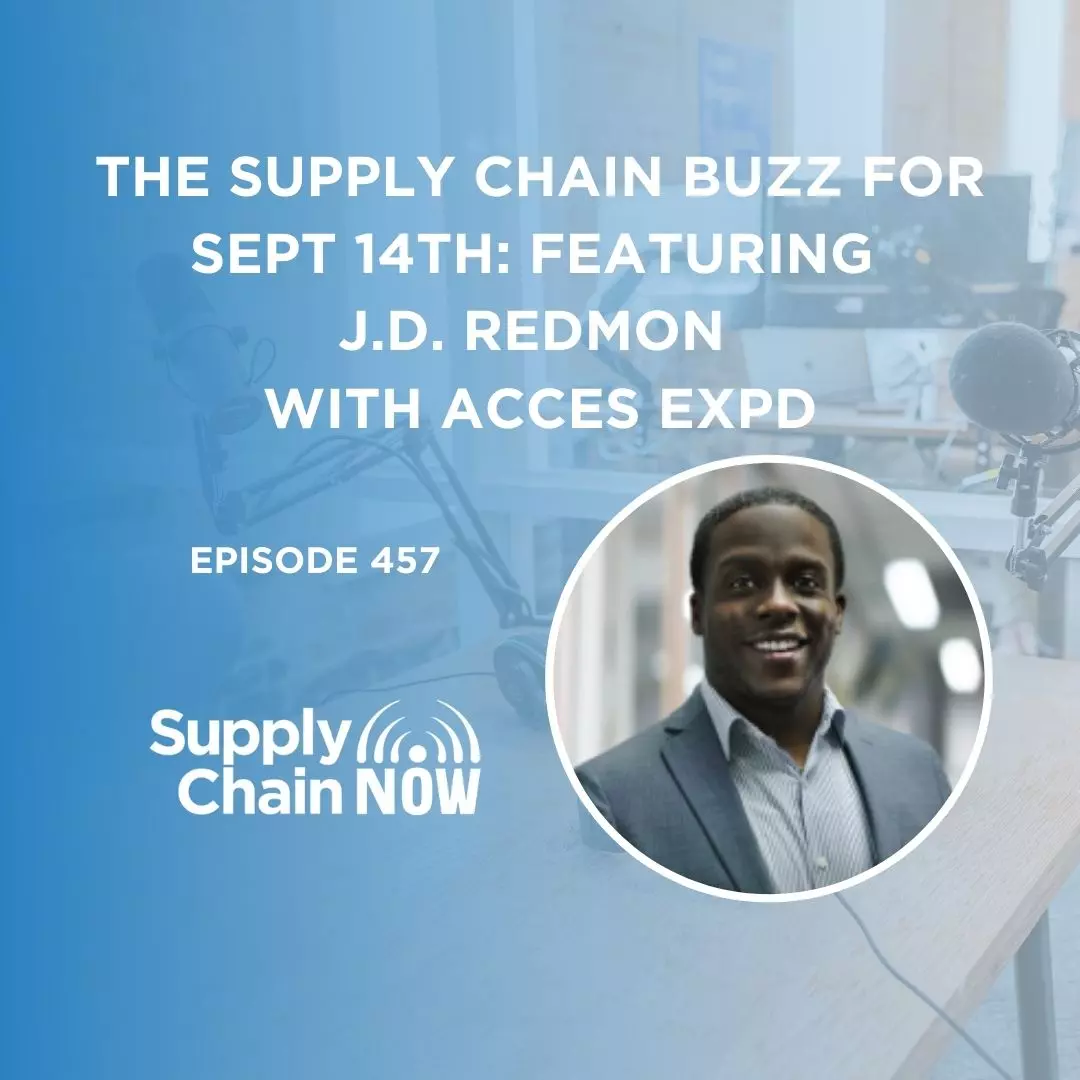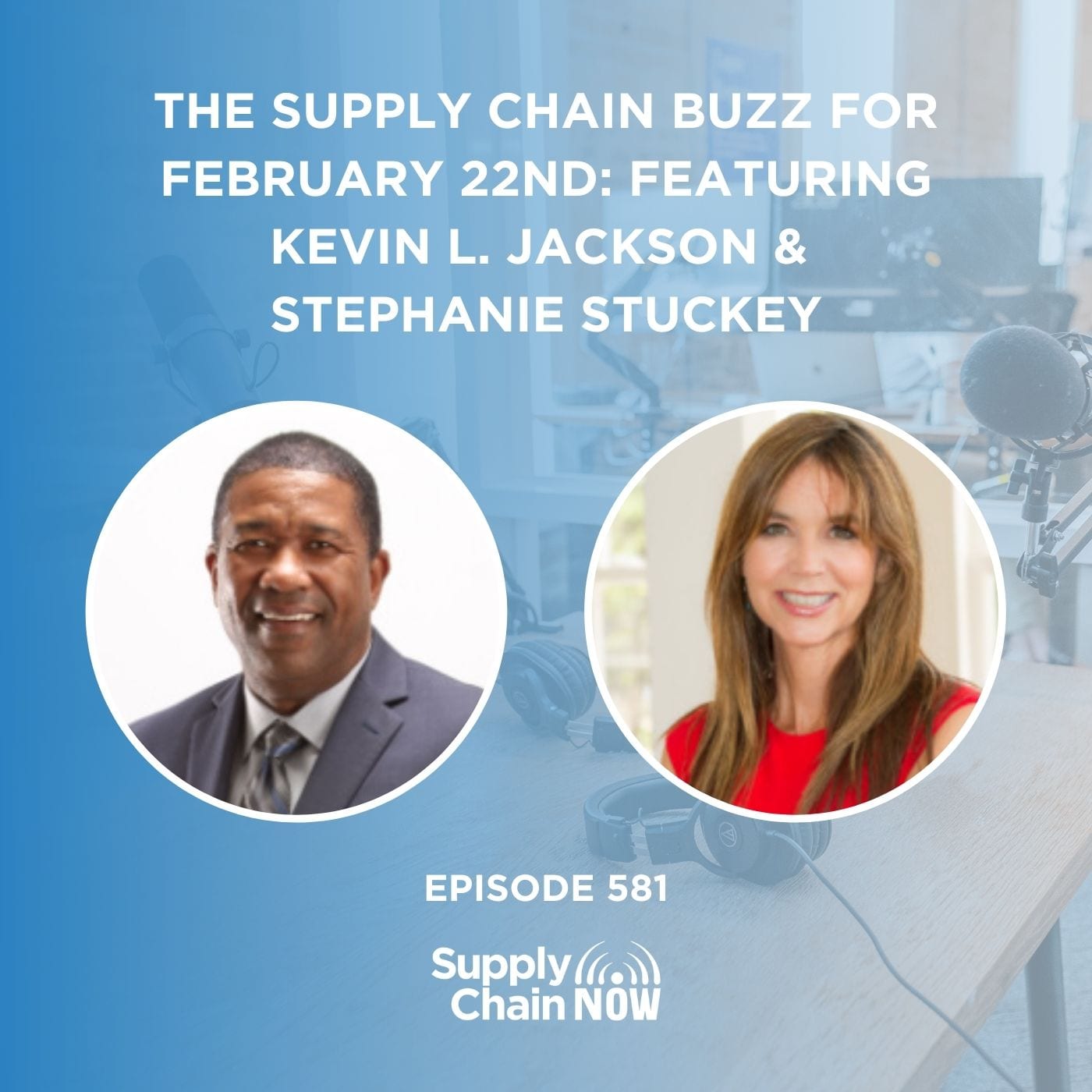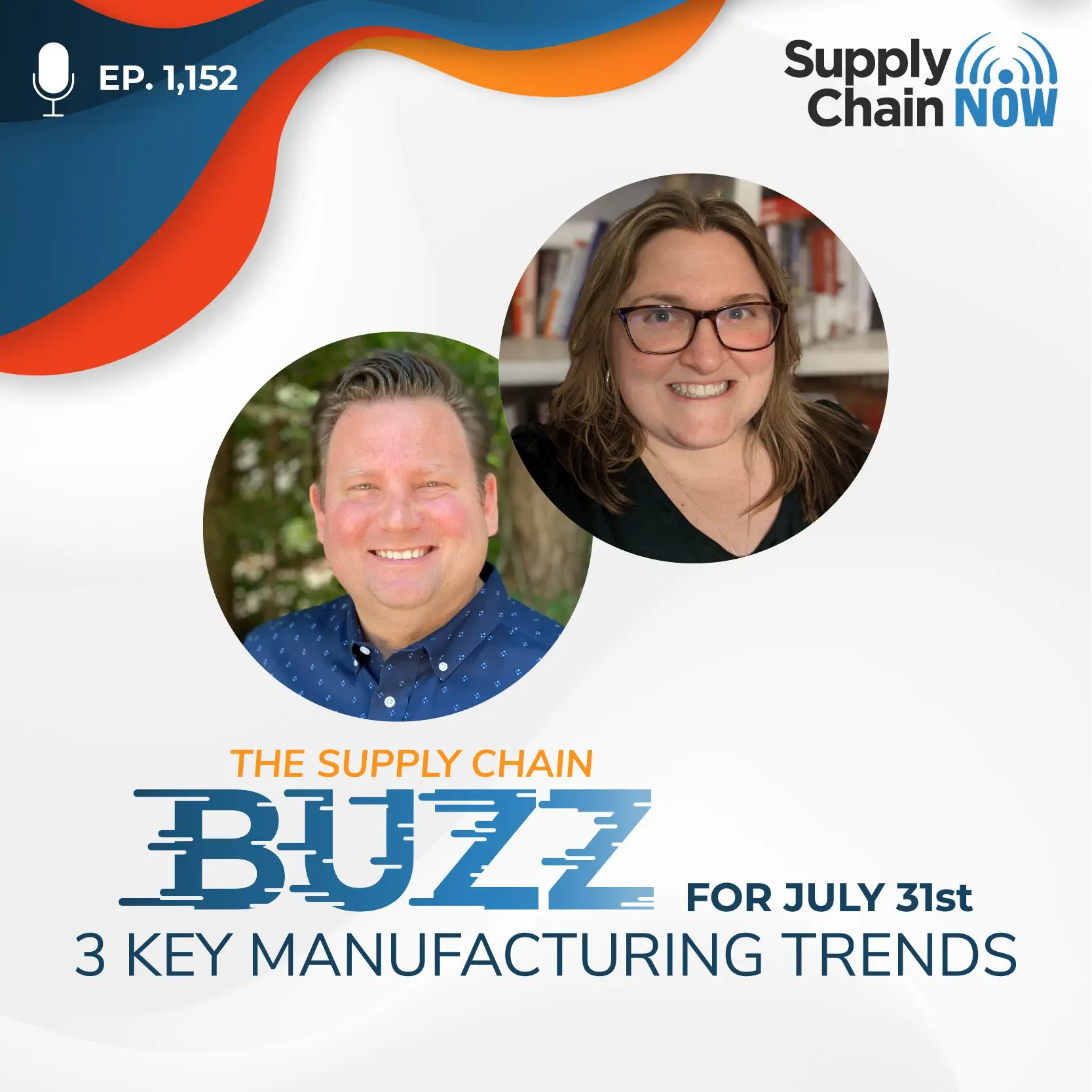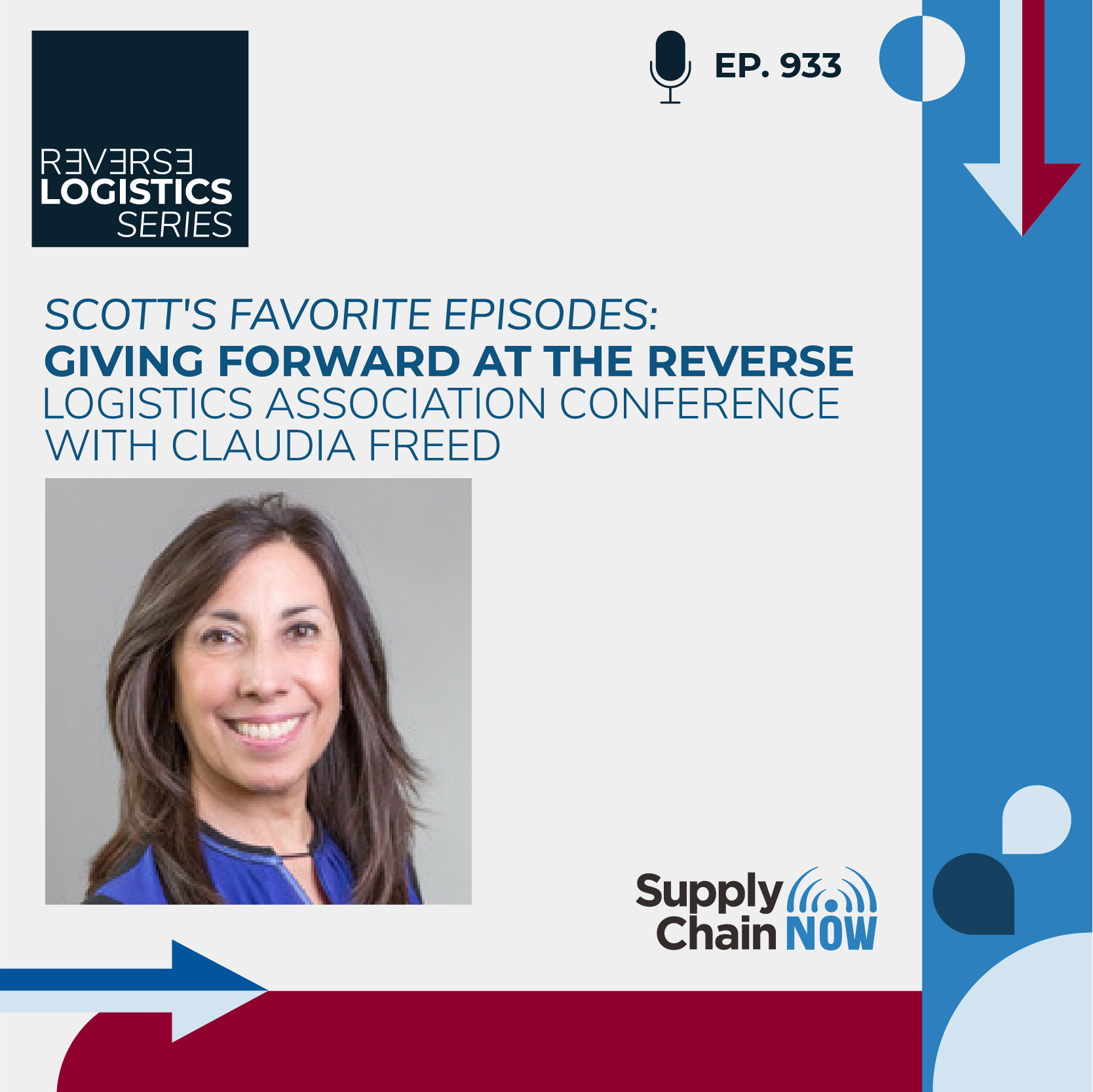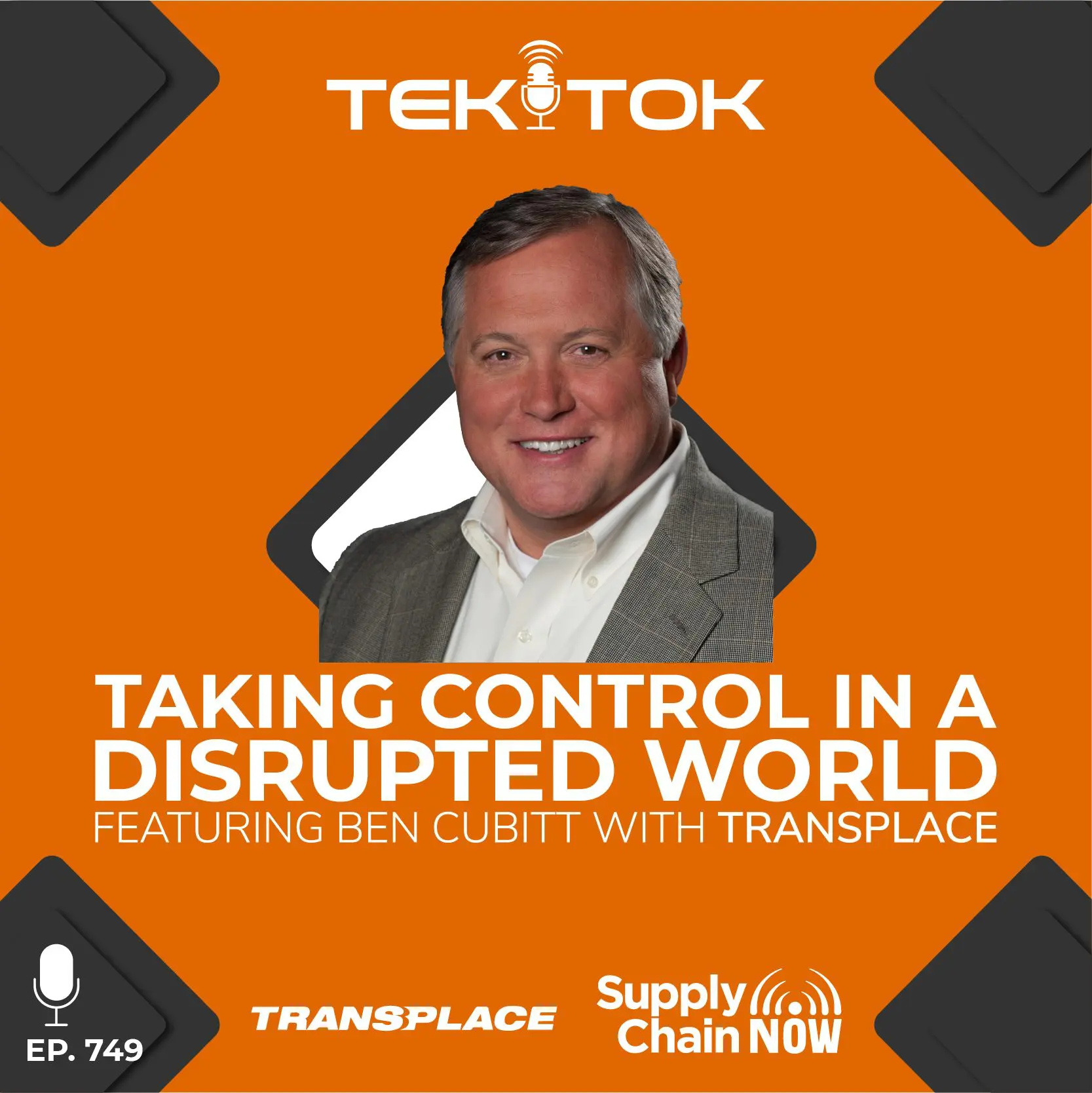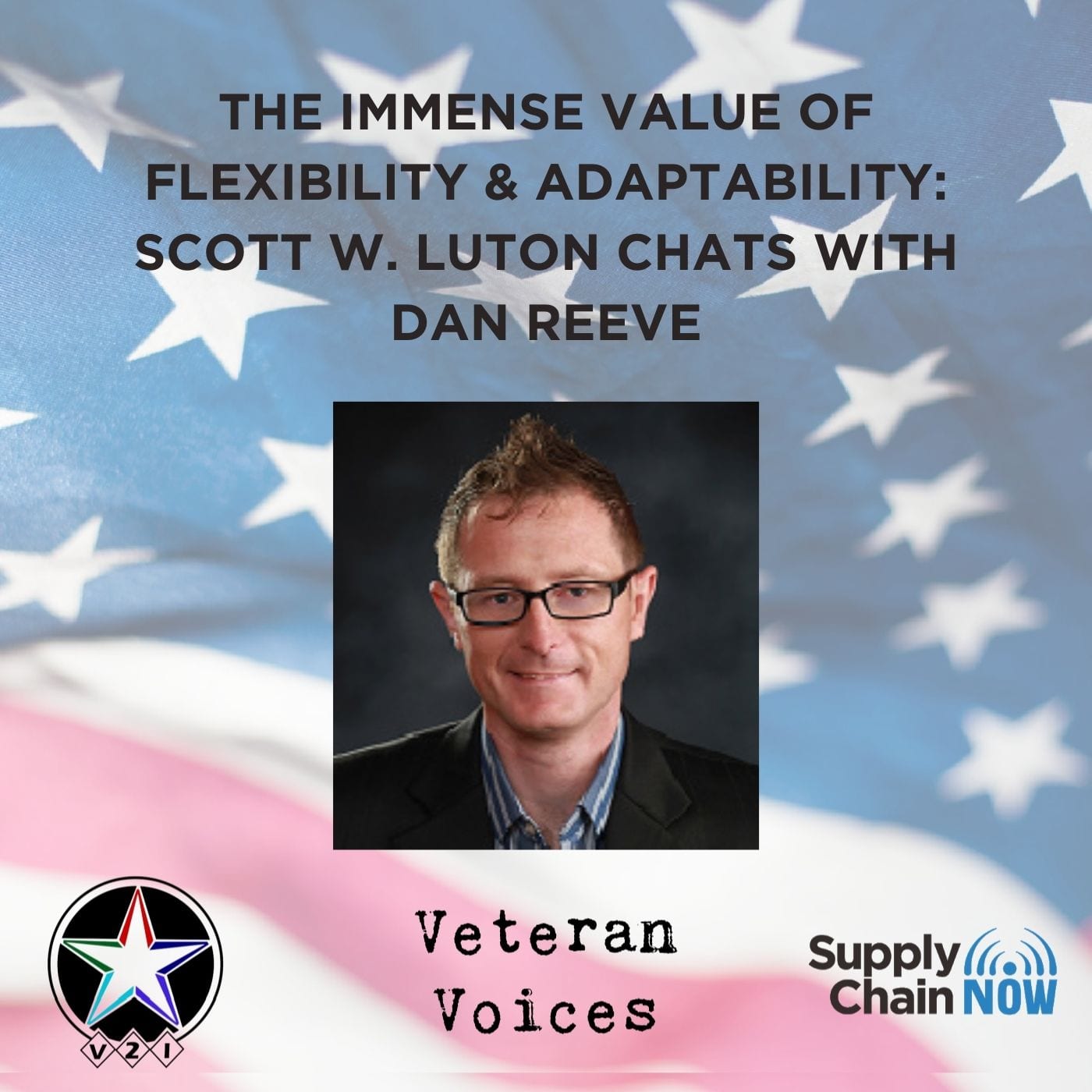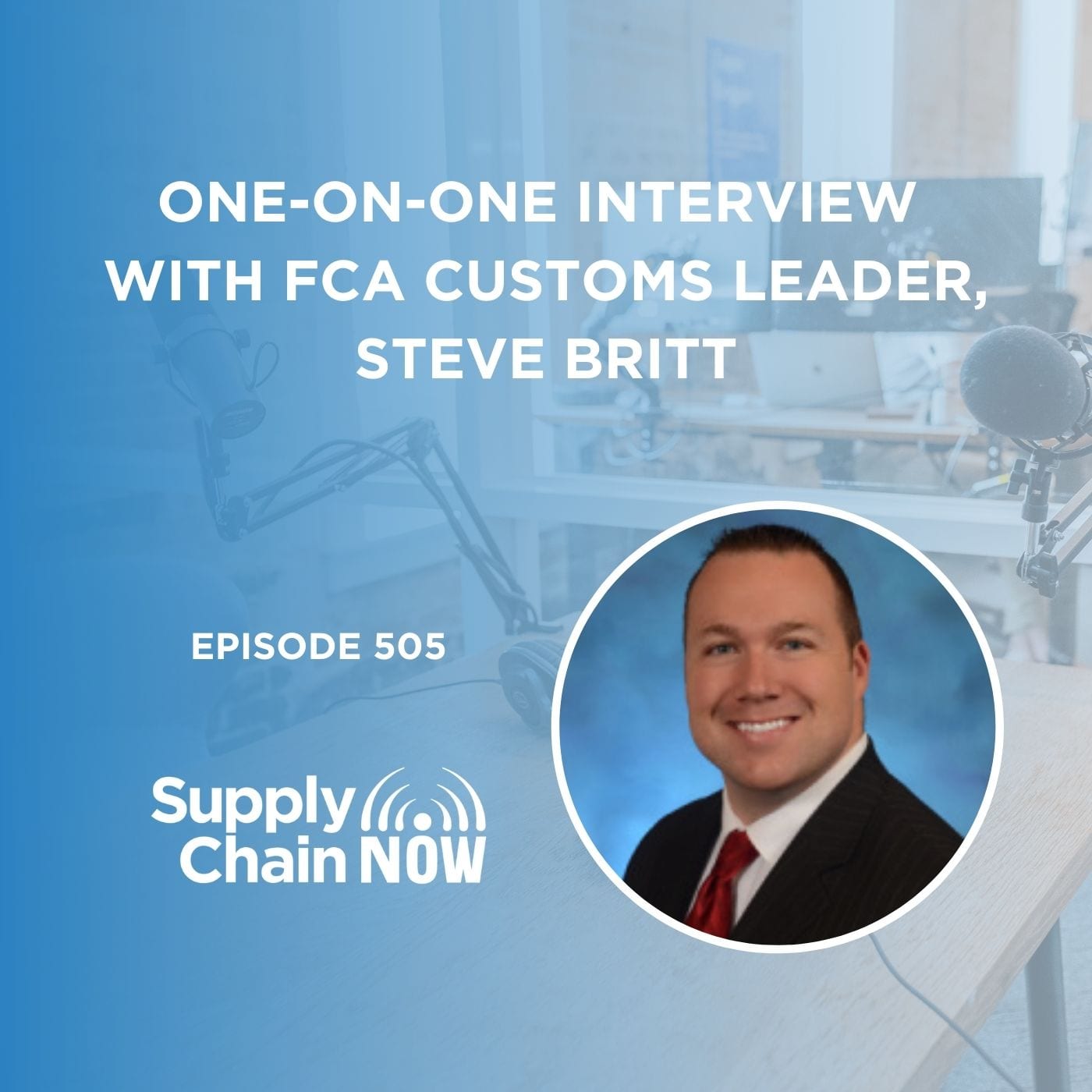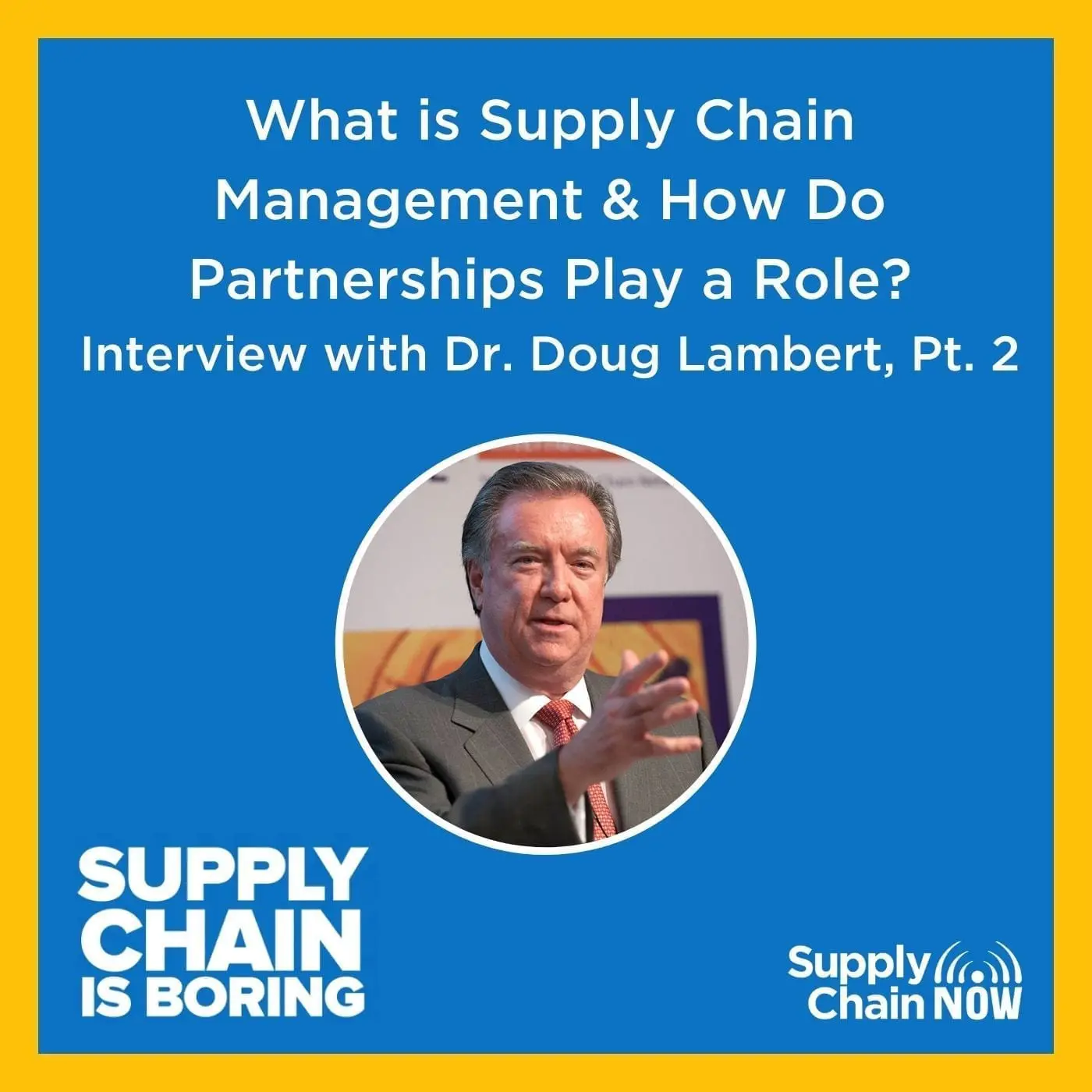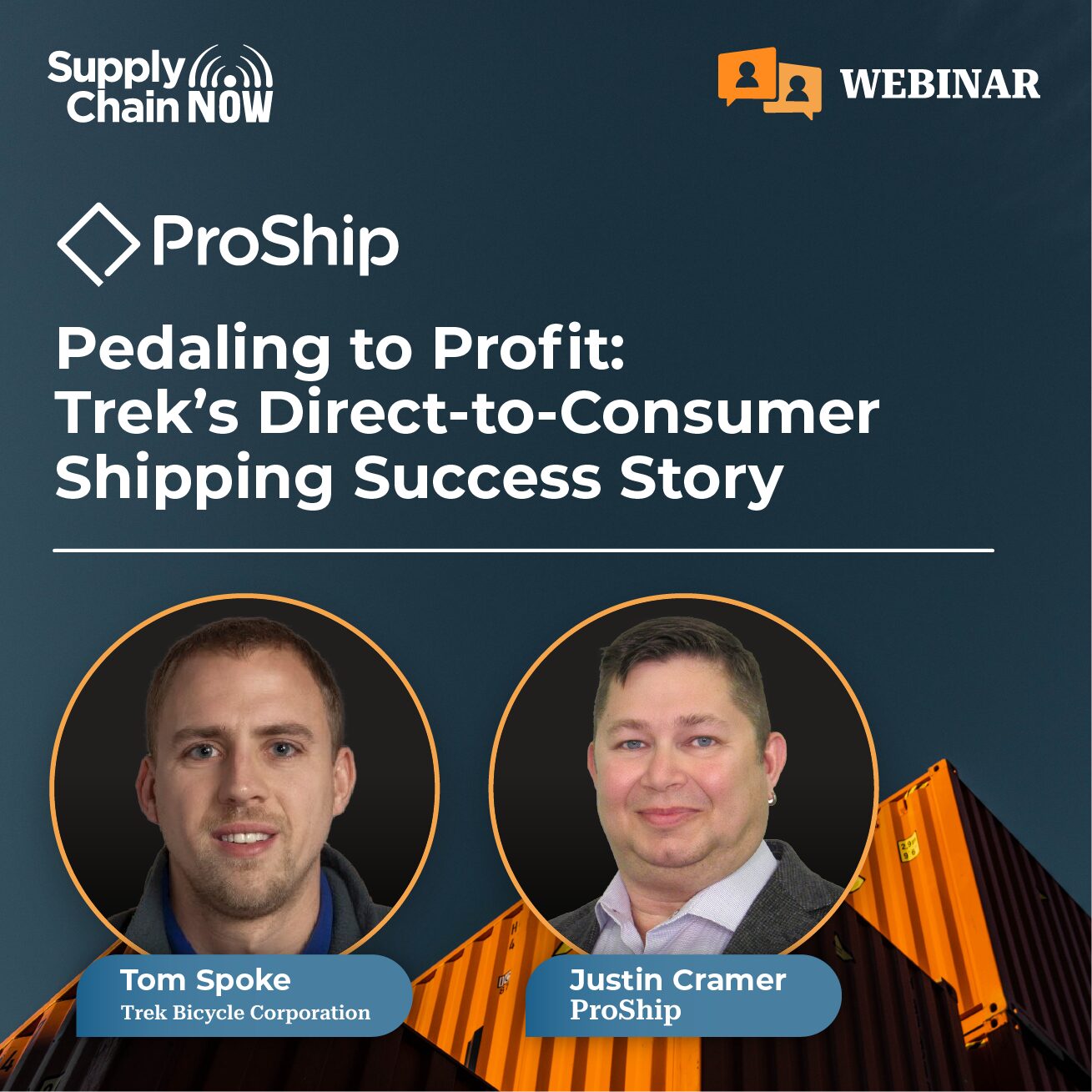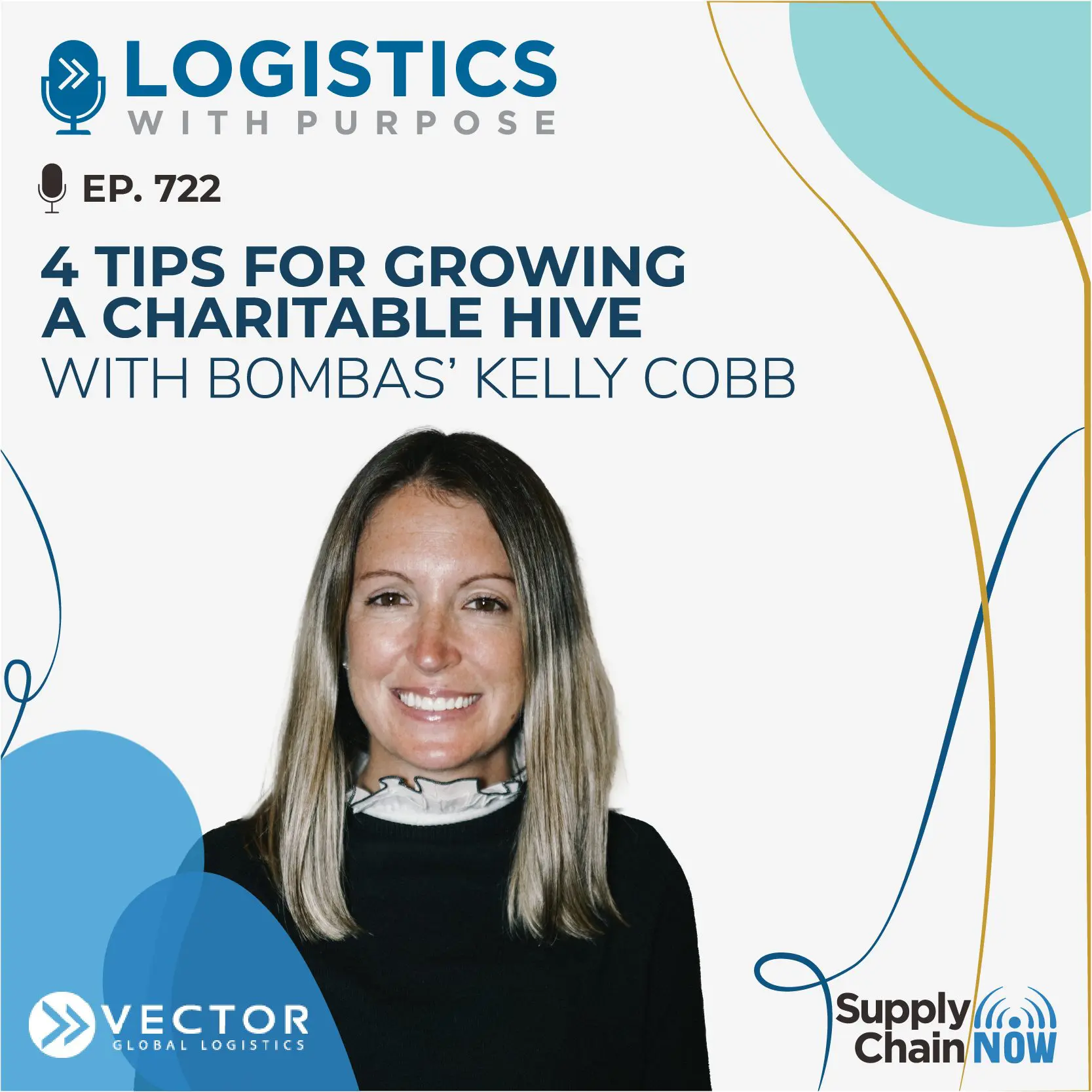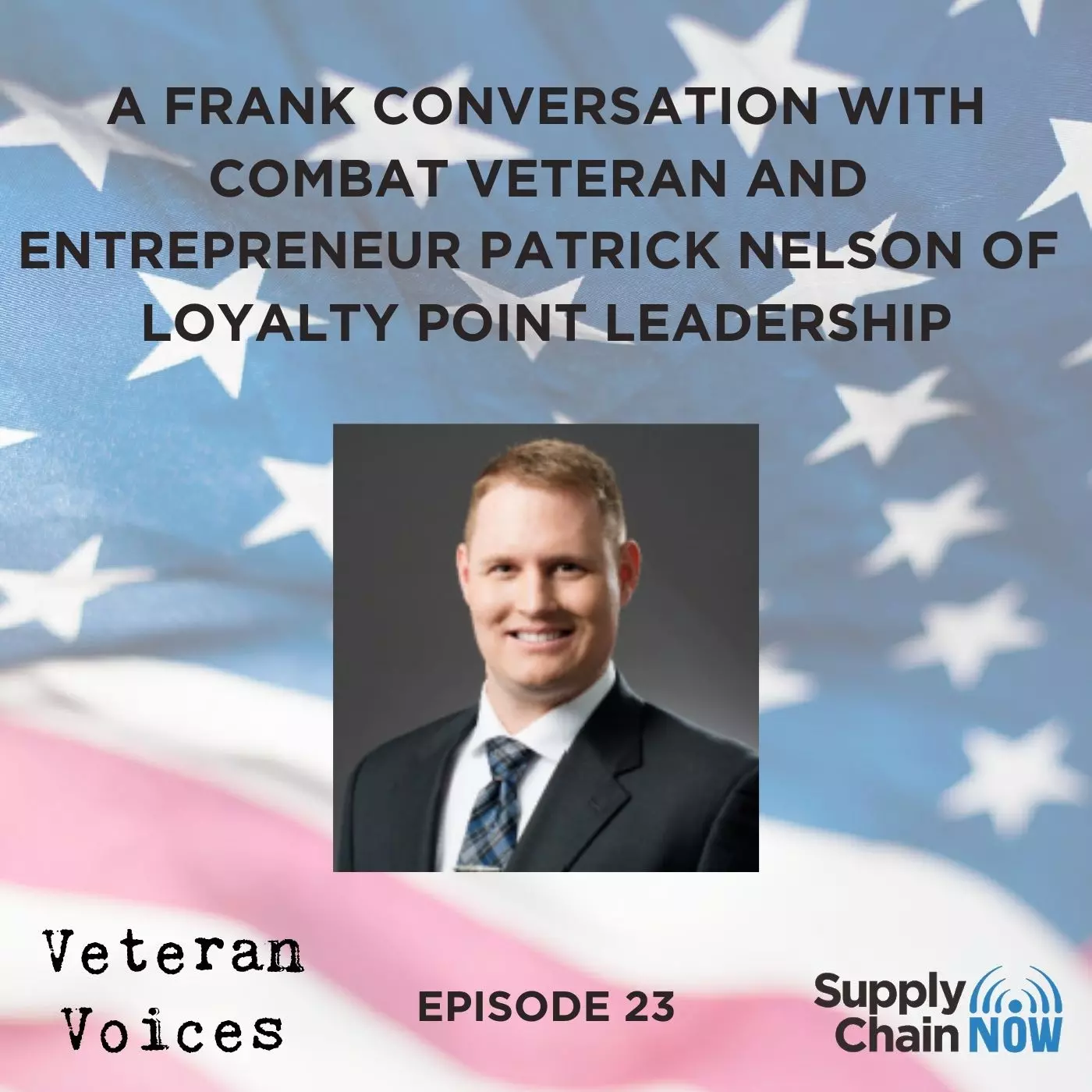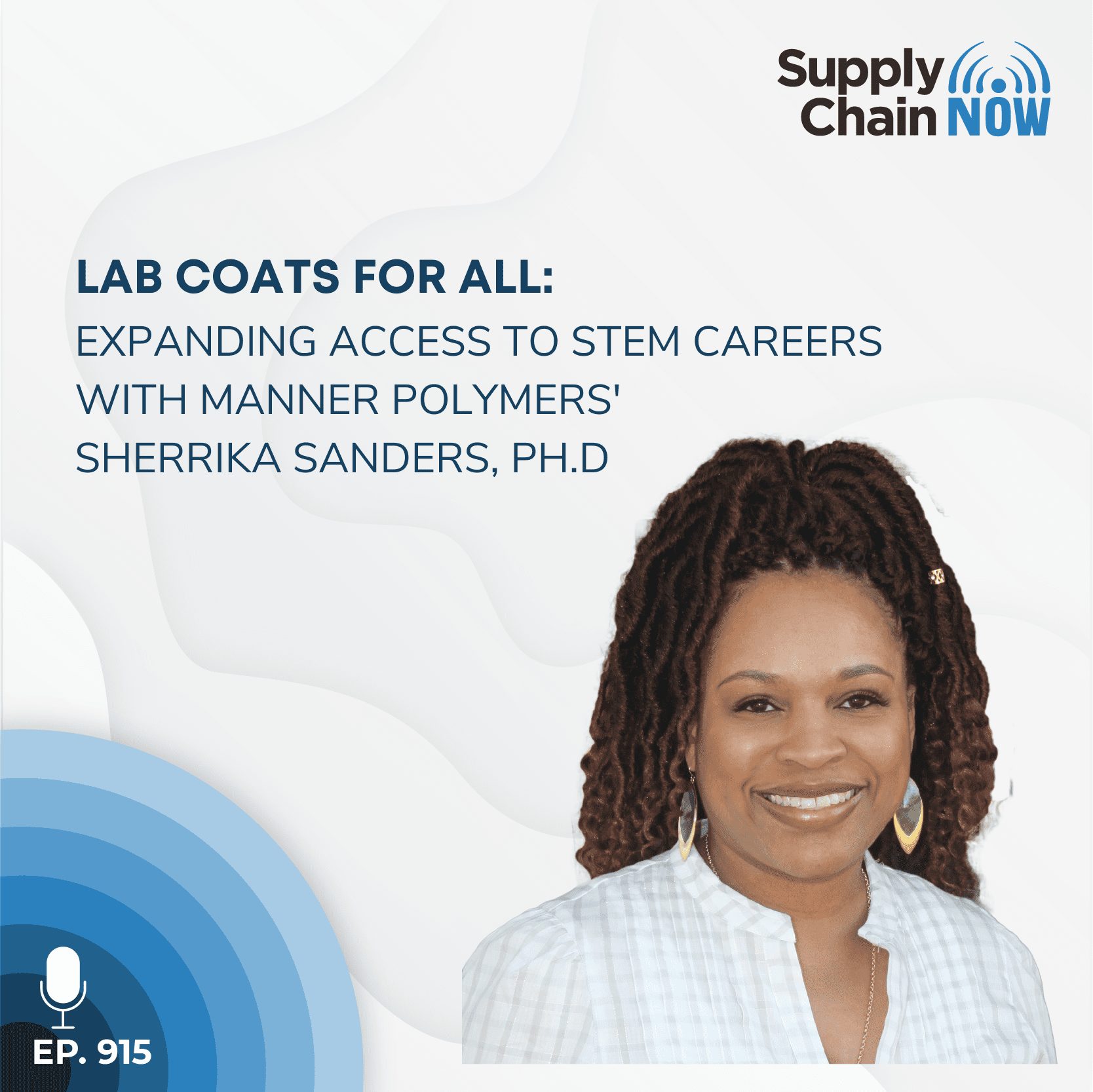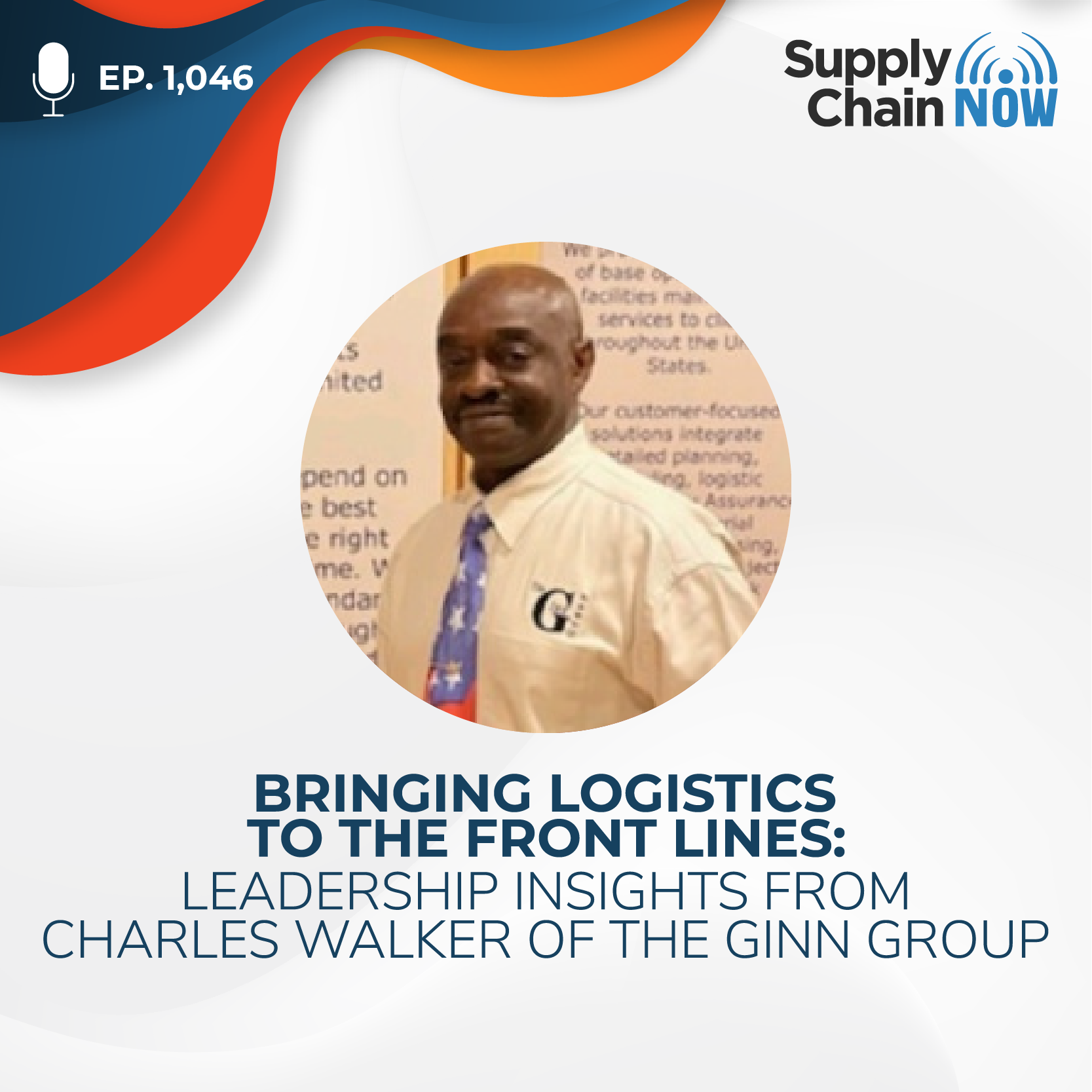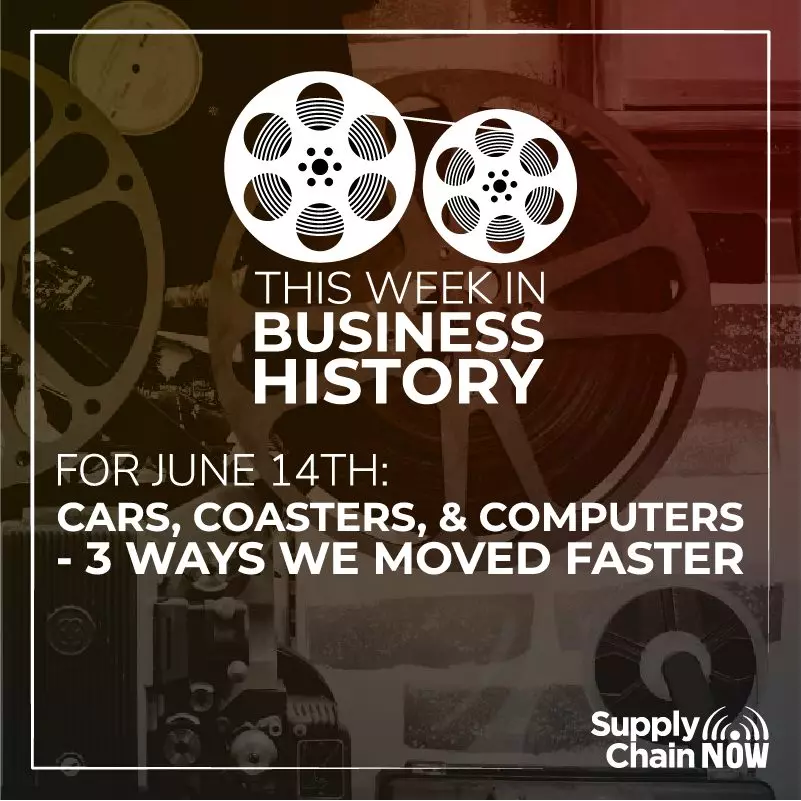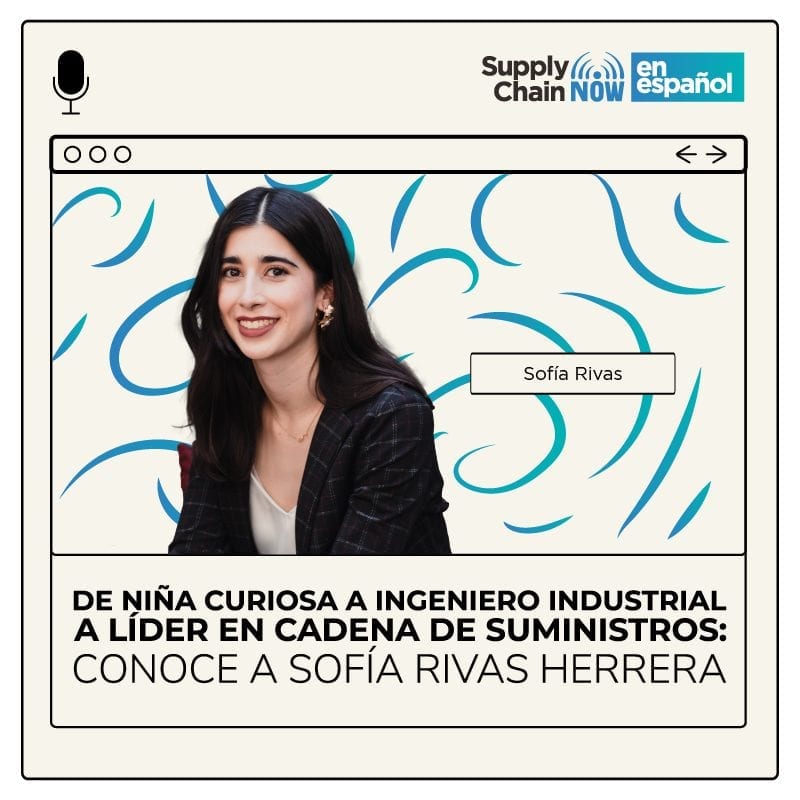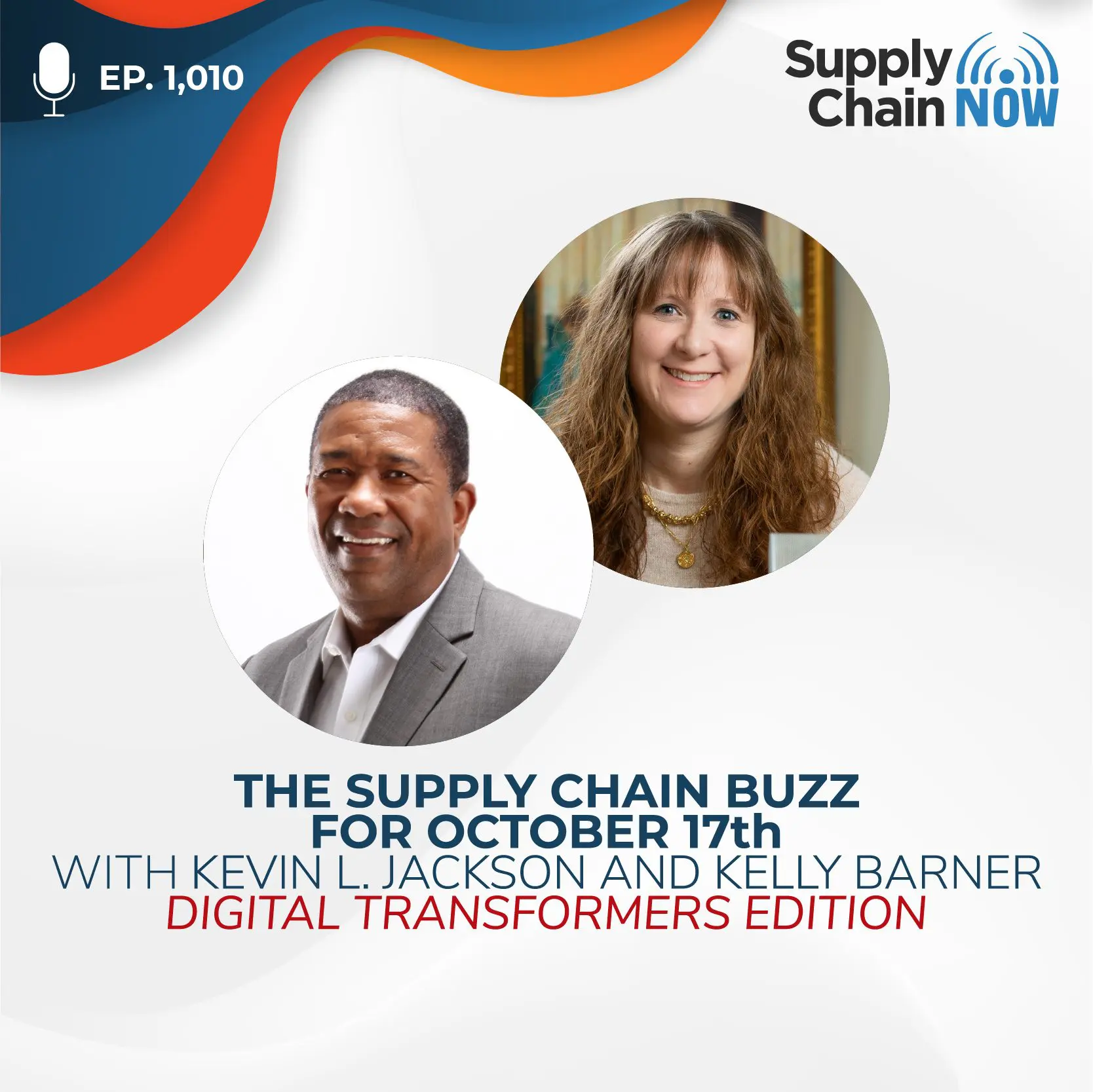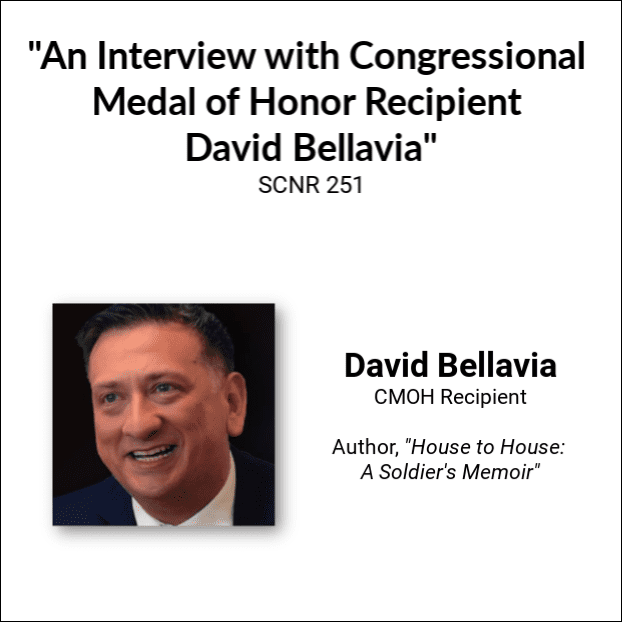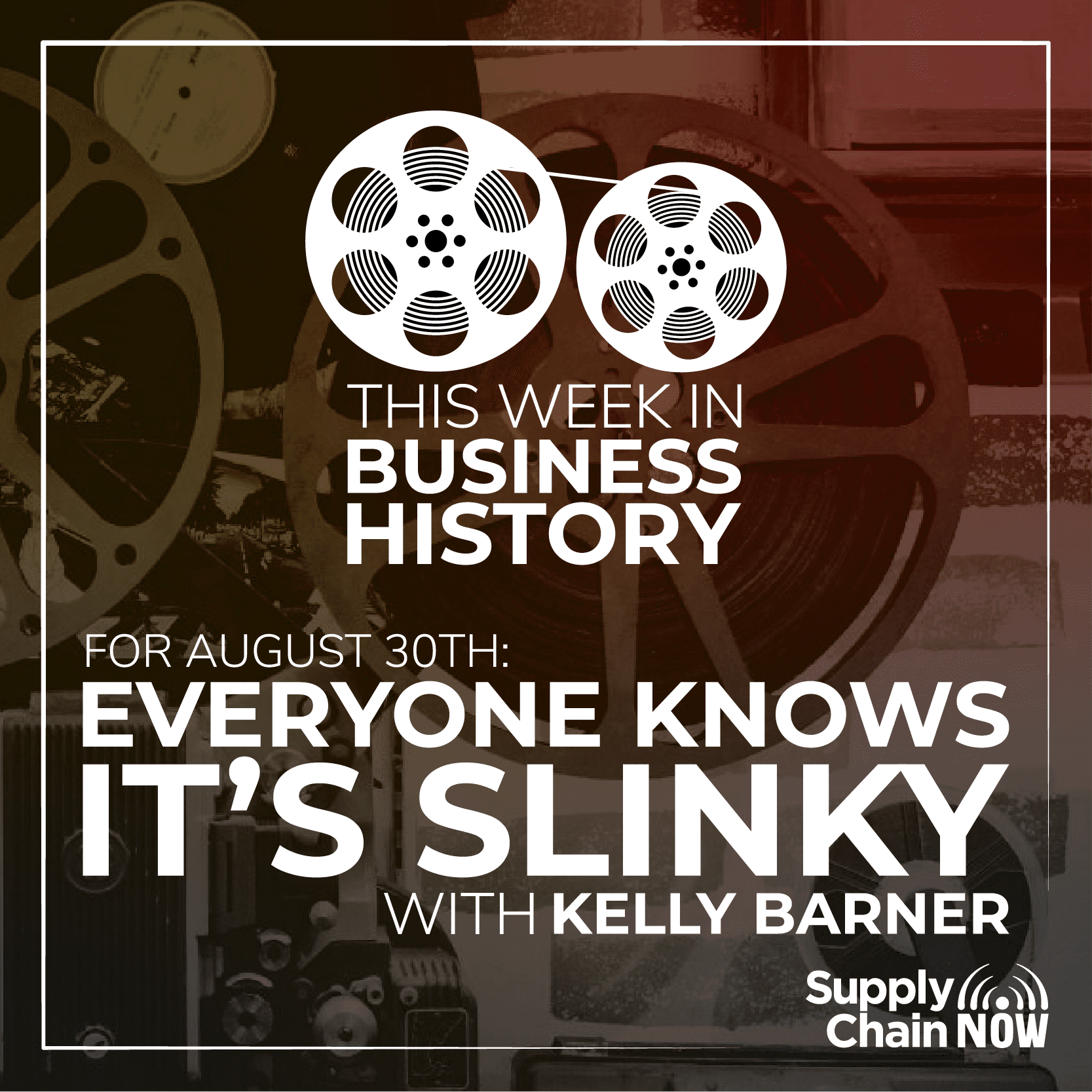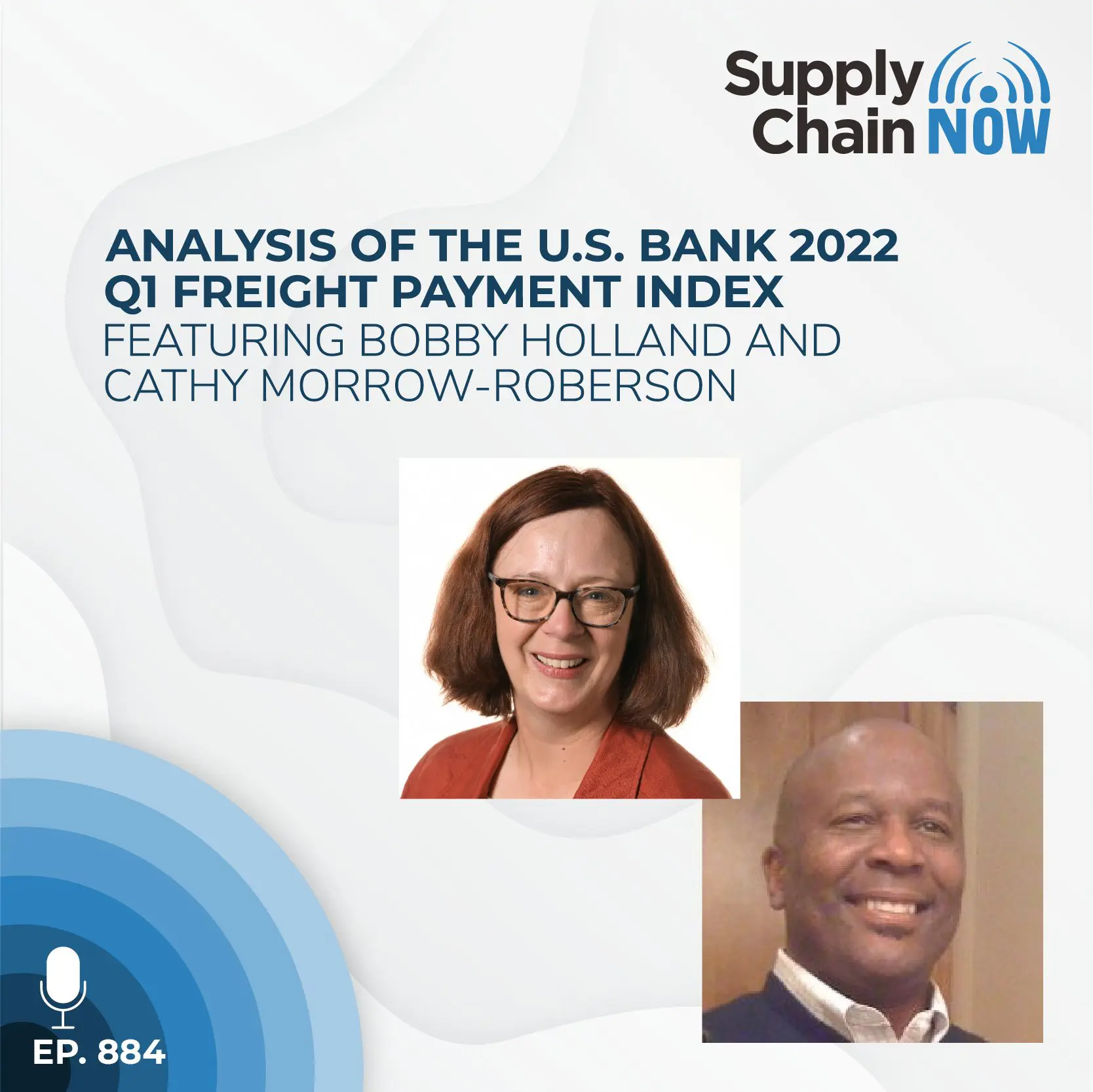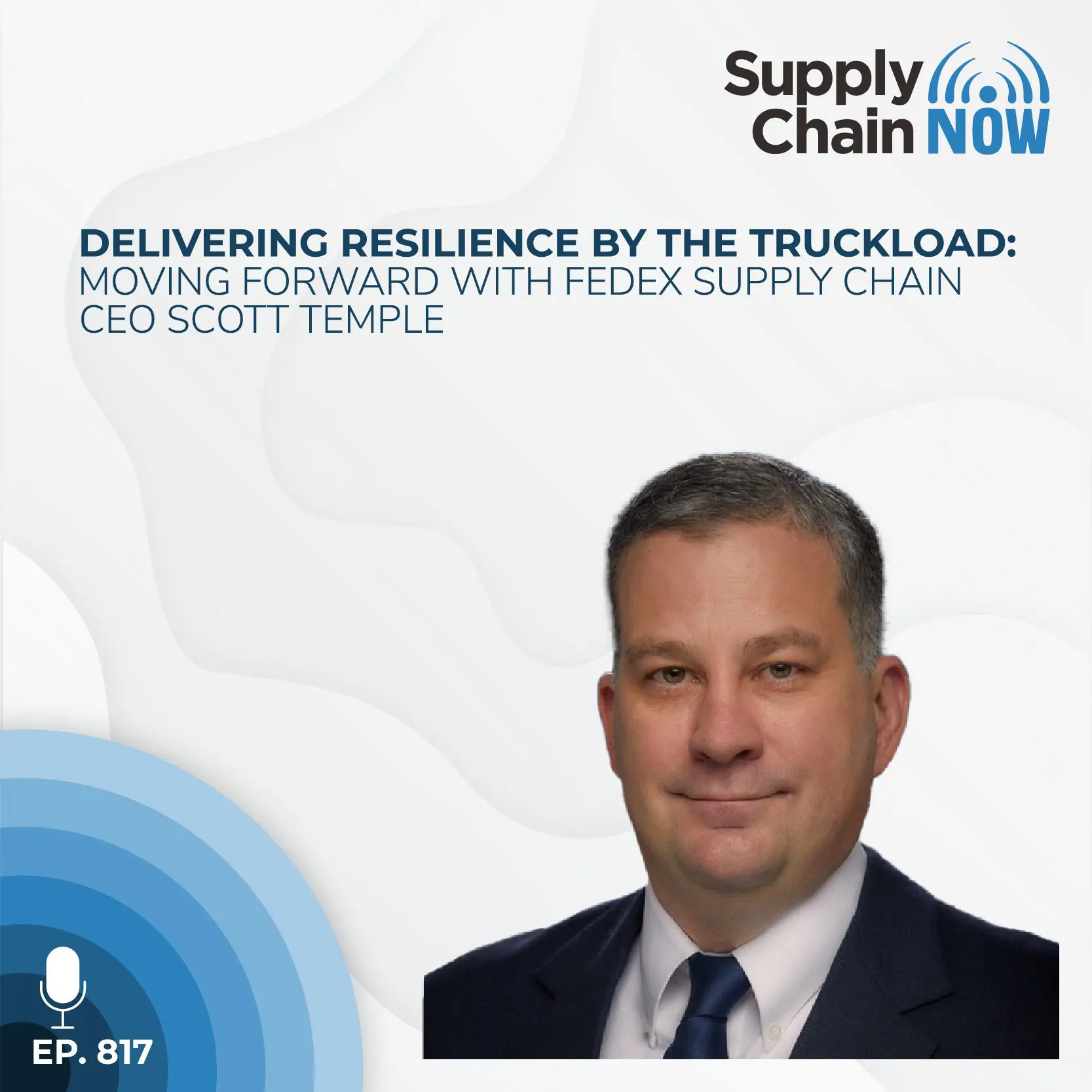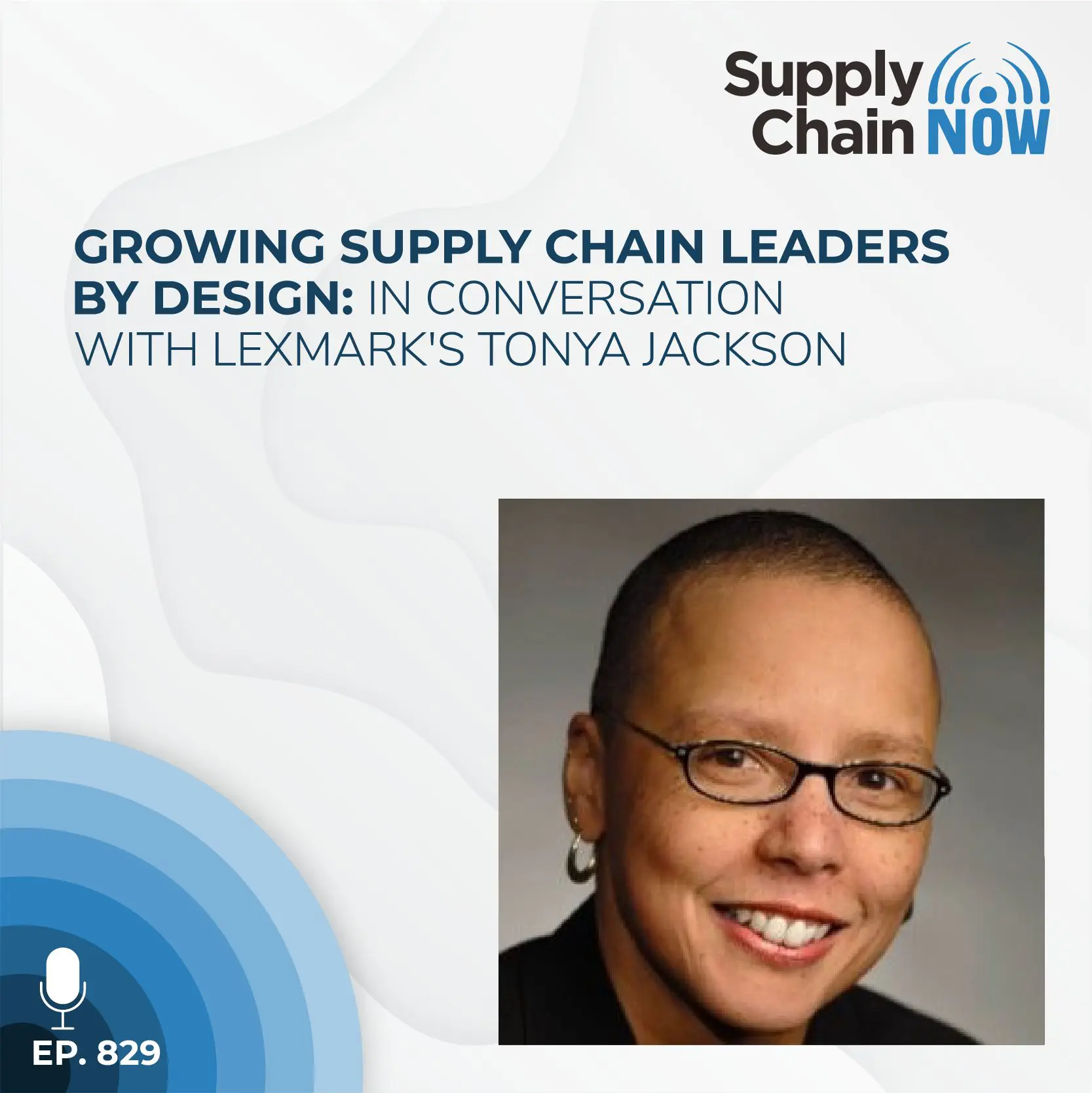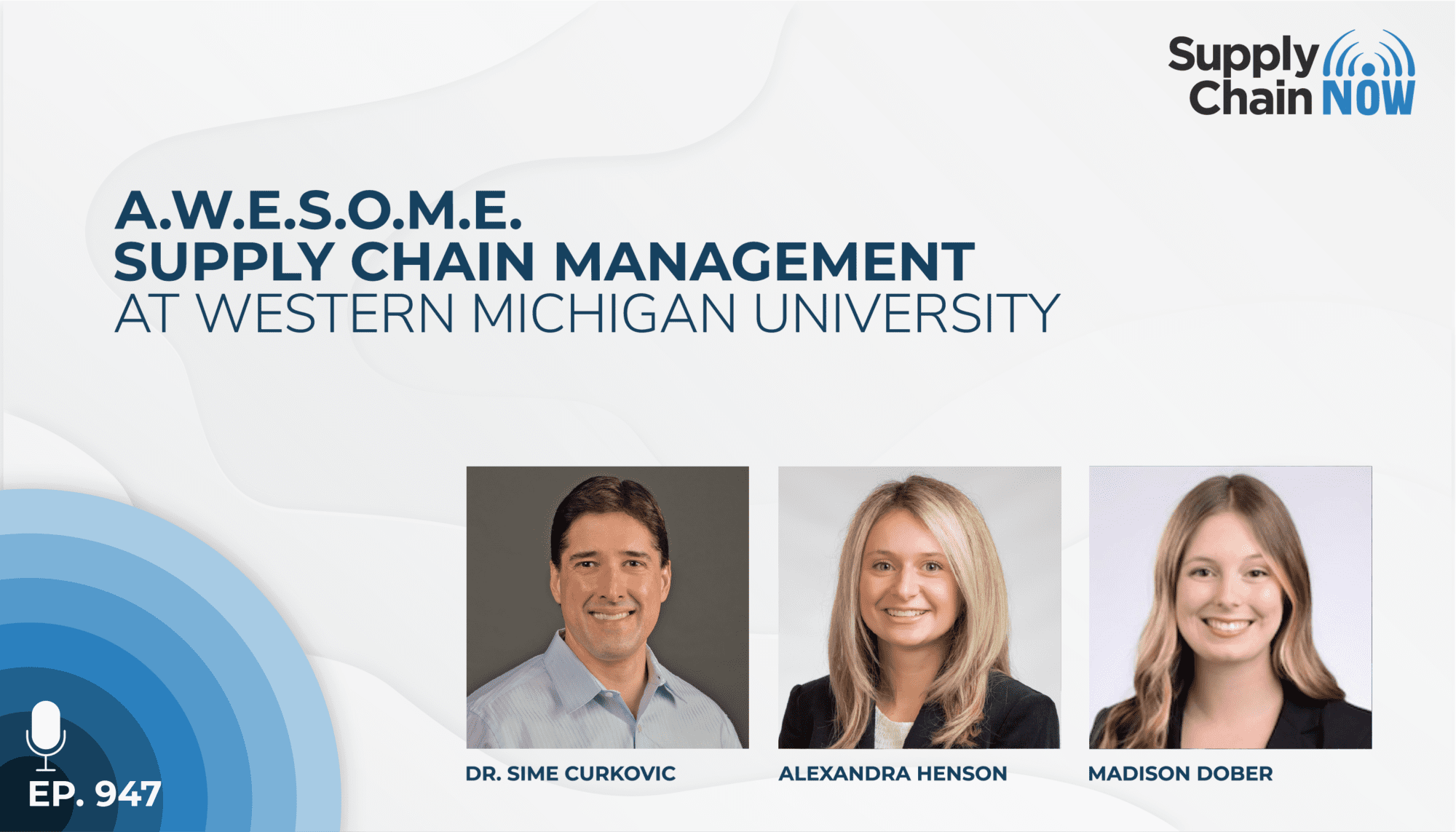
Supply chain leadership is still embracing email and spreadsheets. The good news is we're training our students to make sense out of these spreadsheets. At the end of the day, I think there's a serious technology issue that's causing these [supply chain] disruptions. When I send students into the workplace, they can say, ‘We should be using technology to do things better, faster, and cheaper - and the ROI is phenomenal.’
- Dr. Sime Curkovic, Professor of Supply Chain at Western Michigan University
Episode Summary
With supply chains constantly in the news, many people are making the decision to get college degrees in supply chain management. Once they are accepted to a program, such as the one offered at Western Michigan University, the challenge becomes preparing them to know all of the things they will need to be tactically and strategically effective going forward.
In this Supply Chain Now interview, host Scott Luton is joined by Dr. Sime Curkovic, Professor of Supply Chain at Western Michigan University, and two students: Madison Dober a junior at WMU and Alexandra Henson, a senior.
• Why high school students are more informed about supply chain management than ever before – and eager to enter the field
• How the supply chain management program at Western Michigan University is preparing their students to address today’s challenges head-on
• The mindset and work ethic being demonstrated in today’s supply chain students
Episode Transcript
Intro/Outro (00:00:03):
Welcome to supply chain. Now the voice of global supply chain supply chain now focuses on the best in the business for our worldwide audience, the people, the technologies, the best practices, and today’s critical issues. The challenges and opportunities stay tuned to hear from those making global business happen right here on supply chain now.
Scott Luton (00:00:32):
Hey, good morning, everybody. Scott Luton with you here on supply chain. Now welcome to today’s show. We’ve got a home run episode today as we’re continuing our series of conversations focused on the intriguing now generation, right? Essentially supply chain practitioners that are now entering the industry and already doing big things. So with no further ado, wanna welcome in our esteemed guests here today, starting with Dr. Sime Curkovic professor of supply chain at the award-winning and widely recognize Western Michigan university, uh, Shema, how you doing?
Sime Curkovic (00:01:04):
I’m doing great.
Scott Luton (00:01:05):
Thank you for having me today. You bet. Thanks for your help and appreciate all that you do. Thanks for your help facilitating this conversation here today. You’re joined by two, uh, incredible students and, and again, basically practitioners, right? New practitioners, Madison, Dober a junior at WMU. She’s majoring in integrated supply management and monitoring in business analytics. Madison, how you doing?
Madison Dober (00:01:29):
I’m doing great. I’m excited to be here.
Scott Luton (00:01:31):
We are too. Thanks for taking some time out. And Alexandra Henson is joined also a she’s a senior at WMU and majoring in integrated supply management as well. Minoring in business analytics and general business. Alex, how you doing
Sime Curkovic (00:01:49):
Great, excited to be here as well.
Scott Luton (00:01:51):
We are too, again, as busy as you are clearly, you’re all three of y’all have several full plates. I appreciate y’all carving some time out and sharing your insights and, and POV with our global audience. So, but before we get to clearly we’re all supply chain nerds here. I’m, I’m a proud supply chain nerd. We love talking to craft, right. But let’s get to know y’all better. Uh, so I wanna start with, where did everybody grow up and, and, you know, give us an anecdote, you know, about your upbringing. I wanna start with, uh, Alex, start with you.
Sime Curkovic (00:02:21):
Yeah. So I grew up in Allen park, Michigan. Um, if I hold up my hand, it’s a little odd under, under the thumb. Um, so Allen Park’s trademark is that it’s known for being where the Detroit lions practice. Okay. It’s about 15 minutes south of Detroit now tend to not really care about the Detroit lions, but I’ve always been interested in the automotive industry since the big three happen to be so close to me. Um, I probably know 15 people off the top of my head who work or have worked at four GM Chrysler, including my parents and grandparents really. I grew up going. Yeah. Yeah. It’s pretty big over there.
Scott Luton (00:02:58):
I bet they’ve got some
Sime Curkovic (00:03:00):
I’ve I’ve heard lots of stories. Yes
Scott Luton (00:03:02):
<laugh>.
Sime Curkovic (00:03:04):
Um, I grew up going to Greenfield village with my grandparents learning about Henry Ford. Um, it was normal for me to see cars driving around that had camouflage wraps. You can see what the new vehicle looked like.
Scott Luton (00:03:15):
Oh, okay.
Sime Curkovic (00:03:16):
Um, I grew up going to the auto show and that people would drive near and far, and it was right in my backyard, you know, so I blame living so close to Detroit. Why my tasting cars now is so expensive and via Lincoln navigators been my dream car since I was young. Okay.
Scott Luton (00:03:33):
So, well, I bet acquiring one is just around the corner. If you haven’t already one, one final question for you, Alex Detroit pizza. Mm-hmm <affirmative>. Yeah. Uh, are you a big fan and where, where do you get it? Where do you get your Detroit style pizza?
Sime Curkovic (00:03:47):
Um, I’m a big buddies fan buddies pizza it’s in, uh, Dearborn, Michigan kind of where Ford is. So yeah, I’m a big, big buddies person.
Scott Luton (00:03:56):
All right. So the team at buddies, big shout out clearly, you’re making good quality Detroit style pizza. I’m gonna have to check that out, Alex, welcome. And we’ll have to bring you back for a whole episode on automotive that some of the salt of the earth people, you know, uh, working at critical industry. And it’s really fascinating to see what, you know, how that industry has evolved here, especially in the last couple years. Um, Shema, let’s go to you second. Uh, so where’d you grow up and then, and give us an anecdote or two about your upbringing.
Sime Curkovic (00:04:24):
Okay. Yeah, I grew up in mid-Michigan. So pretend that’s Michigan mid-Michigan. So that’s the, uh, lands scene area. Uh, my parents were born and raised in, uh, Croatia in Eastern Europe and at that time was part of a communist country, uh, run by a dictator. So they basically escaped that and came to America and I was born and raised in America. My single greatest blessing is that that happened for me and to me, but, uh, my dad came to America and low skilled laborer. He wanted know where he could go to find a good paying job. So basically he ended up in Lansing, Michigan at a company called general motors. Uh, he discovered a union called the U a w and a division called Oldsmobile. And it was the automotive capital of the world at the time. And they were making over a million cars a year. Wow. So he basically showed up and filled out an application and I got to grow up in an upper middle class household because of it. So that’s kind of my story in my roots is they came to America for a better life, found it. I was born and raised here and I have everything to be thankful for because of that. So long story short, uh, first generation, uh, American that, uh, is grateful for it.
Scott Luton (00:05:39):
We’re, we’re all very grateful. Appreciate you sharing that. Uh, your parents clearly took a, a big, bold risk in, in making the move, uh, and providing a better opportunity and path forward for their kids. So, um, uh, very special. Uh, one quick question. Um, what did, when you think of any homemade dishes that you grew up with that, uh, maybe kind of ran into family, even what what’s one dish that comes to mind? Shema.
Sime Curkovic (00:06:07):
My parents grew up barefoot in a communist country. So when they came to America, <laugh> they, they, they, they enjoyed America. I grew up in drive-in movie theaters watching Elvis Presley movies because they were obsessed with Elvis. So, uh, cheeseburgers, French fries and pizza, uh, were eating almost every day. Uh, I do remember anytime. Uh, we had special events. We were put an animal on a stick over a fire. So that was kind of old country stuff. We get a LAER of pig and roasted over a fire on a stick and we go to the farm and get it, and it was farm fresh. And I think I picked that up from the old country because you didn’t go to a grocery store in the old country. You went to the farm, got something, put in a stick.
Scott Luton (00:06:47):
I love it. Hey, I look for my invite at one of the next, uh, barbecues at the Kirk household. You got it. Thank you for sharing. And, and by the way, Elvis press, I gotta, haven’t seen that new movie yet. Uh, I’ve heard it’s wonderful. So we’ll maybe check it out soon. Um, okay. Madison, you’re our cleanup hitter today. So tell us about where, where you grew up and give us a anecdotes.
Madison Dober (00:07:09):
Yes, of course. So I too, am Michigan made, I grew up in Metro Detroit in a town, the town called lake Oregon, which is about 45 minutes north of the city. I can say for sure that I am a Michigan girl through and through <laugh>. My parents taught me how to appreciate all the beauty that Michigan has to offer. So whether that was biking, camping, skiing in the upper peninsula to swimming in lake Michigan, or even eating a Coney dog in Detroit, I’m just really grateful to have grown up in such a wonderful state.
Scott Luton (00:07:44):
Okay, man, I, I see all the, the Michigan economic development commercials, they clearly mm-hmm, <affirmative>, they’ve got reaching coast to coast, if not global. Um, yes they are. And I love the Coney dog and I love all the little snippets of Michigan life. You mentioned there. Um, what, um, what about from a music scene or sports scene Madison? What was a, what was a big part of your upbringing in, in one of those regards?
Madison Dober (00:08:12):
Yeah, so every year we would go to a Detroit tigers game. Okay. And we’d eat a lot of hot dogs and ballpark dogs and we’d hang out and go around Detroit, which was really fun for me to do with my family.
Scott Luton (00:08:28):
Love tiger stadium, right?
Madison Dober (00:08:29):
Yes, America park.
Scott Luton (00:08:31):
Okay. Uh, you know, when I first got into baseball, uh, Cecil fuller Cecil fielder was still playing first base with the tigers and I’ll never forget sports center showing one of his home run highlights, and they hit the, literally the roof of tiger stadium and dribble it off the other end. A guy could hit it two miles. Um, alright, well, thank you for sharing Madison. Uh, we’re all gonna, it feels like to our listeners, we’re gonna get, we’re gonna get a bit of a, a, a Michigan education, uh, here today, but, you know, Michigan’s had a big impact as, as they’ve all alluded to, to global business and certainly continues to make a big impact on global business and, and global supply chain. So that’s where we’re going next. So Madison was stick with you, uh, as we go to this next question, I’d love to learn more about, um, when supply chain management first hit your radar. And why did you dive right in?
Madison Dober (00:09:23):
Yeah, so it’s a bit of a funny story, but my parents actually helped me find supply chain so surprise, but they both work in the automotive industry. Um, my dad’s an engineer and my mom works in production. She’s also a WMU supply chain alum, so that’s pretty cool. Um, but I can vividly remember going into my first year of college that summer and my parents and I were talking like, what are some majors? I should pursue some different avenues. I could go down. I knew I was interested in business, but I wasn’t really sure what, and my mom kind of proposed, oh, Maddie, like you should look into supply chain. And I think you’d be really good at it. And I can remember in my head being like, why would I ever wanna do what my mom does? That’s awful. Like I never wanna do that.
Madison Dober (00:10:12):
And then like when I started looking into it, I realized supply chain was actually something that I was really interested in and we can see where I am now. So it’s kind of funny to think about that. I was so disgusted at the time <laugh> of, uh, possibly pursuing that, but after looking into it, I realized that supply chain really intrigues me because it’s never the same. There’s never one answer on how to solve any of these problems that we’re seeing in today’s world. So as we’ve seen the microchip shortage, labor shortages to port backups and all of these things are stemming from a global pandemic, um, it’s just something that all of these events have tested the global supply chain, and it’s forced these supply chain professionals to solve problems on the fly, which is something that I’m really interested in. And I want to be one of those people.
Scott Luton (00:11:07):
So I’m with you Madison. Yeah. Uh, I love the problem solving element, even though the answers keep changing at times. Uh, I love the problem solving element, uh, related to, uh, uh, the industry and, you know, the supply chain global supply chain is uniquely positioned to solve some of the greatest challenges of our time. Uh, you know, so that’s, uh, that’s, I find that to be really inspirational Shema. I gotta ask you, uh Madison’s uh, you know, how she found supply chain management, is that a pretty unique take there? Or do you hear a lot of that from, uh, students, you know, learning from their parents?
Sime Curkovic (00:11:41):
Yeah, well, I, I think what happens is Mo most of these students, aren’t in high school hearing about supply chain management. They, they know they wanna be business majors, but they don’t know what they want their major to be in. And they’ve heard of things like finance and marketing and accounting, right. But they haven’t heard of supply chain management until two years ago. Right. Right. Now, now it’s on the news every five seconds. So now you have a group of high schoolers start to ask, well, what the heck is this supply chain management thing? This, there appears to be a bunch of jobs, good paying jobs with enormous amounts of advancement opportunities associated with it. So the, uh, the buzz has just, uh, accelerated and I used to have to go into high schools and explain to them what this is now, when I talk to high schoolers, they in general understand what it is.
Scott Luton (00:12:29):
So that’s been, you know, you think of the silver lining and there is a silver lining related to the last couple years. Uh, you know, there’s good news if you go looking for it. But certainly part of that is, um, the focus and the visibility and the amplification of all that own global supply chain and, and how it’s definitely inspiring the next wave of top talent to come in industry like these two here. So thank you for sharing Shema. Uh, and I’m gonna circle back on where you got your start in just a second, but, but, uh, Alex, I’d love for you to tell us how you found out about supply chain and what, you know, what’s your why for choosing it.
Sime Curkovic (00:13:04):
Yeah. So my senior year of high school rolled around and I had no idea what I wanted to major in or where I wanted to go to school. But luckily I have some great parents who took me on a parade of college tours around Michigan. There’s a lot of places to go in Michigan. Sure. And I had almost toured all Michigan schools, but Western, um, for some reason I did not want a tour Western. I don’t know why, but my mom decided to schedule a tour there without me knowing. Um, I remember I begged her. I’m like, I don’t wanna go, I don’t wanna go, but she put me in the car and made me go. And for that, I’m very grateful. Um, as cliche as it sounds, as soon as I stepped foot on that campus, I knew that’s where I was meant to be really. Um, yeah. Yeah.
Scott Luton (00:13:47):
Was it the, it was kinda the, the, the aesthetics, was it the people? Was it the, the program? A little bit of everything.
Sime Curkovic (00:13:53):
Yeah. I wanna give a big hats off to my tour guide. I think that gives a great, um, I had just a great tour guide. He made it feel like it was home. Um, it was very nature. The aesthetic of it, I, I don’t know. It was just a girl coming from Detroit and I saw a bunch of trees and <laugh>, I see deers walking around. I’m like, wow, like, this is pretty,
Scott Luton (00:14:15):
It was meant
Sime Curkovic (00:14:16):
To be, but yeah. And then I came back to school that weekend, you know, I’m in high school. I wore my Wu crew neck. I approached in the bookstore earlier boasting about my weekend in Kalamazoo. And one of my friends ended up stopping me and telling me that his brother just recently graduated from Western and he loved it. And I’m like, oh, you know, what do you major in? And he told me supply chain. I probably looked at him like he had six eyes. Like I’m like, what is that? So later that day, I remember I pulled out my laptop. I did some research. I talked to my dad and I’m like, I think I wanna major in this. And I ended up declaring it my major and I never looked back. Mm. So I’d say, what was my why? And what really drew me to, it was just the never ending opportunity supply chain offered. Um, it was a field that was constantly growing and encompass skills, like Maddie said, like problem solving and leadership, which are two things I thrived on doing. And that’s ended up why I am where I’m at now. So,
Scott Luton (00:15:16):
Wow. Well, I tell you, I’m tickled that both of y’all are, uh, gonna be making your stamp and making industry better. We need, we need more Alex’s and Madison’s coming in and, and leading the industry to, to, you know, what’s next. Um, so Shima on that note, I’d love to, I, I can’t wait to hear your, you know, where you got your start in supply chain management and a as a kind of a two part question, um, why you love sharing that, uh, the, the, the practice and, and, um, uh, the craft with, with all the students.
Sime Curkovic (00:15:50):
Yeah. And by the way, those are amazing stories that they just told us. Uh, life’s all about timing and great parenting and all those things. And man, they, they, they covered it all. That was exciting and interesting to hear. Uh, I, I grew up in a factory town and this factory town had lots of great pain factory jobs. I, I thought I was gonna be a factory worker, uh, cuz I could live an upper middle class lifestyle doing so. And I loved how my dad went to work. And then when he came home, he left work at work. He never lost any sleep over work. He had job security over time. And like I said, uh, whether I realized it or not, I was in this upper middle class lifestyle and I aspired to that for myself. Right then as I got older and older, my dad and I started to realize, wait a second, oddly enough, this supply chain management thing and outsourcing might create a situation where I might not have the same opportunity that my dad had of making 25 bucks an hour and 50 bucks an hour with benefits and working 60, 70 hours a week at time and a half and double time.
Sime Curkovic (00:16:51):
This was back in the eighties and nineties. So it was an amazing lifestyle. And my dad and I started to pick up on, wait a second, moving forward. This might not be an opportunity for, for me. So then we started to think about college. So I, I, I basically went to college and started co-oping at general motors, which at the time was the largest company on the planet. And while I was there, I worked in materials management. It was highly vertically integrated, which means GM did everything itself from beginning to end. It was very tactical, very tactical right stuff at the right place at the right time and the right communities. And I loved it. I loved problem solving. I loved putting out fires. It felt very hands on the Workday went by very fast while I was co-oping at general motors, something started to happen.
Sime Curkovic (00:17:35):
So we’re in the early nineties here, right? It started to become a little more strategic companies started outsourcing more supply chain management turned into a discipline. And as we shifted from being highly vertically integrated to outsourcing more and more of your material needs, this supply chain thing started to evolve. Mm. So I graduated and I was in this thing called supply chain management, which was still a little tactical, still highly vertically integrated, but things were changing and evolving. My is my issue at the time was, uh, I’m a generation exert and the baby boomers were the biggest part of the workforce and they were in their thirties and forties demographically speaking. How was I gonna catch up to those folks that had 10, 20 years work experience on me? How am I gonna climb up the corporate ladder? So I just looked at corporate America and industry in general is not being very opportunistic for me, but I loved this thing evolving called supply chain management.
Sime Curkovic (00:18:34):
So I basically said like, what can I do? Uh, that’s still in the field. So I stumbled across academia and graduate school and a doctoral program. And as it turns out, it, it was my vocation all along. So the, the reason I left industry was because of demographics and it working against me. But I didn’t wanna let go of that passion for supply chain management. So I applied to Michigan state university, got my doctorate, uh, straight out school. I interviewed out Western. I loved that they had an undergraduate degree in supply chain management and I’d be teaching it to students that were majoring in it. Mm. So they’re majoring in the material that I’m teaching, which makes my job way more interesting.
Scott Luton (00:19:14):
So, so really quick, uh, as we get into your teaching and why you love teaching, I got a pulse Madison, Alex, so I, uh, I’m, I’m so glad to meet all three of y’all cause I haven’t met any, any y’all in person or I guess in the 2022 version of person, man, the passion coming from Shema is this, does this carry right over into the classroom? Madison and Alex?
Madison Dober (00:19:38):
Yes, it definitely does. I remember the first class I took with Shima and I was so excited about supply chain because you can see his passion pour out into all of his lectures and all the emails that he sends and he’s just very passionate and he wants everyone else to learn it and find that passion as well.
Scott Luton (00:19:59):
I love it. I can definitely see that Alex.
Alexandra Henson (00:20:02):
Yeah, definitely. You’ll hear those stories at Western of many people that found supply chain through Shemas YouTube videos and stuff like that. So we’ve had, yeah, definitely had some great success with that.
Scott Luton (00:20:14):
Wow. Kudos. I I’ll tell you when I look back at, uh, any of my learning, formal learning and those professors, especially in this case, you know, Shemas done it, you know, he’s been there and done it now. He teaches it. You know, those folks that are passionate about what they’re sharing and, and put their students interest first and help them find their own passion. That’s what I’m picking up here about, uh, Shemas approach, but Shima. Uh, and I, I bet it’s, it is, um, to hear Madison and Alex talk about you. Like they just shared, I bet that’s gotta be a highlight, but, but what else, why do you love teaching supply chain management so much?
Sime Curkovic (00:20:51):
Well, it’s, it’s so opportunistic and you know, my parents came here for a better life and they found it. Uh, I, I want, I want every single one of my students to live the American dream. Mm. And I’m not gonna say that it’s getting harder, harder to live the American dream it’s alive and well, but there’s less room for error. My, my dad came here and he didn’t finish high school. My mom didn’t make it past the eighth grade. He fell out an application, stuck parts together, and it was an upper, had an upper middle class lifestyle. Tho those days that are behind us, partly because of the discipline I’m within right supply chain management. So the opportunity to help students work hard and make great decisions and live the American dream is an enormous amount of job set inspection. For me, it’s almost like me giving back to the country.
Sime Curkovic (00:21:40):
That’s giving me so much, but I’m not gonna like sugar coat it. If you make bad decisions are lazy. Uh, it is ruthless out there. It’s very competitive. But if you make great decisions and you have a mentor and you can get good advice from someone, uh, it’s alive and well. And in particular for these two young ladies, like I said, demographically speaking largest segment of America’s workforce is leaving industry. They’re gonna have opportunities ahead of them that I couldn’t have dreamed of when I was their age, just from a demographic standpoint. So I, I think again, it’s back to the opportunity to transform lives by saying, and doing the right thing. And a lot of, they just need to hear it a few times for it to register. Cause I think a lot of ’em don’t understand the opportunity that’s set hand. Mm.
Scott Luton (00:22:23):
Uh, I, I bet you get a lot of, uh, satisfaction. I’ve seen the light bulb that proverbial light bulb, uh, you know, turn off or turn on as it were. Uh, and as folks really it dawns on them, the opportunity that, that that’s there for the taking you do the work, get a mentor, you know, you, uh, make good decisions, all that good stuff. Um, okay. So I wanna circle back to Madison. Uh, you know, we’ve kinda looked back a little bit, um, you know, at each of all three of your journeys, um, I wanna kind of bring it forward to where we are today, kind of the current state. So Matt starting with Madison, what’s a couple topics that you’re tracking more than others in global supply chain right now.
Madison Dober (00:23:00):
Yes. So there’s plenty, but I would say the two that are most prevalent to me right now would be first the labor shortage. And then also looking at the semiconductor shortage over the past two years. So in labor, we’re seeing that in every industry, whether that’s in a restaurant or whether that’s, I saw an article the other day that they don’t have enough lifeguards to open pools, um, whether that’s material handling workers, anything like that, it’s causing big disruptions in the supply chain because no one’s able to get work done if you don’t have enough people to do it. Right. So whether that’s, you don’t have a fork truck driver to pick up material, you will not be able to get as much production out that day. So I found that very interesting to follow and seeing like how people are trying to combat this, maybe that’s with, uh, using robots or new technology to try to like relieve some of those jobs, to still find such efficiency.
Madison Dober (00:23:59):
And then the semiconductor shortage. I find very interesting. Uh, we know we’ve seen that through start through COVID, as people started buying more electronics and cars and how production went down, but demand went up. So seeing that really play a role and it’s hit the automotive industry very hard as I’m sure most of us have seen on the news. Um, but I’ve found it interesting to see how companies are finding ways to get around this so they can still optimize, uh, how their company is producing. So for example, the build shy program that GM implemented, I’ve found that really interesting, um, to see over the past year or so, and then play that into roles. So I think those are just some things that I definitely keep up on more than others.
Scott Luton (00:24:50):
I’m, I’m intrigued by both of those, uh, on the semiconductor thing. It’s amazing. It’s been a while since I saw the reports, but you know, big automotive manufacturers have been renting, you know, big tracks to park cars until they get that one missing piece. Right. In fact, it prompted my daughter as we were watching. Uh, the same news report is about a year, maybe year and a half ago. She’s 13 now. And she’s like, dad, why can’t they just make cars? Like I used to without the semiconductor chip. So, you know what, that’s a, that’s a great question. You know, great question. Um, anyway, uh, let’s go to Alex, Alex, tell us a couple things that you’re tracking more than others right now in global supply chain.
Alexandra Henson (00:25:28):
Yeah. I’m gonna head on two shortages too, obviously very prevalent in the news right now, but one being the transportation labor shortage, like Mattia kind of mentioned, um, I was recently a logistics intern at jam Smucker company, and I noticed this heavily, um, you know, you don’t really know how bad it is until you’re doing it. And truck drivers are the backbone of America. And no one really understood that until we didn’t have enough truck drivers. Right. So that one to me is something that I’ve been tracking pretty recently. And another one is something that’s pretty near and dear to my heart. Um, SRA, the SRA shortage that’s been happening. I know we like food on here, so, but I am a sriracha lover and I noticed each week I’m going to the grocery store and the shelf is empty. And, you know, I had to do some research on why this is happening and there’s a drought right now happening in Mexico. That’s causing this to happen and it’s, it’s affecting many other things too. So it’s pretty interesting. Just how even weather’s throwing a wrench into these supply chain plans, you know, we, we can’t make it rain. Right. Which, which can’t put food on the shelves. So
Scott Luton (00:26:38):
Not yet though, at least not yet. Right? Yeah. Uh, Hey, I’m with you. I’m, I’m a big sriracha fan, especially in my Vietnamese P right. I love it. That’s one of my be favorite combinations. If I lose Tabasco and sriracha, I might lose my mind. So I’m, I’m gonna keep praying for that, Alex, um, Shima, uh, here in what Madison’s got our finger on the pulse of and, and Alex as well. Uh, what about you? What, whether something they mentioned or, or something beyond, what are you tracking right now?
Sime Curkovic (00:27:08):
Well, pre COVID, I was obsessed with, uh, big data analytics kind of stuff, right? Uh, I wanted to make sure that when my students went into the workforce, I knew they were gonna get dumped with gigantic amounts of data that they had to make sense of and then make sense of it in a way that managers can make better decisions. So that’s why they’re both minoring in business data analytics, right? Uh, they, they can take giant spreadsheets and make sense out of it. They, they can turn it into visual tools using Tableau one power BI and predictive analytics and Python. So I think we’ve done a great job of, uh, preparing our students to be data scientists in this time period of industry 4.0, but what happened was, uh, COVID happened. And I’m like, okay, a lot of disruptions, you know, both ladies basically talked about supply chain disruptions.
Sime Curkovic (00:27:58):
If our students are such great data scientists, why are there so many disruptions in the supply chain? We’ve heard all of the reasons, right? Demand X seeds supply, the supply chains are too tight. Cetera. I I’ve got anecdotal examples, and this is what I’m tracking right now. I think the root, not the root cause, but a problem with a lot of the disruptions is supply chain professionally. They’re just making lots of mistakes. They’re just making a lot of mistakes. They’re buried, they’re drowning, they’re stressed out. Uh, they’re their job responsibilities are actually very broad in scope. So what I’m tracking right now is I firmly believe that supply chain management in general suffers from a lack of technology, supply chain professionals are still the, the two major forms of technology in the field are email and giant spreadsheets. Yes. It’s like it’s 20, 22. It’s like, come on color, coded spreadsheets and email.
Sime Curkovic (00:28:50):
So what I’m trying to figure out is, okay, I think a lot of the mistakes are causing these disruptions and a lot of the mistakes. If you look at the root cause, it’s that, there’s not a lot of technology in this space. It’s almost like Silicon valley. Didn’t see this trillion dollar opportunity or there’s technology out there that we don’t understand. It’s not being sold very well, cetera, et cetera. At the end of the day, I think it’s a leadership issue in supply chain management and how leadership is still embracing email and spreadsheets. The good news is we’re training our students to make sense out of these spreadsheets. At the end of the day. I think there’s a serious technology issue that’s causing these disruptions and I’m trying to make sense of it so that, uh, moving forward, when I send students into the workplace, they can say, we should be using this technology, uh, to do things better, faster, and cheaper. And the ROI is phenomenal.
Scott Luton (00:29:39):
Uh, um, Shema, do you think, it seems like to me, that in the last few years, especially as big companies are more, they’re willing to embrace, uh, startup companies and startup platforms and startup technologies. And so there’s, there’s a, a bigger business opportunity, uh, and new and creative solutions. Do you feel, and, and from your research, do you see, uh, technology making stronger gains to fix some of these, these, these things you point out
Sime Curkovic (00:30:06):
Yeah, it’s it’s happening, but there are issues on both sides of it. Like a lot of these startups, they don’t do a good job of selling the capabilities and selling the ROI. You know, they’ll, they’ll present something and really a compliment needs one 10th of its capabilities, but they’re charging full sticker price. It’s the host of issues that the end of the day, what I’m seeing is everyone’s so busy and stressed out and drowning. They don’t have time to even look at the technology, get trained in technology and the technology might only help them with one 10th of their job. Right? Well, I, I think until leadership at the highest levels like executive directors and VPs say, look, we’re not doing this manually. We’re not doing this on paper. We’re not doing this from color coded spreadsheets to get updated once a month. Right. We’re going to embrace automation. And until you get it from the top, the people at the bottom, I just don’t see
Scott Luton (00:30:56):
What’re
Sime Curkovic (00:30:56):
Gonna suffer. Yeah. I think, I think we need stronger vision from the top. And I see that lacking based on anecdotal examples.
Scott Luton (00:31:03):
I appreciate that. Uh, and you know, uh, lots of third parties, reputable firms are reporting that you, you mentioned the burnout, there’s lots of folks leaving, uh, the supply chain industry because of the, of the, the heart, the heartburn and, and the stress, especially, you know, cause it hasn’t gone anywhere on these last couple years. So I appreciate you sharing that Shima, uh, moving to good news though. Uh, you know, cause what Western Michigan university is doing home with the, the, the Broncos, uh, is, you know, if you’re gonna lose folks for a lot of the right, you know, wrong reasons and, and things that we’re still trying to fix on the other side of the talent pipeline. And, uh, we’ve gotta, you know, double down on making sure folks are aware and ready to jump on the opportunity that is Apache management, of course, Wu as cited by Gartner and many other, um, uh, prestigious, um, groups have recognized and ranked WMU amongst the, the top universities across the country, across the world.
Scott Luton (00:32:03):
Uh, the recent rankings came out. Wu was a, um, was on the top 25 list. I think they, they were in the top 20. Uh, but as I dove in a little deeper Shema and Madison and Alex, that’s nothing new for Western Michigan university there that, that good old song up where we belong. I can’t remember who’s sang that song, but that’s like Wu theme song when it comes to, you know, making waves and supply chains. So all of that to say, shaman, and I’m gonna get Alex and Madison away into what makes Western Michigan university a special place for top performing supply chain management students.
Sime Curkovic (00:32:39):
Uh, well, I, I, I think what we’ve done is we have faculty that talk to managers daily. So that’s good. We we’re asking the managers like, what are we doing well and what are we not doing well over a period of time, our program is only 25 years old. We have a lot of alumni out there that we stay close to. They come back and they tell us, man, you guys nailed it on this part, but I was a little short on this skill set. So I think informally, we talk to people in the real world every day, formally we have an industry council that meets once a semester and we get in a room with 60 managers from like 30 different industries. And we have quest, we ask questions like, what are we doing? Well, what are we gotta get ready for? What’s around the corner that we have to be prepared for.
Sime Curkovic (00:33:16):
So what’s happened over a period of time. I think this is what we’ve done better than other programs. If you’ll sure managers have said this, they said, we want your students to be pretty good at a bunch of different things, but they don’t have to barely be an expert on one specific thing. The problem with that is man, you have to really pack it all in. So when you major in supply chain management at other schools, you’re probably taking around seven classes. If you major in supply chain management at our school, you’re probably taking 14. Right? So, so what I, the way I look at it is we’re making our students a Jack of all trades without being an expert in any single one area. So the managers are telling us, we want them to be really good at data science. We want them to be kind of like lawyers, cause they’re gonna be involved in contract management. We want them to understand supply chain finance. We want them to be able to talk to engineers. So that engineers respect them.
Scott Luton (00:34:10):
That’s really important. Uh, yeah. That’s such a great, um, skill to add to the list, uh, Shima.
Sime Curkovic (00:34:16):
Yeah. If you work for a company that designs and builds stuff, you’re gonna have engineers at your company. Right. Right. And if you outsource stuff to suppliers that design and build stuff, you’re gonna have to talk to them on technical issues. So yeah. Managers told us, told us really cool if they took some engineering classes so they could interact with engineers on technical issues. They’re like, okay, there’s an extra three classes. We’ll, we’ll build it in. We’ll pack it in. We’ll pack it in. And the, the stuff that’s come along lately is, uh, negotiation. How could you work in supply chain management without formal training and negotiation? Another one is problem solving a three, a clean six Sigma. Uh, the other one that’s come along is indirect procurement. Like we have jobs in indirect procurement. Could you teach ’em about that? So I think what’s happened is we keep packing it in and packing it in. And then the data science part, what we’re ready to explode here. And at WMU, if you don’t know what you wanna major in, like if you don’t pick supply chain, your sophomore junior year, you’re automatically delaying graduation. The good news is if you’re a little proactive and even if you delay graduation a little bit, you Excel in the workplace. Cause you have all of these skill sets that maybe students from other programs don’t have
Scott Luton (00:35:21):
Love it, very holistic, uh, very holistic and, and can make an impact in so many different places of the enterprise based on the curriculum. Uh, alright, so I’m gonna circle back Shema in terms of, um, one of your favorite moments in classroom, but before I go there, Madison and Alex and, and Alex will start with you here based on what Shema just shared, based on your experience, you know, what, what’s your take on? What makes WMU such a, a great place for supply chain, uh, students?
Alexandra Henson (00:35:49):
Yeah. So to me it’s such a special place because you know, it has that big school feel, but it still remains to be small. Um, when I went away to school, I did not wanna just be viewed as a person in a 500 person lecture hall. You know, I wanted to get to know my professors and for them to know me. So an example for that Shema knows nearly all SCM students in the business college. Um, at Western you can get a world class education without paying the price of what a world class education costs. You know, I think the supply chain program at Western can only go up. Um, we’ve made multiple news headlines this past school year between winning the national general motors case competition. Um, Maddie and I winning the Austin scholarship and being ranked the best SCM school in Michigan by Gartner. So, you know, like makes you wanna pose the question. Why would you not wanna come join this splining culture we have here at Wu right now?
Scott Luton (00:36:42):
You’re like the Rick flares of supply chains too. You got all these championship belts. I love it. Um, alright. So Matt, uh, Madison, I almost called you Maddie cause of what Alex just shared, but Madison, what, um, what would be your take, what, you know, what makes Western I’m picking up with on yours, local lexicon? It’s not Wu it’s Western. I hear and kind of shorthand Madison. What makes it special?
Madison Dober (00:37:03):
Um, like Alex said, it is honestly the best of both worlds because they offer everything a large institution offers. We have D one athletics, 20,000 students, but when you walk into the business college, you are getting a specialized attention from your classmates, from your professors. And again, like Alex said, like you are more than just a number, uh, at Western, which is really valuable. So they offer lots of resources in the business college, whether that’s we have an in-house career center, there’s financial trading in sales labs, or when it comes down to it, the faculty, so Shema touched on it too, but our faculty, that’s not made up of graduate students. They’re all industry professionals. They have their PhDs. They’re heavily involved in research and they’re the ones that we’re connecting with. And they’re connecting us with their expansive network of people that they know, which will helps us find internships, full-time jobs, all that jazz. Um, but another thing too is finding those specialized subjects to go into. So Shima touched on this also, but negotiation and analytics and engineering and I, this summer, I’m working in automotive and an internship. And I’ve seen that my engineering background has paid off in the way that I handle myself in how I come off to people when I’m listening and talking. And it has really benefited me. So I’m really glad that I chose Western at the end of the day and
Scott Luton (00:38:34):
Lucky to be here today. Also, man, that’s a dangerous combination of all those things that they’re equipping y’all with, uh, to go out and, and, uh, do an industry it’s like the, the Robocop of supply chain. There’s nothing y’all can’t do. Um, alright. So that’s one of my favorite 1980s movies. Some of our listeners may not, may not get that reference, but uh, great original movie back in the day. Um, alright, so back Toshima, uh, I bet you’ve got probably books and books. You could write about moments from, uh, you know, helping people find their passion in their journey, but what’s one of your favorite recent moments, you know, kind of as I’ll call it from the classroom.
Sime Curkovic (00:39:13):
Well, I’ll generalize here. Uh, a lot of the students that come my way, weren’t even convinced that they wanted to go to college. I don’t wanna call them marginal, right. But they’re, they’re, they’re confused on, should I go to college? Should I finish college? What should I major in? And just to have the opportunity for that light bulb to go off where all of a sudden they go down this path, they work hard, they make great decisions and they start off making 65, 70 K a year. And by age 30, they’re over a hundred K a year. And then by age 40, who talk to them and they meet someone else like them and they get married and they have kids and they have this quality of life that they never imagined for themselves, enormous amounts of satisfaction from that. I can’t get enough of that.
Sime Curkovic (00:39:56):
And that’s the common thing. Uh, I knew America is alive and well, and it, and I’ll know that until these opportunities don’t exist anymore. Right. So, and they, they do. So the other thing that, uh, strikes me is I’ll walk into the classroom and initially I want to get a feel for how much professional experience do you really have? You’re 20 years old. You’re in my supply chain class. I’m very fortunate in that in Southwest Michigan, in this metropolitan area of Kalamazoo, Michigan, you know, 250,000 people, we’re the major university in town were surrounded probably by over a thousand manufacturing facilities within 60 miles. So we have enormous relationship with industry because we’re surrounded by it, but we’re the, the major university in town. So I, I’m just shocked at how much professional work experience my students have when they come into my classroom. It changes the dynamic because we’re going from starting on tactical conversations to very strategic.
Sime Curkovic (00:40:51):
Uh, and then by the time they graduate, they’re, they’re seasoned. They’re not just 22. It’s almost like they’re 26, 27 coming straight outta school. So I would say the opportunity to impact students. They’re a little marginal in terms of where they’re gonna end up and kind of flipping the script on ’em, where they live, the American dream combined with. I can’t get enough of walking into a classroom and spending the entire class period talking about their professional work experiences. Cause I think in most situations that conversation will last five minutes cause they don’t have right. They’re 20, but for some reason in this community, we have students that work, uh, while they go to school and they make 20 bucks an hour and they’re getting work experience directly related to what they’re majoring in.
Scott Luton (00:41:32):
Yeah. It it’s like students benefit, not only from the passion passionate professors like, uh, uh, Dr. Kovic here, but they also benefit from stories and knowledge and, and scenarios that they’re they’re fellow students that have that experience are sharing in the classroom discussion. So, um, those have been some of my favorite, uh, learning, uh, moments from my journey as well. Um, okay. Now we’re gonna get to have an opportunity. I want, y’all mentioned it before. We’re gonna be able to brag on Madison and Alex and some of the big things they’re already doing so awesome is a, uh, incredible organization. And I’ve been promised that Alex or Madison know that what the acronym stands for, but there’s a lot of heavy hitters across global business that are part of this organization. All right. Alex and Madison, what does awesome stand for who would like to take that?
Madison Dober (00:42:23):
I can take that. Okay. So awesome stands for achieving women’s excellence in supply chain, operations management and education. Okay. And it was founded to advance like the future of supply chain, female leadership. So they bring together over 1500 executive level positioned leaders to connect and collaborate with each other. So Alex and I were lucky enough to be recognized for the excellence in education scholarship, which recognizes 20 undergraduate women in supply chain for their leadership potential. And it also provides us a platform to network with all these talented female leaders that are involved and awesome.
Scott Luton (00:43:06):
So, uh, listeners, you all gotta check out awesome, uh, outstanding programming beyond the scholarship programs. Uh, again, the movers and shakers doing big things in industry make up, uh, a lot of their, their program, their fireside chats, their, their, uh, workshops, uh, round table. So Madison, you gave us all and then some, uh, you know, your stuff, Alex, what would you add about either the organization or we’re gonna talk a little bit more about this incredible honor. You both received that, that only went to 20 people. I think if I heard that right coast to coast, Alex, what would you add?
Alexandra Henson (00:43:43):
I would just add to that how grateful Maddie and I were when we received that scholarship, you know, we knew the chances were gonna be pretty slim that both of us were gonna receive it. Um, like you said, only 20 women being chosen across the country. You know, we’re competing with big 10 S E C ACC schools, some huge programs. And we were just talking about how extremely happy we were gonna be for whoever was gonna receive it. And I remember the day it happened, Maddie was in Germany and study abroad and I was at my job and she had texted me and she’s like, you got it too. And it was, it was, it was honestly a moment I’ll probably remember forever. There was nearly no words I had to say at that time.
Scott Luton (00:44:24):
<laugh> that is awesome. That is so awesome. And no, no pun intended that, um, I use that word too often anyway. Um, but, uh, Alex and Madison to be, um, to be recognized as leaders and for your potential as leaders, I mean, that’s gotta be like the, the, the cherry on top of the cake. Um, Shema, what else would you add? You know, they’re, they’re pretty humble individuals here. What else would you add Shema?
Sime Curkovic (00:44:50):
You know, I’m not surprised that they won it. What’s, what’s odd is, uh, we had a bunch of women that, that could have won the award in our program. It, it’s a strange thing. Our, our female students in our supply chain program, there’re our best students. They’re driven, they’re motivated, they’re ambitious. Uh, the, I, I hear the guy students joke all the time that they want female students on the group projects, because they’re just so motivated. Uh, they state at task, they keep ’em on schedule. Uh, they’re, they’re more mature. Um, I, I’m not surprised and the quality of our female students, I don’t even really have an explanation for it. I, I don’t, um, I’m just grateful for it. So that’s all I have to say is that, uh, what if there are any male students from my program listening to this? I, I don’t care because I think they would admit that our female students, that there’s just not much variance in them. They’re just exceptional.
Scott Luton (00:45:49):
So what I’m hearing here, uh, Madison and Alex is, is y’all just doing what you do. You’re upholding the standard and the expectation that, uh, comes with being Bronco, supply chain majors, and, and students, right?
Madison Dober (00:46:03):
Yes. Always Bronco, pride.
Scott Luton (00:46:06):
<laugh> Bronco pride. I love it. Okay. Um, so let’s, let’s go a little deeper, cause I, you know, I’m sure we have listeners that if they haven’t selected, uh, supply chain management as a major, maybe they’re considering maybe they’re still in high school, you know, and then love Shema. You’re coming earlier. We gotta get in high school. Um, you know, let’s, let’s capitalize on gains. We’ve made from awareness standpoint in those last few years and make sure we reach everybody. You know, we, we did some interesting, uh, class, uh, I called it supply chain 1 0 1 back in the day we went into, you know, third, fourth and fifth grade classes, uh, and talked supply chain, laid out some basics. And it’s amazing. These kids they’re so smart once they just put two and two together, they knew what you’re talking about. And oftentimes they connected with what many of their parents were doing. Uh, never forget it. Um, but Alex and Madison, if any of our listeners wanna be really successful supply chain management students, like the two of y’all are, right. What advice would you have? And let’s, let’s stick with Madison here for, uh, for starters.
Madison Dober (00:47:05):
Yes. So that’s a good question. I would say my advice is more general to anyone trying to be successful, but the first thing I would say is to be bold. So what I mean by that is to, if you see a project you wanna work on, go for it, ask if you can help. If there’s a goal, you have go for it, run for it. Like you can do it. If you seek help, you can ask questions. Uh, and I guess that leads into my next one is to keep asking questions. So throughout my first job in high school, my boss was like, man, you ask a lot of questions. And I was like, yeah, like, I just wanna make sure I’m doing this right. Or I can get any direction that I need so that I’m getting the job done. And I think that has rolled over into my college career. My, the internships that I’ve been able to do that if you can continue asking questions, people are gonna see like that eagerness inside of you to continue learning. And that has really paid off for me. And I think that’s probably the biggest thing for me.
Scott Luton (00:48:10):
So love that Madison, uh, so much truth in that, Alex.
Alexandra Henson (00:48:15):
Yeah. So I’d be lying if I said that I’m used to this kind of success right now. Um, I was not the 4.0 GPA, you know, perfect. A C T all honors classes first in high school. Um, I spoke earlier of not knowing what I wanted to major in college and even being afraid of what college held and, you know, that was mainly due to the fact that I did not know at the time, my senior year of high school, if I was gonna graduate, um, Western decided to be one of the only schools to take a chance on me until, you know, I don’t wanna bore any of the listeners with my high school sob story, but I wanna remind those listening that I’ve failed numerous times. You know, what I’m trying to get at is that there are all these struggles and failures.
Alexandra Henson (00:48:54):
What I’ve done to keep myself going is just chasing after what I want and not looking back. You know, it’s all about, it’s all about encountering these failures and how you got up from them. Um, you know, I’ve learned, I’ve learned, especially at 21 years old, that failure does not stop no matter what age you are. Um, but I’ve grown to learn to not be afraid to fail. You know, I would not be standing in the same place if, if I didn’t move on from those failures. Um, I had to step outside of my comfort zone to overcome these obstacles. So a story that I like to talk about and always remember is my freshman year at Wu, it was probably second week of school and supply chain management association was having their first meeting. Um, I really wanted to go, but the people, two people I know at Wu were my roommate and my suite mate.
Alexandra Henson (00:49:41):
And I knew them for about a total of two weeks as well. So, and they weren’t supply chain majors, so I couldn’t bring them with me. So I decided to hike up the hill to the business college. And I ended up turning the corner and I saw the supply chain banner, and I got super nervous and I ran to the bathroom. <laugh> um, I, I had to hide in that bathroom for a little bit before I could gain my composure. Um, and I decided to actually step into that meeting where I was the only freshman present. So at this meeting, I happened to meet my mentor and he’s helped me in more ways than one. So more or less story is to not run and hide into the bathroom when you’re scared, but to step outside of your comfort zone, you know, I don’t know where I would be today. If I did not take that risk by going into a meeting where I knew absolutely no one
Scott Luton (00:50:27):
<laugh> oh, uh, Alex, I tell you, um, so much of what you shared there resonates with me, uh, cause we’ve all failed, right? We’ve all failed sometimes on big stages. Right? But to your, your incredible truth that you shared there, failure does not define you unless you let it right. Mm-hmm <affirmative> and there’s always second and third and fifth 17th chances. So I love what you shared, both of y’all shared there. Great advice on, um, on how to really achieve as a student that will set you up for bigger successes as you enter industry. Um, Shima. Before I ask you kind of, uh, a similar question, I just want you to, if you would share your responses to what Madison and Alex, uh, shared there in terms of their advice to our listeners.
Sime Curkovic (00:51:20):
Yeah, I think it, it gave me boost bumps and I got teary eyed a little bit there. I was like, Alex, what are you doing your mate? Trying to make a cry on camera? Uh, I think they nailed it. Uh, stuff happens. And the deal breaker is how do you process it? Do you process it productively or, uh, don’t you, and you’re going into a field where stuff’s gonna happen and it’s gonna hit the ceiling and what are you gonna do about it? Are you gonna process it in a productive way or not a productive way? And those are gonna be the deal breakers in life. Uh, I think Alex, with your story, uh, you did run in the bathroom, but you came out,
Scott Luton (00:51:58):
Right,
Sime Curkovic (00:51:59):
Right. You came out, you could stayed there, but you didn’t. So coming out and going into that meeting was a deal breaker in your life. I think so. That’s right.
Scott Luton (00:52:06):
Yeah. And, and, you know, one additional point there, uh, uh, Madison talking about, um, asking questions and then getting that, uh, either that was a manager or a colleague that said, Hey, you ask a bunch of questions and she’s like, you’re right. I do. And not letting that change your natural curiosity or your approach. Keep asking questions. I don’t know about y’all, but sometimes especially really early in my career, as you get that kind of, that, that almost that negative interaction, negative, uh, feedback. A lot of times that you might adjust what you do based on that one little back and forth and Madison, I, you really brought out that you can’t let that happen. Ask the questions on your mind. Uh, no matter who thinks what? So thank you both for sharing and Shema. Uh, as we, as we close this section out, it’s okay.
Scott Luton (00:52:53):
If you run in the bathroom, as long as you come out is what I heard Shema say. I love that. Um, so Sheeb, I wanna get your take here along these lines. Um, well, hang on a sec. Uh I’m well, I’ll tell you what, I’m gonna come back to Madison and Alex, I’m gonna talk more about, get your thoughts on what the future holds when it comes to women in, in, in global supply chain. But I wanna start, I wanna reverse this, um, cause I wanna start with a broader sense. So Shema, um, why, if you would speak just how important it is for global supply chain to be an industry that offers opportunity for folks from all walks of life.
Sime Curkovic (00:53:31):
Well, if, if this discipline doesn’t create opportunities for all walks of life, the economic consequences to the global economy are enormous. I mean, just look at the data. America has 11 million jobs that they can’t fill. If you look at those 11 million jobs over half of them are in supply chain management. Some of them don’t require a college degree, but you have to be able to use a tablet in a warehouse and walk seven miles a day. Uh, some of those jobs are very data driven. And what about that? Stay at home a amount that can do that job. So I think I, I think the discipline owes it to itself and the global economy to welcome all walks of life. Uh, and, um, yeah, so I, I think, I think that’s my take on that is that if you technically look at all of the jobs that are out there, depending how loosely you define supply chain management, probably around half are actually in the supply chain. If you look at the customers of all the organizations that have a supply chain, all organizations have a supply chain, their customer base is diverse. So, uh, if you look at the data, the supply chain discipline right now is about 50, 50 male and female, right? So we’ve come a long way, but there’s still a glass ceiling effect in the discipline. The good news is that data seems to indicate that things are improving. So I’m optimistic, uh, about that personally. Yeah. So I’m seeing numbers that say, uh, we’re making strides right.
Scott Luton (00:54:58):
Well said. Um, and I think the point, you know, to your point about that glass ceiling, I think those numbers changed dramatically as, as you, you know, you move up through the ranks into the sea level and that’s where the ratios are. We are really off and, and to your point, we got more heavy lifting to do. Um, but as, as long as we all acknowledge that there’s nothing we can’t do. We just gotta get to work. Um, alright. So Madison and Alex, kinda along these lines, I’d love to get, um, let’s start with Madison here. Uh, your thoughts on what the future holds, uh, you were talking about the award from the awesome group, which is doing great work, engaging, um, and, um, you know, connecting women that are doing big things across global business. What does the future hold for women in global supply chain medicine?
Madison Dober (00:55:46):
Yeah. So I think that the future for women in supply chain, it’s endless, um, as we’ve seen, uh, we talked about awesome and how they bring women executives together. But if you look at the industry as a whole, there’s not a lot of supply chain, female executives, uh, representing their own companies. And we see, uh, to be a lot more male dominated. And I think going forward that can and will start changing. Uh, so supply chain has proved to be very useful when you look at the executive suite. So you’ve seen world known leaders, such as Mary Barra, general motors or Tim cook of apple. They’ve made these vertical moves with supply chain backgrounds. And I think saying, so there is going to be such a need for women in supply chain to do the same and make their own impact and create business innovation. So
Scott Luton (00:56:41):
Well said. And, and going back to the, one of the points Shima made, we we’ve gotta take advantage. I mean, we’ve got all these opportunities, we gotta maximize and build a big old tent, uh, for, and you know, so no matter your walk of life, there’s an opportunity for you here in global supply chain. Um, Alex, same question. Uh, and I love how Madison started endless was her first response. What about you, Alex? What does the future hold for women in supply chain?
Alexandra Henson (00:57:08):
Yeah, so I’d say the recent supply chain crises have certainly let companies know how crucial it has to have successful people working in the supply chain. Um, that opportunity is so exciting because that means that companies are investing into their supply chains. And I think we all know that women are known to be some of the best leaders and problem solvers, which is why they thrive so much in this field. Um, for example, I highly recommend ever to take a look at the awesome advisory board. Um, those women are changing the world for women in supply chain each day. They’re truly awesome as the acronym stands for, but, um, personally it’s so motivating to be a woman in supply chain right now. You know, I went into supply chain because I saw the impact I can make. And now that impact I can make is even greater with the field expanding. Um, so therefore Maddie was kind of saying, I believe that with all the extremely talented women that are taking the industry by storm in the next few years, I think the industry may start to shift to female dominated a little bit more.
Scott Luton (00:58:06):
Right. I love that. Uh, I love that, uh, you know, my daughters, um, got three kids, um, Brantley Gracie and Ben Ben’s my son’s youngest, but my daughters, there’s a great shot. We have, uh, they got their sunglasses on their drinking coffee. And one of the, one of the coffee mugs says the future is female. Uh, and me and my wife get a big kick outta her time. It pops up on our Facebook, uh, timeframe, but we, the industry deserves it, you know, again, having y’all come in and challenging the, the status quo in all forms and, and, and different definitions of that, you know, folks from, from whether Alex, to your point, whether, you know, initially you’re maybe, uh, timid running, you know, the bathroom, sorry, the bathroom story keeps on giving, right. Uh, but we’ve all been there right, as they’re trying to do something new and man global supply chain needs, uh, an infusion of new capable leadership, different leadership, like perhaps never before. So you’re really excited, Alex and Madison of what, um, what you’re currently doing and what’s right around the corner. And of course, Shima, it takes incredible leaders to be able to open those minds and equip them with the confidence of walking through these doors of opportunity. You’ve spoken to so much. And Y your role is so you and all of your fellow, um, faculty members, professors, uh, uh, facilitators folks engage these young minds. I mean, that’s like, that’s, that’s key to national security industry security. Right.
Scott Luton (00:59:44):
Um, alright. So as we wrap here, uh, I’m ready to run through a wall after talking with three of y’all over the last hour, let’s make sure the, all our listeners know how to connect with each of you. Uh, and you may or may not be on mute, just a heads up, just a heads up. Um, but let’s start with, uh, Madison. You’re gonna be our leadoff hitter. Uh, you’re gonna be our Otis Nixon for, uh, old time bras fan Atlanta, bras fans like me. So Madison, uh, how can folks connect with you?
Madison Dober (01:00:15):
Yes. If anyone wants to connect with me, you can find me on LinkedIn under Madison Dober.
Scott Luton (01:00:22):
So just that easy Madison, Dober just that easy look, her up connect and, uh, and get ready for good questions, right? Madison
Madison Dober (01:00:31):
<laugh>. Absolutely.
Scott Luton (01:00:32):
Yes. All right. That’s, uh, that’s, that’s part of the important part of the journey. Let’s go to Alex next. Alex, how can folks connect with you?
Alexandra Henson (01:00:40):
Yeah, so I would love to connect on LinkedIn as well. My LinkedIn’s Alexandra Henson,
Scott Luton (01:00:46):
Uh, and we’re gonna make it easy for our listeners. Uh, we’re gonna have their LinkedIn profiles, uh, right in the episode notes at the bottom of the episode page. So youre one click away, uh, Hey, uh, doctor, uh, Kovic. I love as I was doing my homework for this session, uh, and, and checking out a lot of stuff you put out there on social man. You’re, you’re a dynamo. I mean, you can pick up so much and learn so much about what’s really going on in global business right now, just by following and getting connected with you. So you’re like the, um, the, the gift that keeps on given education wise across, you know, um, uh, what the four walls cannot contain Shema, I guess, is what I’m trying to say. So how can folks connect with you and certainly how can they learn more about Western Michigan university? Yeah.
Sime Curkovic (01:01:34):
Ju just follow me on LinkedIn. And that’s what I wanted to add was network network network. And for now, LinkedIn is not social media. I consider it to be professionally neutral, and hopefully it stays that way moving forward, but, uh, all those college students listening out there and even working professionals, uh, you need to network and build your brand, and I’m finding LinkedIn to be an enormously valuable, uh, platform for doing so. So reach out, build your network, build your brand and build relationships. Uh, you’re you’re in a field and going into a field that revolves around relationship management, that I think LinkedIn’s an amazing platform to do that and accelerated
Scott Luton (01:02:11):
I’m with ya. I am with ya. Um, okay. Uh, as much as I hate to, uh, that that’s gonna wrap today’s conversation with this incredible panel, Dr. Shema Kovic, uh, professor of supply chain at the, as we’ve talked about the widely celebrated Western Michigan university, and two incredible members of the now generation too soon to be alums of Western as they call it, um, and already making their market industry. Of course, we’re talking about Madison, Dober a junior at Western Michigan university and her colleague, Alexandra Henson, a new senior at WMU. So looking forward to what y’all continue to do moving forward. So thanks so much, Alex, Madison and Shema for joining us here today. Thank you, Scott. You bet. Thank you. You bet. Thank you so much. You bet Alex, and, and Hey, y’all shared, um, I’m gonna telling my kids some of the stories that we talked about here today, they’re gonna get, get a kick out of it, but listeners, hopefully you enjoyed it as much as I have.
Scott Luton (01:03:17):
I mean, this is, uh, having these conversations, uh, with, with some of these incredibly bright, um, um, you know, members of the now generation. It is invigorating, but, uh, Hey, we gotta it. It’s a call. It’s also a call to action, right? Uh, we’re charged with not just being good leaders, but leaders that continue to evolve and get educated and stay informed on all the things that are changing, kinda along the lines of what Shema, uh, said earlier, because know LinkedIn isn’t social. LinkedIn is basically, you can get a, um, an education every day, right? You connect with and, and, uh, follow the right folks. But whatever you do again, it’s call to action. And Scott Luton here challenging you all of our listeners to be like these three, do good, give forward and be the change that’s needed on that note. We’ll see. Next time, right back here on supply chain now. Thanks everybody.
Intro/Outro (01:04:08):
Thanks for being a part of our supply chain. Now, community check out all of our programming@supplychainnow.com and make sure you subscribe to supply chain. Now anywhere you listen to podcasts and follow us on Facebook, LinkedIn, Twitter, and Instagram. See you next time on supply chain. Now.
Featured Guests

Sime Curkovic is an experienced academic researcher, published author, and proven industry professional who brings a well-rounded research perspective. Full Professor of Supply Chain Management at Western Michigan University, focusing research on environmentally responsible manufacturing, total quality management, supply chain management, and integrated global strategic sourcing. Publications have appeared or are under review in the International Journal of Purchasing and Materials Management, the IEEE Transactions on Engineering Management, the Decision Sciences Journal, the International Journal of Operations and Production Management, the International Journal of Production Research, and the Journal of Quality Management. Latest book, Managing Supply Chain Risk: Integrating with Risk Management, highlights supply chain risk mitigation strategies for growing companies. Connect with Sime on LinkedIn.

Madison Dober is a student at Western Michigan University majoring in Integrated Supply Management and minoring in Business Analytics, expecting to graduate in Spring 2024. She has served as a Supply Chain Intern at Consumers Energy, Haworth College of Business Student Ambassador, and is working as a Manufacturing Supply Chain Intern at General Motors this summer. Prior to starting at General Motors she studied Global Negotiation in Germany through a study abroad program at WMU. In Fall 2021, she was part of the student team that won the General Motors/Wayne State University Supply Chain Case Competition. Most recently, Madison was selected as 1 of 20 female undergraduate students for the Achieving Women’s Excellence in Supply Chain Operations, Management, and Education (AWESOME) Excellence in Education scholarship. She is involved with several student organizations on WMU’s campus: Supply Chain Management Association, where she acts as Executive Vice President, and Delta Sigma Pi, of which she previously served as Social Chair in Spring of 2022. Madison has also been named to the Dean’s List every semester she has been at Western. Madison is thrilled to be pursuing a career in supply chain and is excited to see what her professional career has in store. Connect with Madison on LinkedIn.

Alexandra Henson is a junior from Allen Park, Michigan. She is majoring in integrated supply management with a minor in business analytics and general business and expects to graduate in summer 2023. She has participated in two national case competitions: the 3M National Case Competition and the General Motors/Wayne State University Supply Chain Case Competition—in which she and her team placed first in the fall of 2021. She was 1 of 20 women selected to receive the AWESOME Excellence in Education Scholarship in 2022. She has completed an internship with The J.M. Smucker Company in logistics. She is currently the president of the Supply Chain Management Association, where she has been on the executive board since her first year at WMU. Connect with Alexandra on LinkedIn.
